Are you interested in exploring historic homes? Here are the must-see historic houses in Bavaria:
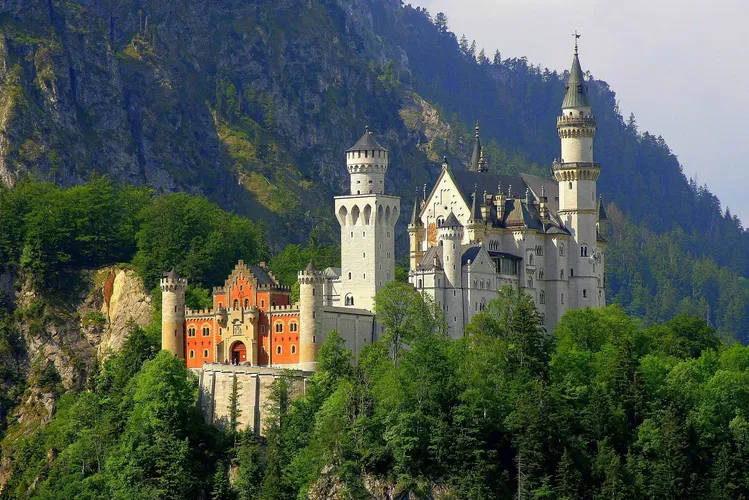
Neuschwanstein Castle
SchwangauNeuschwanstein Castle, a 19th-century palace, is located on a hilltop above the village of Hohenschwangau near Füssen in southwest Bavaria, Germany. The castle was built in a neo-romantic style, which is a revival of medieval architecture. The location of the castle offers a panoramic view of the surrounding landscape, making it a picturesque spot for visitors.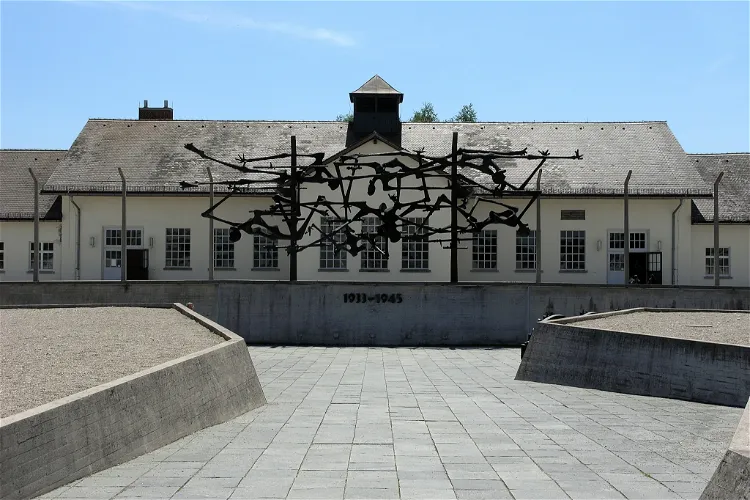
Dachau concentration camp
DachauDachau, the first Nazi concentration camp, is located near the town of Dachau, approximately 16 kilometers northwest of Munich. The camp was established in a disused gunpowder factory and was put into operation on March 22, 1933, the same year that Hitler came to power in Germany. This historical site provides a glimpse into the grim past of the Nazi era.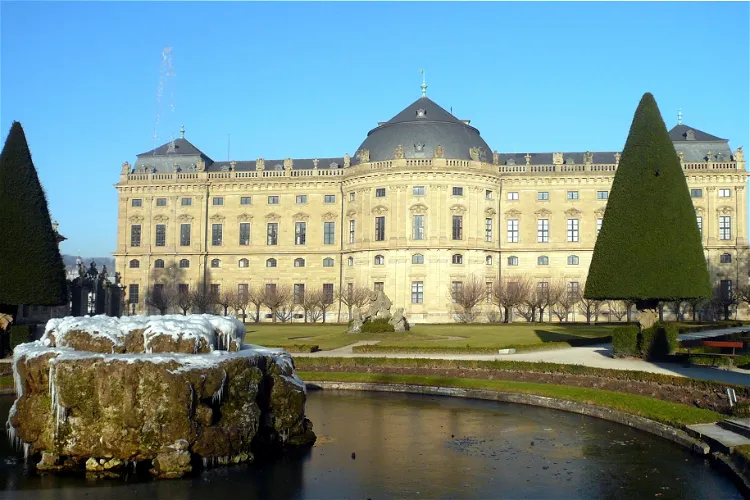
Würzburg Residence
WürzburgThe Würzburg Residence is a former episcopal palace and a combination of rococo and baroque architecture. This historical building, which was built on the orders of the two prince-bishops von Schönborn, is a testament to the architectural prowess of the 18th century. The construction lasted from 1720 to 1744 and was designed by Johann Balthasar Neumann. The late baroque residence is considered one of the most important of its kind.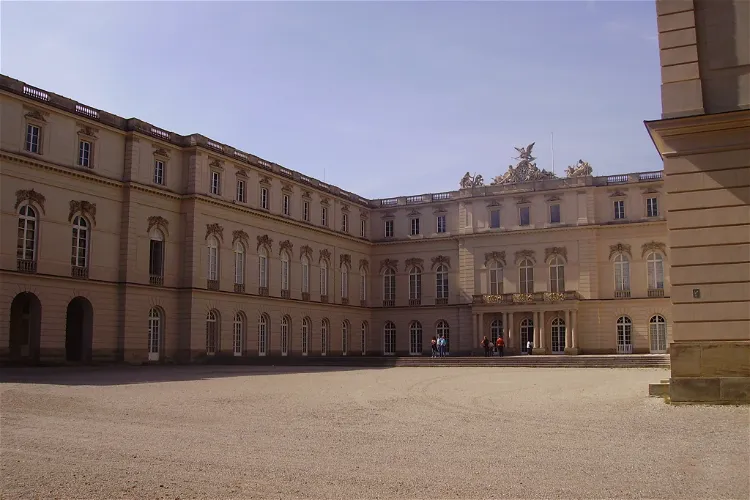
Herrenchiemsee
ChiemseeHerrenchiemsee is a castle located on an island in Lake Chiem, approximately 80 kilometers east of Munich. This grand structure was commissioned by King Louis II of Bavaria, a monarch known for his extravagant architectural projects. The castle's location on an island adds to its allure, offering visitors a unique experience of exploring a historical monument surrounded by the natural beauty of a lake.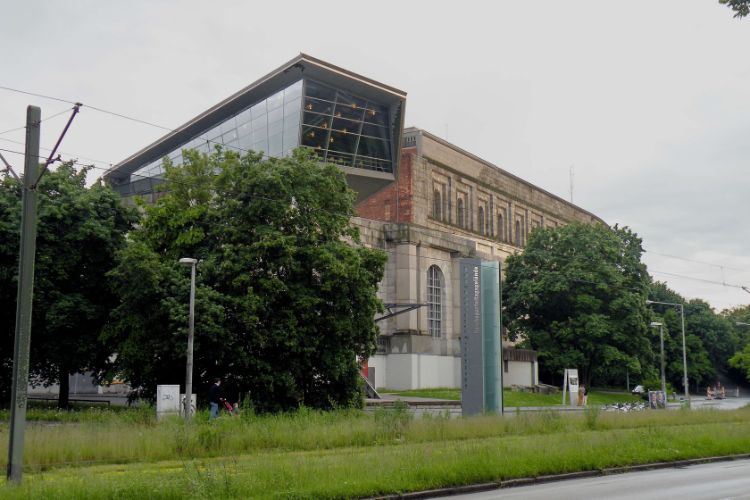
Documentation Center Nazi Party Rally Grounds
NurembergThe Documentation Center Nazi Party Rally Grounds is a museum in Nuremberg housed in the remains of the Congress Hall of the former Nazi party rallies. The museum features a permanent exhibition called "Fascination and Terror" on the causes, connections, and consequences of Nazi Germany and National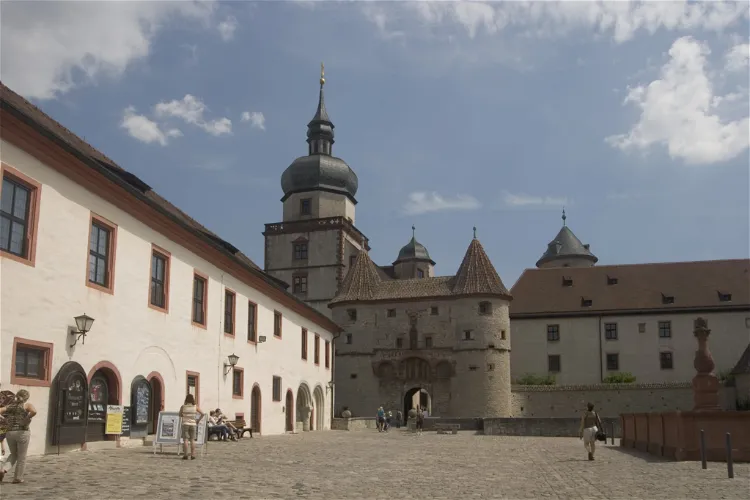
Marienberg Fortress
WürzburgMarienberg Fortress, the oldest structure in the city of Würzburg, Germany, stands on a hill by the Main River. This historic site was once the residence of counts before becoming the seat of prince-bishops. Its strategic location and rich history make it a fascinating destination for tourists interested in history and architecture.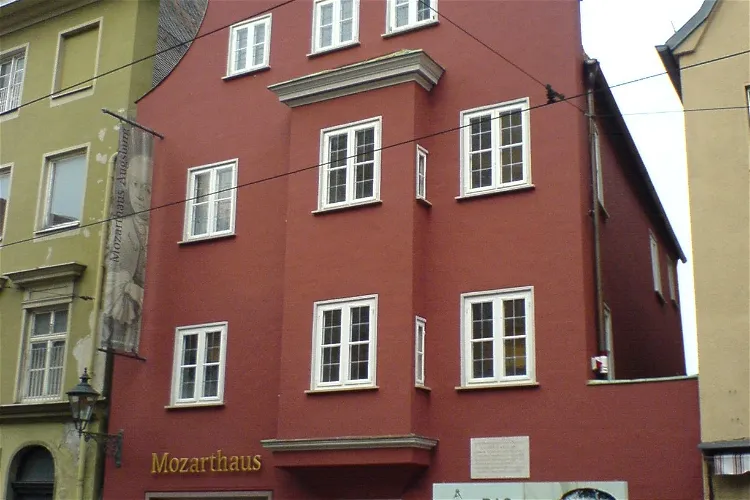
Mozarthaus Augsburg
AugsburgThe Leopold Mozart House Augsburg is a museum that holds significant historical value. It is situated in a 17th-century craftsman's house where Leopold Mozart, the father of the renowned composer Wolfgang Amadeus Mozart, was born in 1719. This location provides a unique insight into the early life and environment of the Mozart family.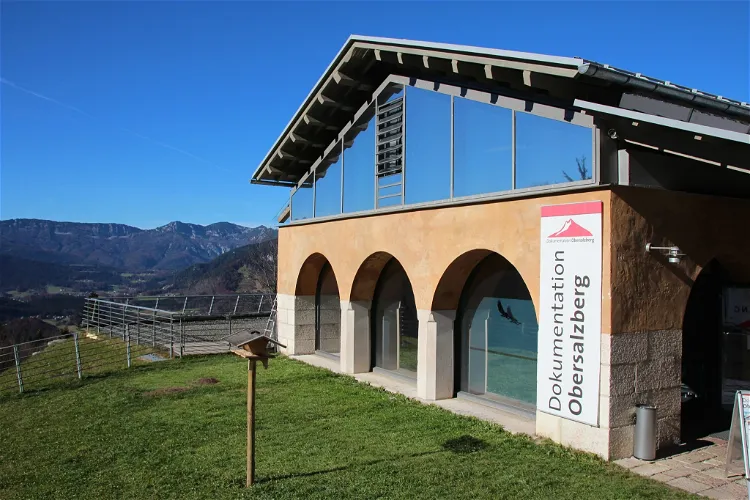
Dokumentationszentrum Obersalzberg
BerchtesgadenDokumentation Obersalzberg is a museum located in the Obersalzberg resort near Berchtesgaden. The museum provides detailed information about the use of the mountainside retreat by Nazi leaders, particularly Adolf Hitler. This location was a frequent retreat for Hitler, making it a significant site for understanding the history of Nazi Germany.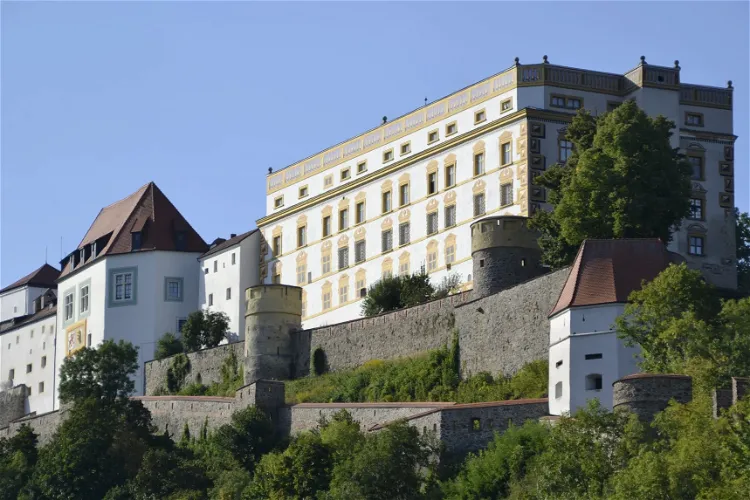
Veste Oberhaus
PassauVeste Oberhaus is a historic castle located on the left side of the Danube River, directly opposite the old town of Passau. The castle was established in 1219 and served as the residence of the prince-bishop of the Hochstift Passau for a significant period of time. This castle is a symbol of the city's rich history and offers a unique insight into the past.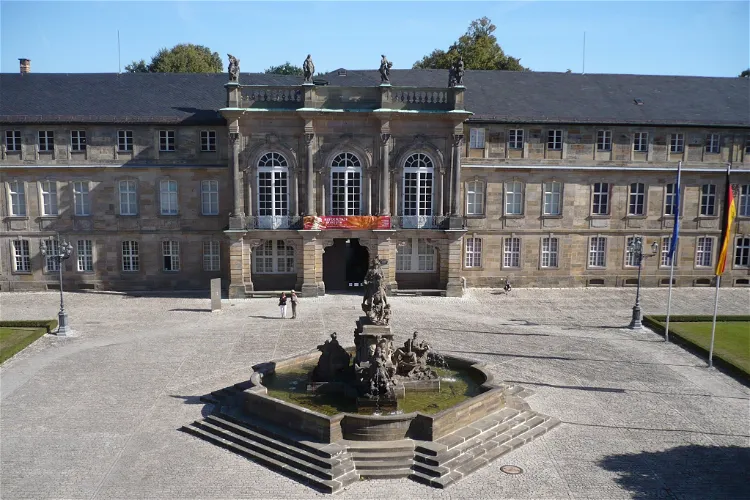
New Palace, Bayreuth
BayreuthThe New Palace in Bayreuth, known as Das Neue Schloss Bayreuth in German, was constructed from 1753. This construction was initiated after a fire in January 1753 had largely destroyed the previous residence, which is now referred to as the Old Palace. The New Palace stands as a testament to the architectural prowess of the time and the resilience of the people in rebuilding after the fire.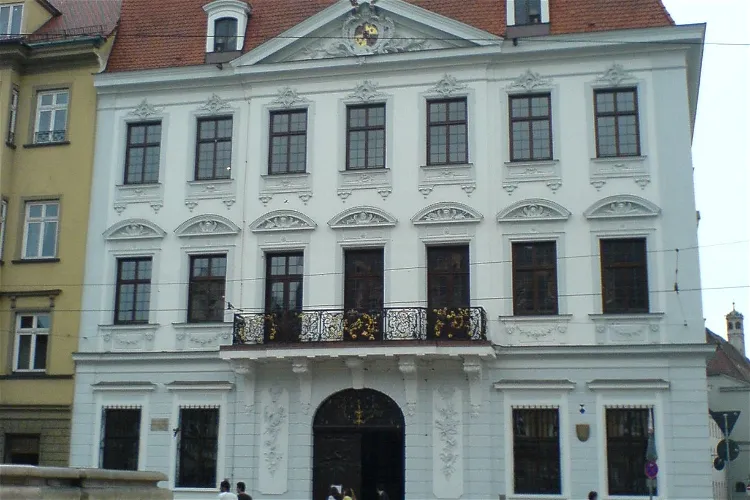
Schaezlerpalais
AugsburgThe Schaezlerpalais in Augsburg is a significant location for art enthusiasts as it houses both city and state art collections. This provides visitors with a unique opportunity to explore a wide range of artworks under one roof. The collections include various periods and styles, offering a comprehensive overview of the art history.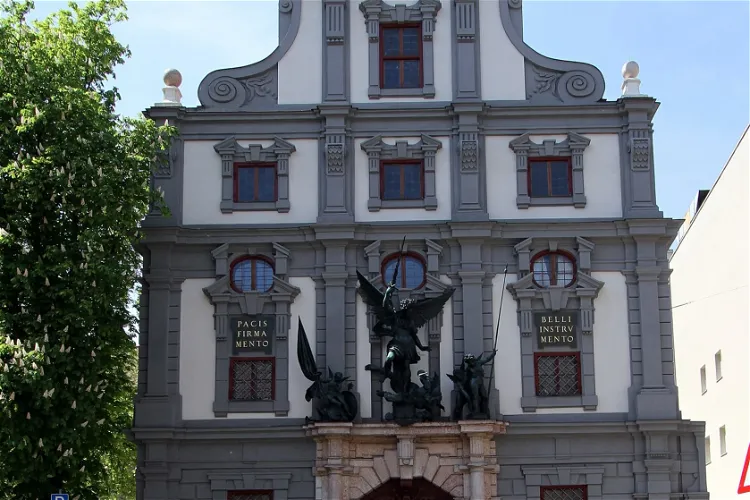
Armory house
AugsburgThe Armory, locally known as Das Zeughaus, is a significant historical building located in the old town of Augsburg. It was constructed between the years 1602 and 1607 by the renowned architect Elias Holl. This period piece of architecture offers a glimpse into the city's rich history and is a notable landmark in Augsburg.
International Artists Villa Concordia
BambergThe Villa Concordia is not just a residence for artists, but also a vibrant cultural venue. It regularly hosts exhibitions, readings, and concerts featuring the work of the artists in residence. These events provide an opportunity for visitors to engage with contemporary art and culture, and to gain insights into the creative processes of the artists.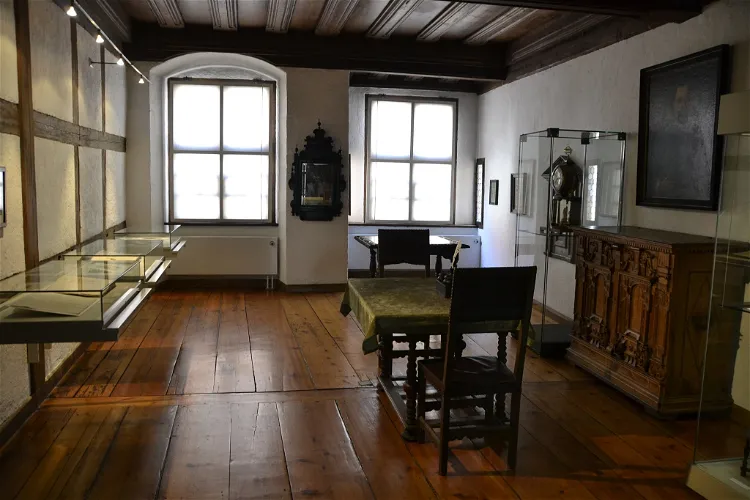
Kepler's Last Residence & Museum
RegensburgThe Kepler Memorial House in Regensburg is a significant historical site as it is the place where the renowned astronomer Johannes Kepler passed away. This house provides a unique opportunity for visitors to step into the past and explore the life and work of one of the most influential figures in the history of astronomy.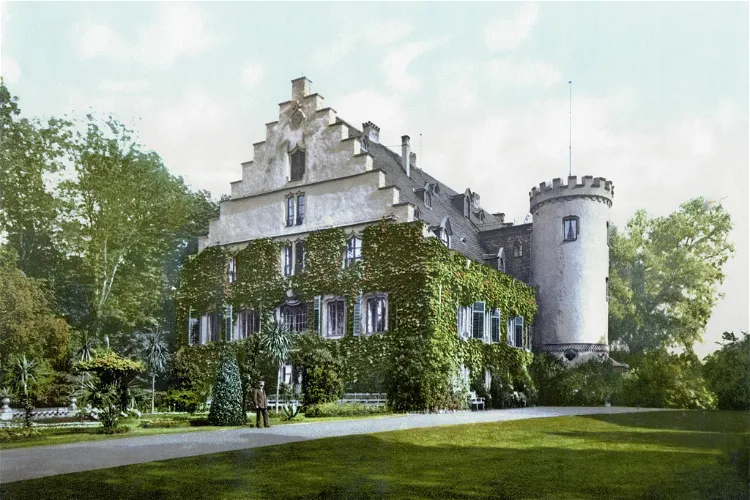
Schloss Rosenau Coburg
RödentalSchloss Rosenau, also known as Palácio Rosenau, is a historical site located between the cities of Coburg and Rödental, in Bavaria, Germany. This former castle, which was later converted into a country house, offers a unique glimpse into the past. Its location makes it easily accessible for tourists visiting either Coburg or Rödental.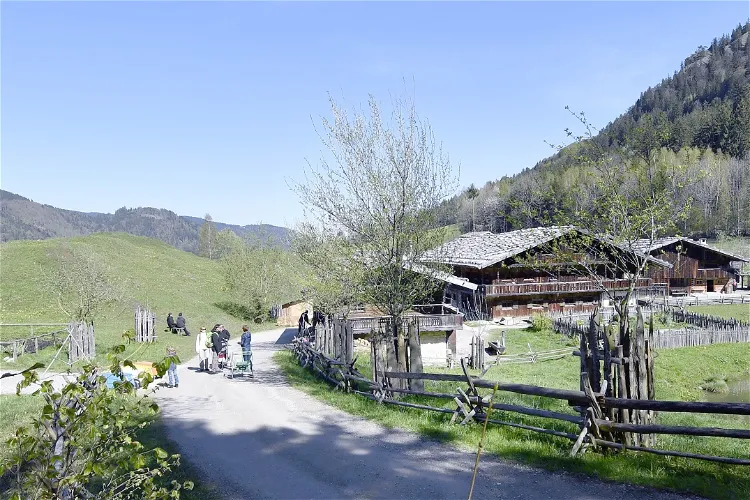
Markus Wasmeier Freilichtmuseum
SchlierseeThe Markus Wasmeier Freilichtmuseum is a privately owned museum situated on the edge of the Neuhaus district in the Upper Bavarian municipality of Schliersee. This location offers visitors a unique blend of cultural history and natural beauty, making it an ideal destination for those interested in exploring the rich heritage of the region.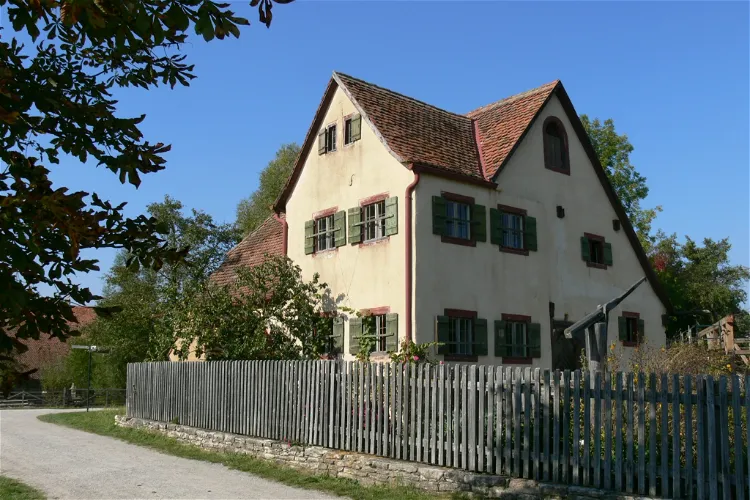
Franconian Open Air Museum
Bad WindsheimThe Franconian Open Air Museum Bad Windsheim is located on the southern edge of the old town of Bad Windsheim. The museum spans a vast area of 45 hectares, providing ample space for visitors to explore and immerse themselves in the rich history and culture of the region.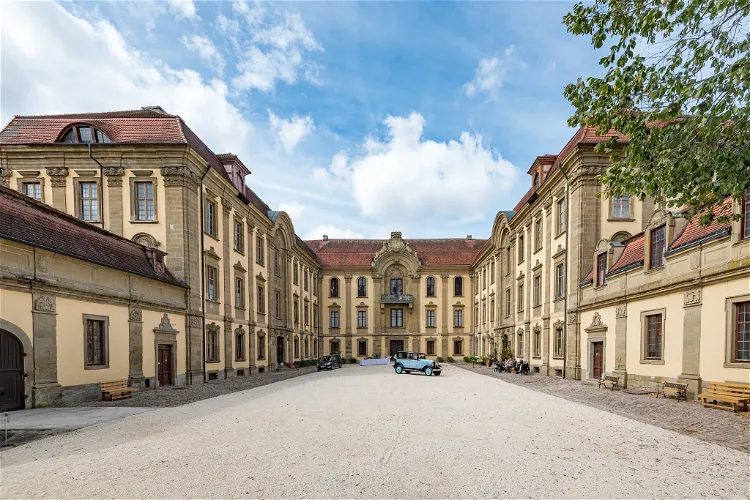
Schloss Schillingsfürst
SchillingsfürstSchloss Schillingsfürst is a castle located in Schillingsfürst near Ansbach in Middle Franconia, Bavaria. It serves as the seat of the old noble family branch Hohenlohe-Schillingsfürst. The castle's history and its connection to the noble family make it a significant site for those interested in history and architecture.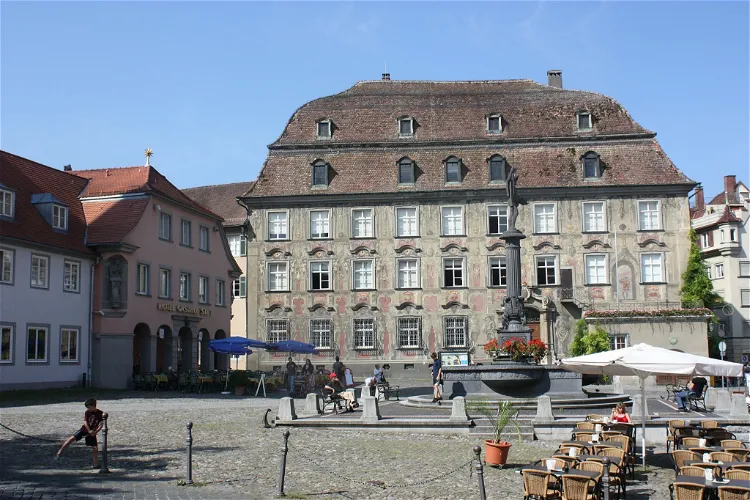
City Museum of Lindau
Lindau (Bodensee)The City Museum of Lindau is situated in the baroque citizen's house Zum Cavazzen, which is located at the market square of the island Lindau (Bodensee). This location is not only central but also steeped in history, making it an interesting destination for tourists who are interested in the rich cultural heritage of Lindau.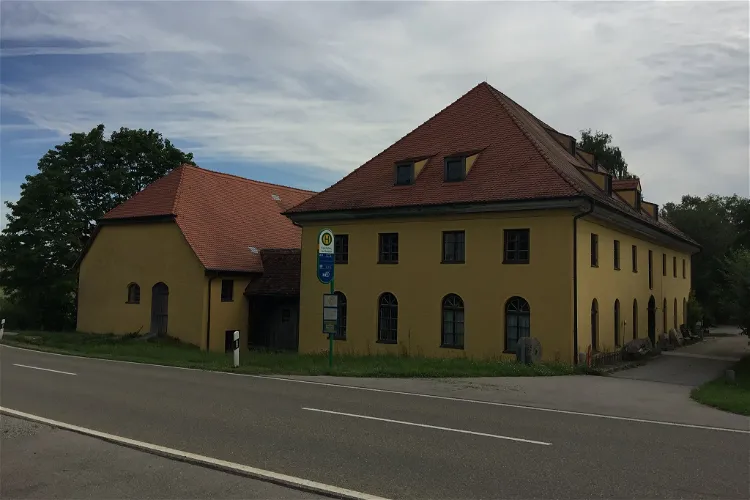
Furthmühle
EgenhofenThe Furthmühle is largely preserved in its original state and is fully functional. Until 2012, it was used for the production of flour, making it a significant technical monument. Visitors can appreciate the historical machinery and understand the process of flour production from the past.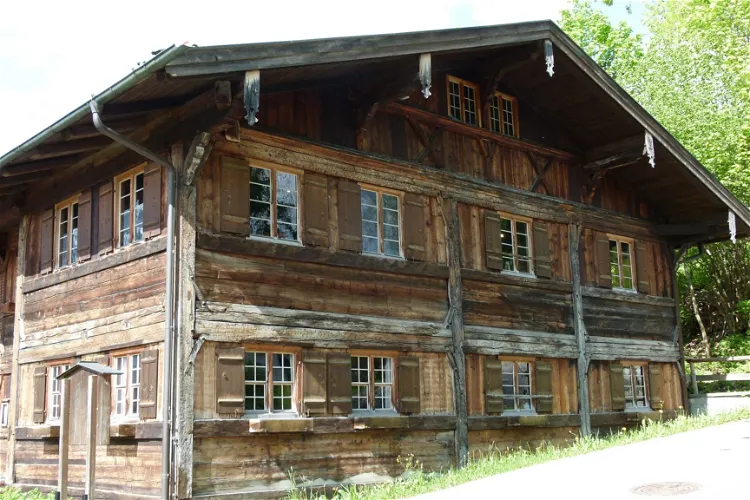
Heimathaus
PfrontenThe Heimathaus in Pfronten is a historical timber-framed building that holds a significant place in the town's history. It is listed in the Pfronten monuments list, indicating its cultural and historical importance. The building's architecture and history offer a glimpse into the past, making it an interesting site for tourists interested in history and architecture.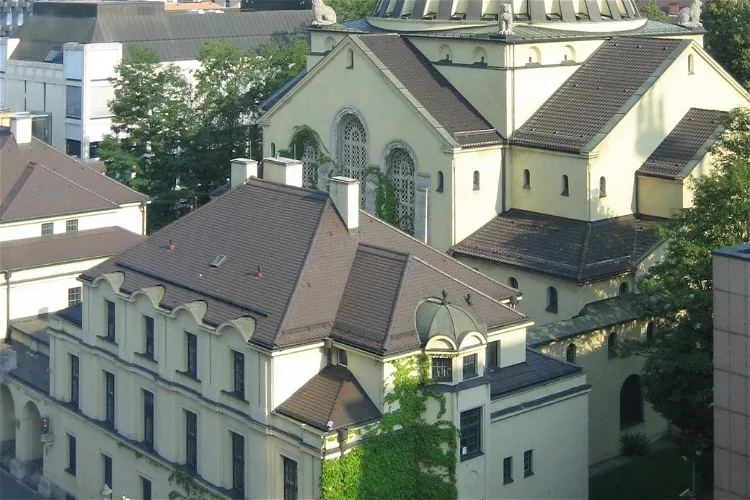
Jewish Museum Augsburg Swabia
AugsburgThe Jewish Museum Augsburg Swabia documents the culture and history of the Jews in Augsburg and Swabia from the Middle Ages to the present. The permanent exhibition, opened in November 2006, presents Jewish history as a dynamic interplay of settlement and expulsion, and of self-assertion and adaptation. It highlights the relationship between the Jewish minority and the Christian majority, emphasizing Jewish history as an integral part of the broader Augsburg and Swabian history.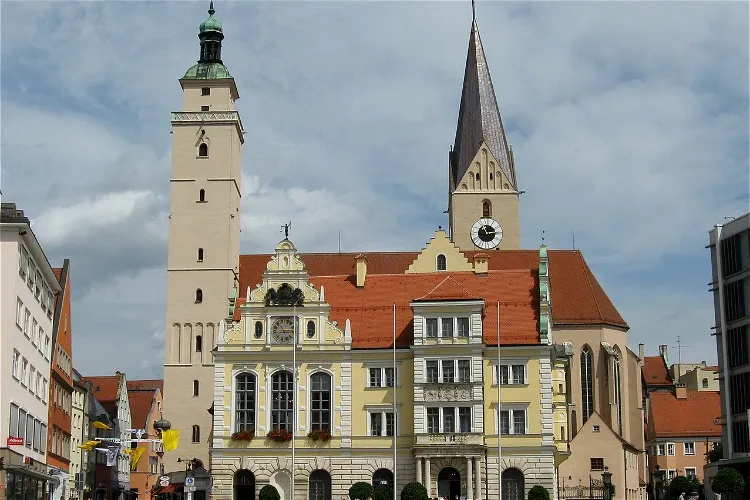
Old Town Hall
IngolstadtBetween 1882 and 1884, the four buildings that make up the Old Town Hall were redesigned and combined by Gabriel von Seidl. The result is a beautiful Neo-Renaissance style structure that stands as a testament to the architectural prowess of the time. Visitors can appreciate the intricate details and craftsmanship that went into this transformation.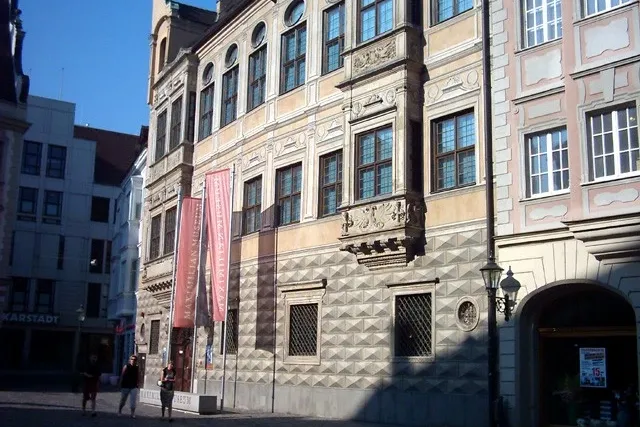
Maximilian Museum
AugsburgThe Maximilian Museum, also known as Maximilianmuseum, holds the distinction of being the oldest museum in Augsburg. It was inaugurated in the year 1854 and since then, it has been dedicated to tracing the city's history from the Middle Ages up until 1805. This museum provides a comprehensive overview of the city's rich and diverse history, making it an interesting visit for those interested in learning about Augsburg's past.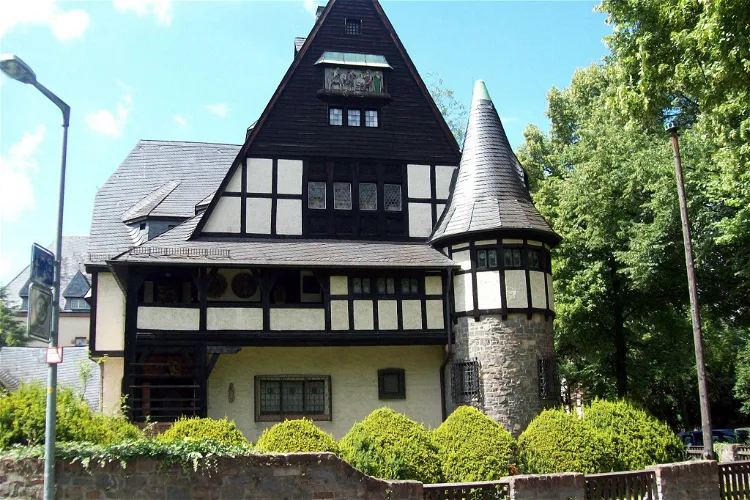
Gentilhaus
AschaffenburgThe Gentil-Haus, also known as Gentilhaus or Haus Gentil, is a museum located in the city of Aschaffenburg. It is home to the collections of Anton Gentil, an industrialist and art collector. The museum is a testament to Gentil's passion for art and his dedication to collecting and preserving various works of art.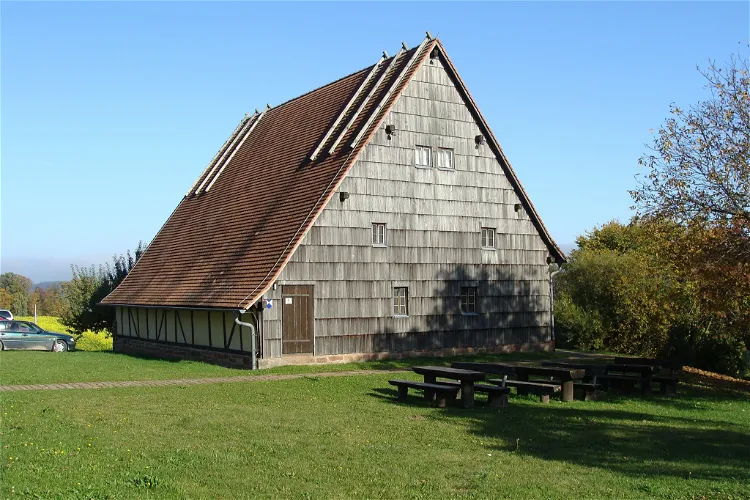
Waldmuseum Watterbacher Haus
PreunschenThe Watterbacher Haus is a significant historical site located in Preunschen, a district of Kirchzell, in the Lower Franconian district of Miltenberg in Bavaria. This historic farmhouse and forest museum offers a unique glimpse into the past, showcasing the traditional architecture and lifestyle of the region. It is a place where history and nature intertwine, providing a rich and immersive experience for visitors.
Heimathaus Pfronten
PfrontenThe Heimathaus in Pfronten is a historical monument, recognized for its old timber-framed architecture. This building is listed in the Pfronten monuments list, making it a significant part of the town's cultural heritage.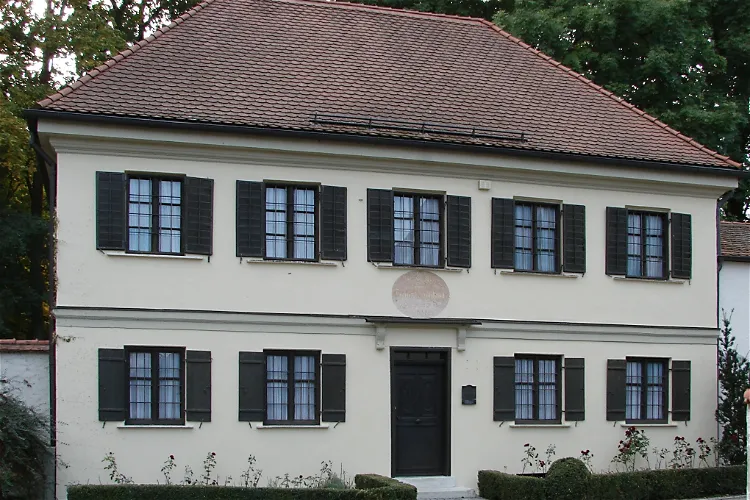
Lenbachmuseum
SchrobenhausenThe Lenbachmuseum is situated in the birthplace of the renowned painter Franz von Lenbach in Schrobenhausen, Bavaria. This location adds a personal touch to the museum, allowing visitors to explore the artist's life and work in the very place where he was born.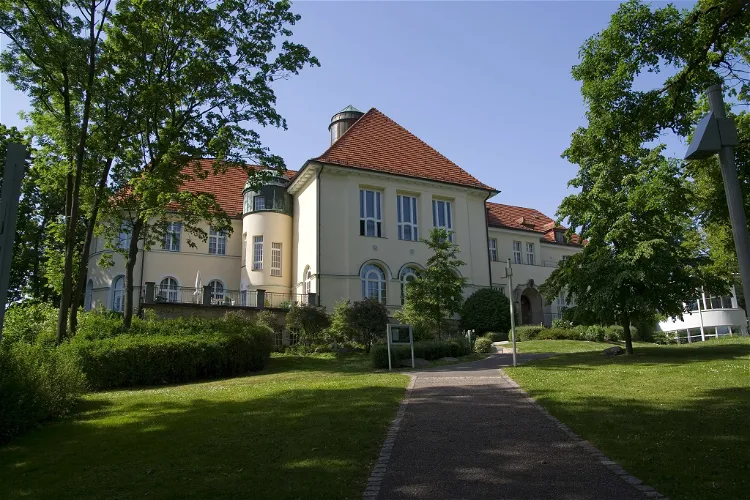
Naturkundemuseum Coburg
CoburgThe Naturkunde-Museum Coburg is a natural history museum located in the city of Coburg. It is situated on the grounds of the Coburg Court Garden, a beautiful location that adds to the overall experience of visiting the museum. The museum's location is not only scenic but also convenient, making it easily accessible for tourists.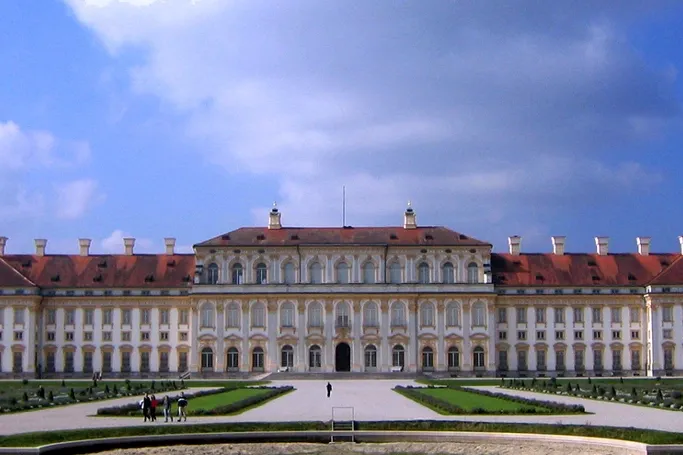
New Schloss Schleißheim
MunichSchleißheim Palace, located in the municipality of Oberschleißheim, north of Munich, is a German palace complex that consists of three palaces. These are the Old Schleißheim Palace and the New Schleißheim Palace, both situated in the western area of the park, and the Lustheim Palace, which is located in the eastern area of the park. Each palace offers a unique glimpse into the history and architecture of the region.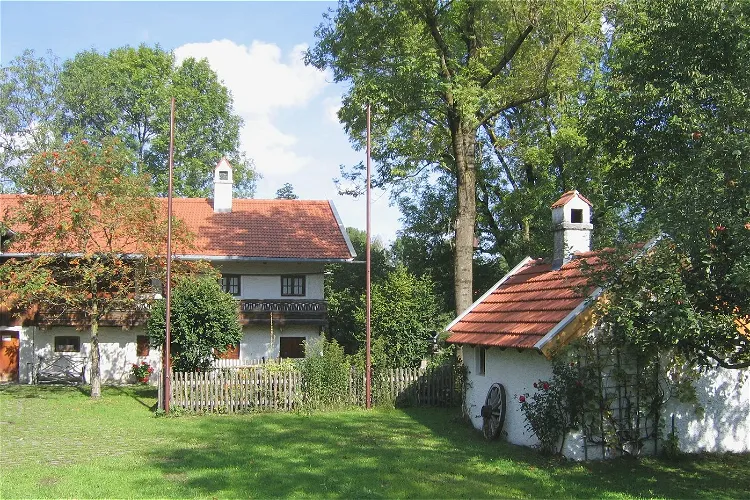
Wolfschneiderhof
TaufkirchenThe Wolfschneiderhof Museum is a significant cultural institution located in the municipality of Taufkirchen, near Munich. It serves as a representation of the local history and culture, providing visitors with an opportunity to learn about the region's past.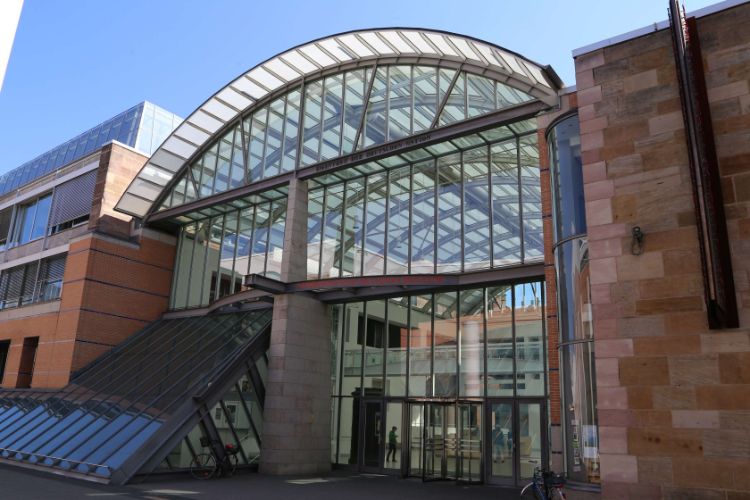
Germanisches Nationalmuseum
NurembergThe Germanisches Nationalmuseum is the largest museum of cultural history in Germany, located in Nuremberg. The museum holds and exhibits a large collection of items related to German culture and art from prehistoric times to the present day. The collection consists of around 1,3 million objects of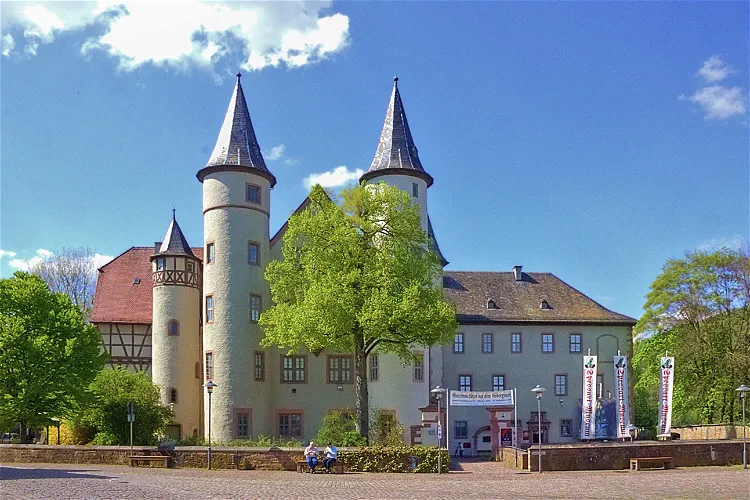
Spessartmuseum
Lohr am MainThe Spessartmuseum, located in Lohr Castle in Lohr am Main, is a place where visitors can delve into the history of the castle and the Spessart region. The museum provides a comprehensive overview of the past, offering a unique insight into the historical context of the area.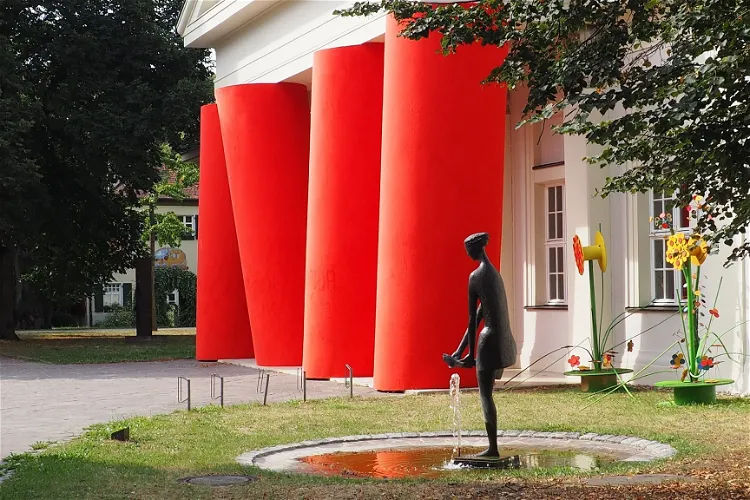
Kunstforum Ostdeutsche Galerie
RegensburgThe Kunstforum Ostdeutsche Galerie (KOG) in Regensburg is a unique art collection that showcases works by German artists from the formerly German eastern territories and the German settlement areas in Eastern and Southeastern Europe. This collection provides a unique perspective on the cultural and artistic history of these regions, making it a fascinating destination for art enthusiasts and history buffs alike.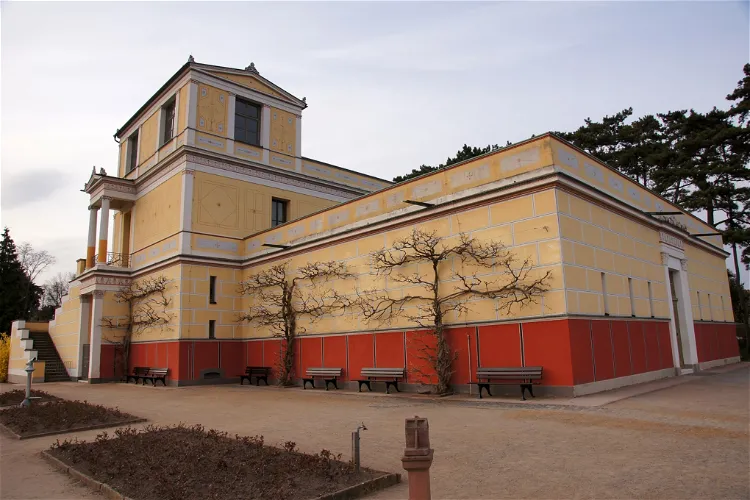
Pompejanum
AschaffenburgThe Pompejanum in Aschaffenburg is a unique attraction as it is a replica of a Roman villa, specifically modeled after the Casa dei Dioscuri in Pompeii. This architectural marvel stands on the high bank of the Main, offering a glimpse into the ancient Roman lifestyle and culture.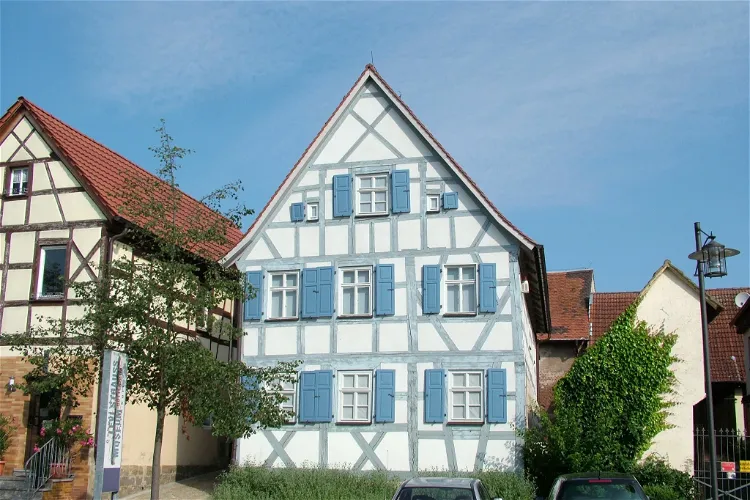
Birthplace Levi Strauss Museum
ButtenheimThe Levi Strauss Museum in Buttenheim, opened in 2000, is located in the birthplace of Levi Strauss, the inventor of jeans. This museum is a tribute to the life and work of Levi Strauss and offers a unique insight into the history of jeans.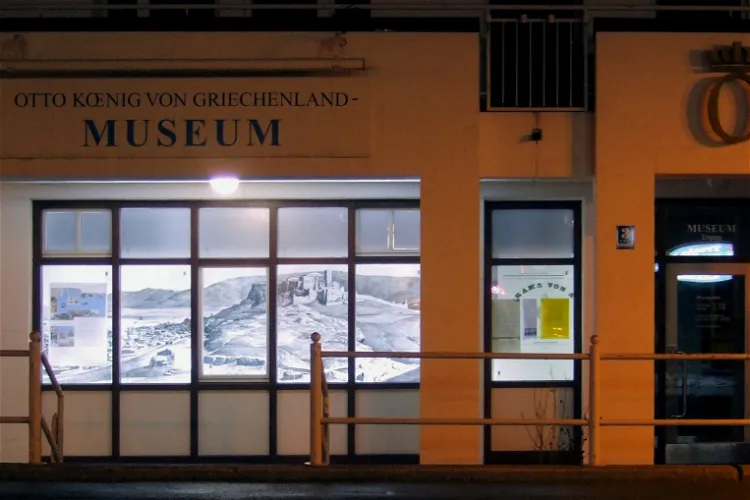
Otto-König-von-Griechenland-Museum
OttobrunnThe Otto-König-von-Griechenland-Museum in Ottobrunn is a non-governmental museum located in Bavaria. It is dedicated to the namesake of Ottobrunn, the Wittelsbach King Otto of Greece, and his work in Greece and contemporary history. This museum provides a unique opportunity to delve into the life and work of King Otto, offering a comprehensive understanding of his influence in Greece and the historical context of his reign.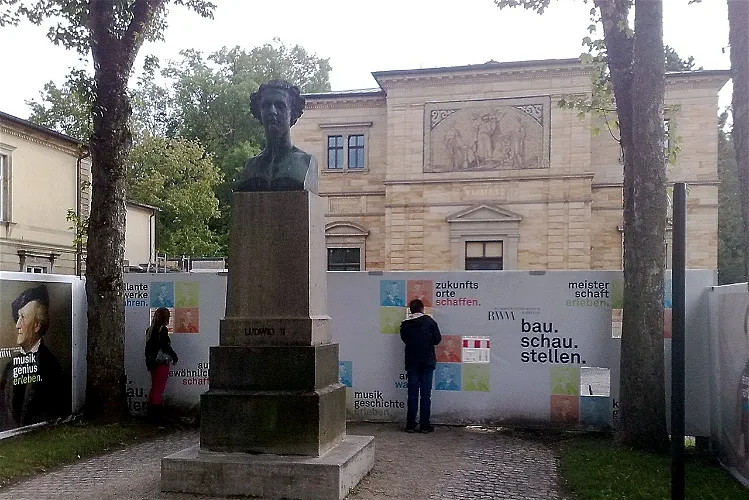
Richard-Wagner-Museum
BayreuthRichard Wagner's body was returned to Wahnfried in a public procession through Bayreuth on 18 February. His grave, located on the grounds of the villa, lies next to that of his wife, Cosima.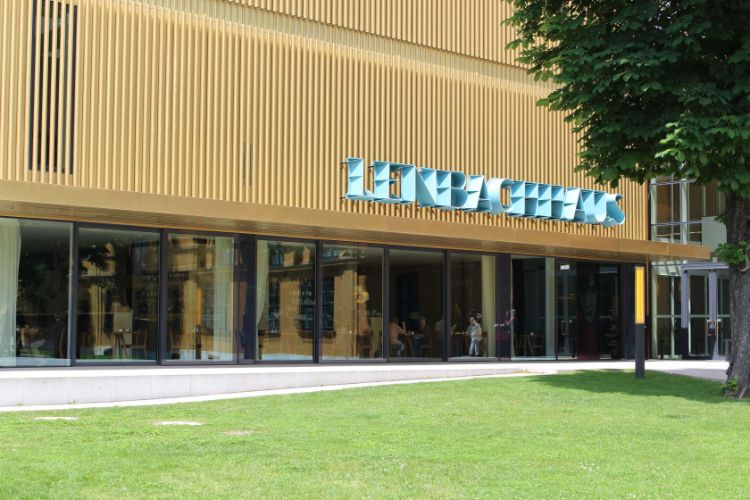
Municipal Gallery in Lenbach House
MunichThe Municipal Gallery in Lenbach House is a museum in Munich that is housed in the former villa of the German painter Franz von Lenbach, built between 1887 and 1891. The museum primarily displays work by painters that worked in Munich in the 18th and 19th centuries. The paintings of the Münchner Sch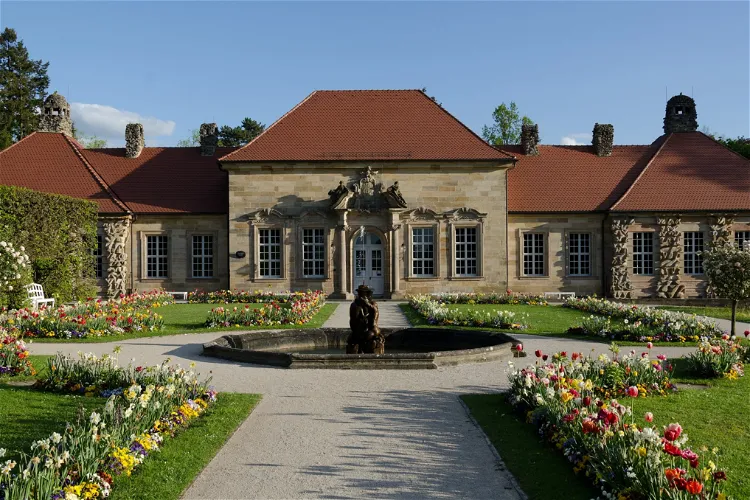
Old palace, Eremitage
BayreuthThe Old Palace, or 'das alte Schloß' as it is known in German, is a historic site located within the Hermitage Park in the city of Bayreuth. This palace is one of two castles within the park and is a significant part of the city's history. It's important to note that this Old Palace should not be confused with another Old Palace located in the city center.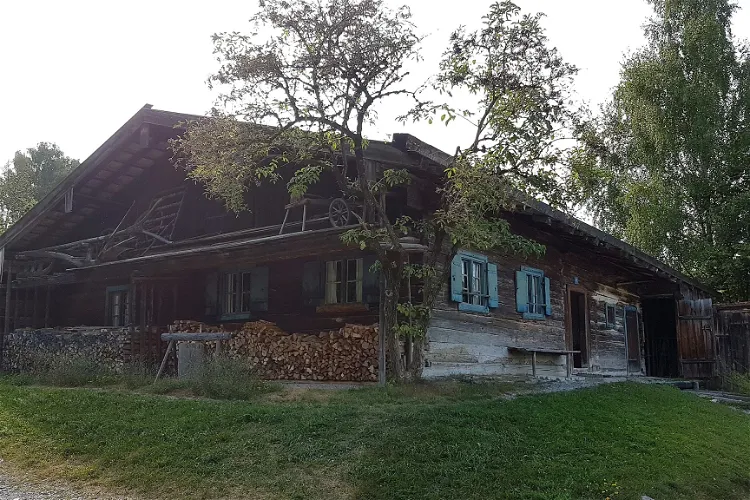
Freilichtmuseum Glentleiten
GroßweilThe Freilichtmuseum Glentleiten is a museum located in Oberbayern, dedicated to showcasing the rural life, living conditions, and economy of past centuries. It provides a unique opportunity for visitors to step back in time and experience the way of life in rural Oberbayern during the past centuries. The museum is a testament to the region's rich history and cultural heritage.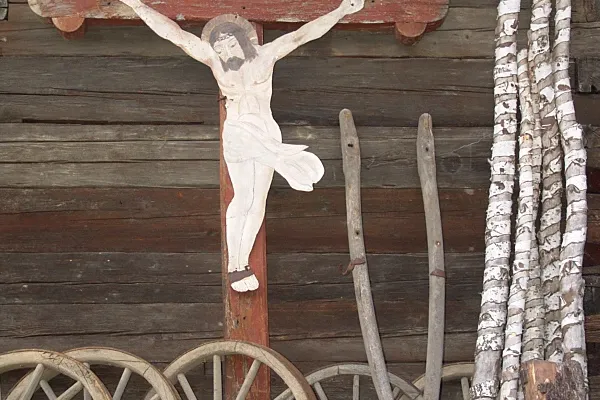
Bavarian Forest Museum Village
HötzendorfThe Bavarian Forest Museum Village, located near Tittling on the southwestern shore of the Dreiburgensee lake in the Bavarian Forest, is an open air museum. This location offers a unique opportunity to explore the rich history and culture of the region in a picturesque setting.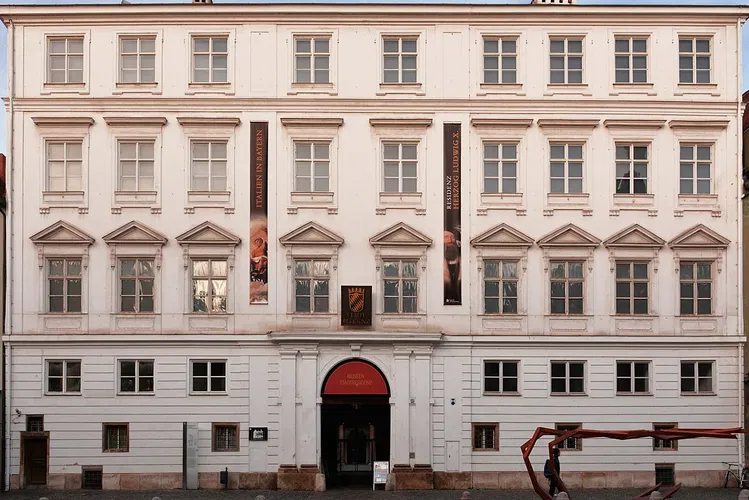
Landshut Residence
LandshutThe Stadtresidenz Landshut is a palace that was constructed in the heart of Landshut's old town under the reign of Duke Ludwig X between the years 1536 and 1543. After its construction, it was used by various nobles for residential purposes. This historical building offers a glimpse into the architectural style and living conditions of the nobility during the Renaissance period.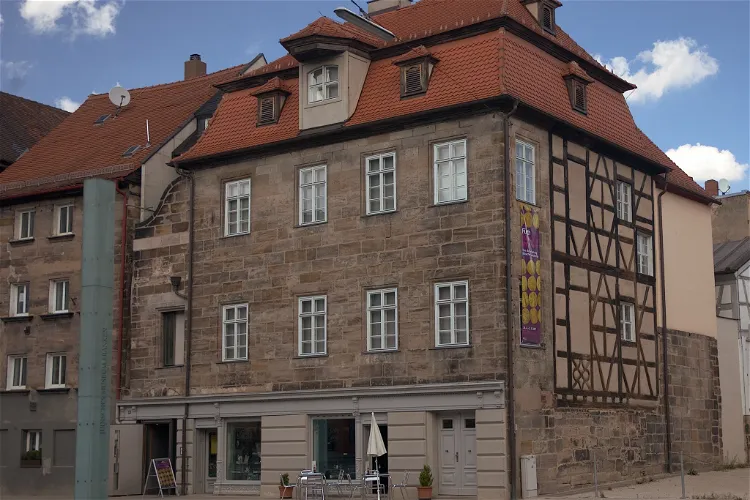
Jewish Museum of Franconia in Fuerth
FürthThe Jewish Museum of Franconia is a unique institution that spans three locations in Fürth, Schnaittach, and Schwabach. Each of these locations is a historical monument, offering visitors a chance to immerse themselves in the rich history of Jewish life in Franconia. The museum showcases the diversity of Franconian Jewish life from its beginnings to the present day.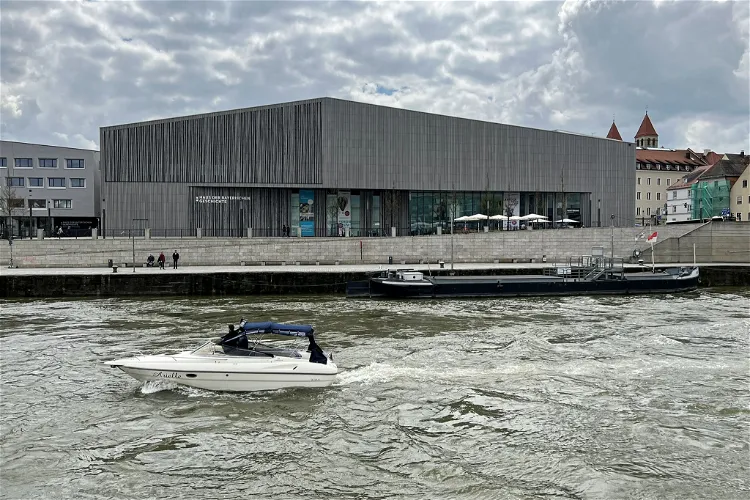
House of Bavarian History
RegensburgThe Haus der Bayerischen Geschichte, also known as the Museum der Bayerischen Geschichte, is a history museum located in Regensburg, Bavaria. The museum is dedicated to the history of Bavaria, providing a comprehensive overview of the region's past.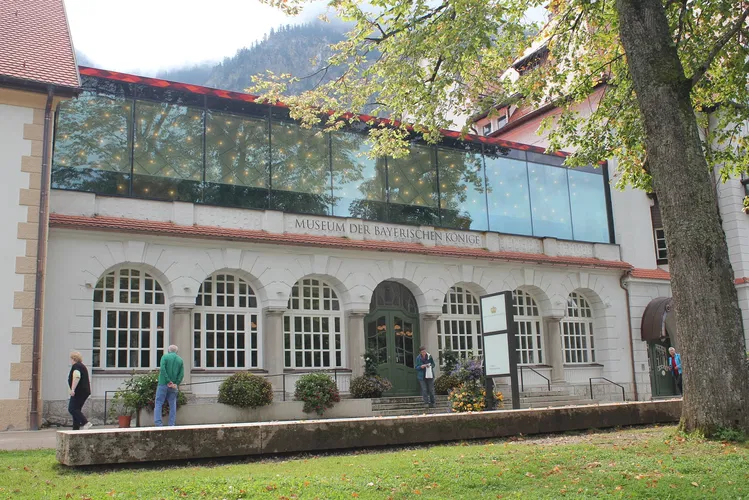
Museum of the Bavarian Kings
SchwangauThe Museum of the Bavarian Kings in Hohenschwangau is a significant destination for those interested in the history of the Wittelsbach royal family. The museum offers a comprehensive overview of the family's history, from its origins to the present day. Visitors can learn about the family's influence on Bavaria and its role in shaping the region's history.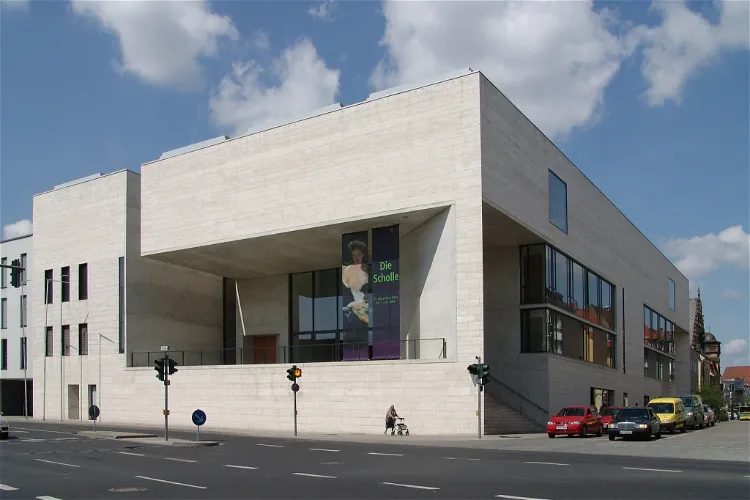
Georg Schaefer Museum
SchweinfurtThe Museum Georg Schäfer, located in Schweinfurt, Bavaria, is a German art museum that primarily focuses on the collection of 19th-century paintings. These artworks are predominantly from artists who hailed from German-speaking countries. This museum provides a unique opportunity for visitors to explore and appreciate the rich artistic heritage of the 19th century from this specific region.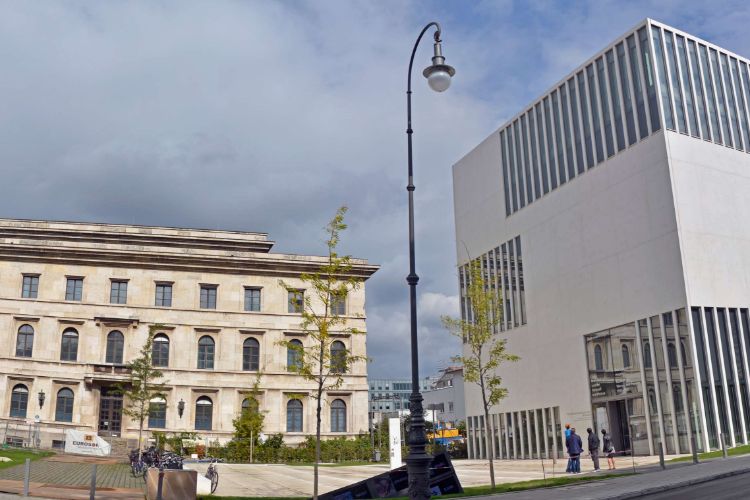
NS-Dokumentationszentrum Munchen
MunichThe NS-Dokumentationszentrum Munchen is a museum in Munich that is dedicated to the history of the city and of Bavaria between the First and Second World Wars, with particular attention to the political and social consequences of Nazism. Opened to the public on 1 May 2015, the museum was built symbo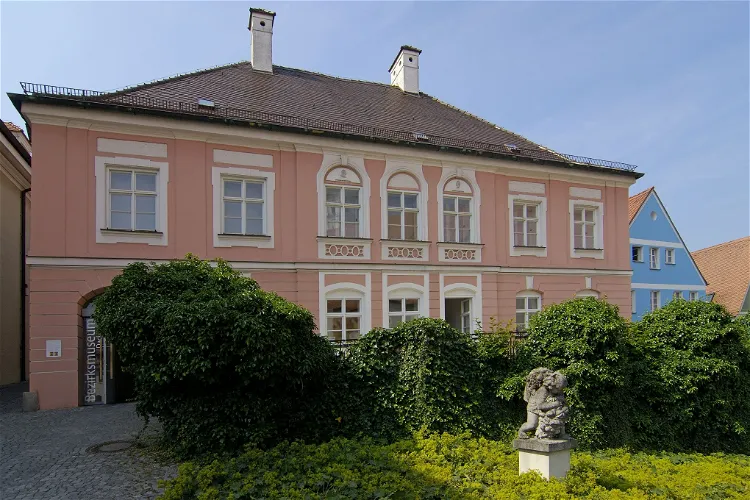
Bezirksmuseum Dachau
DachauThe Bezirksmuseum Dachau is a cultural hub that showcases approximately 2000 objects. These objects provide insights into the cultural history and folklore of the Upper Bavarian city of Dachau and its surrounding areas. Visitors can explore a wide range of themes, from the history of the city and county of Dachau to the local crafts, bourgeois lifestyle, and rural living.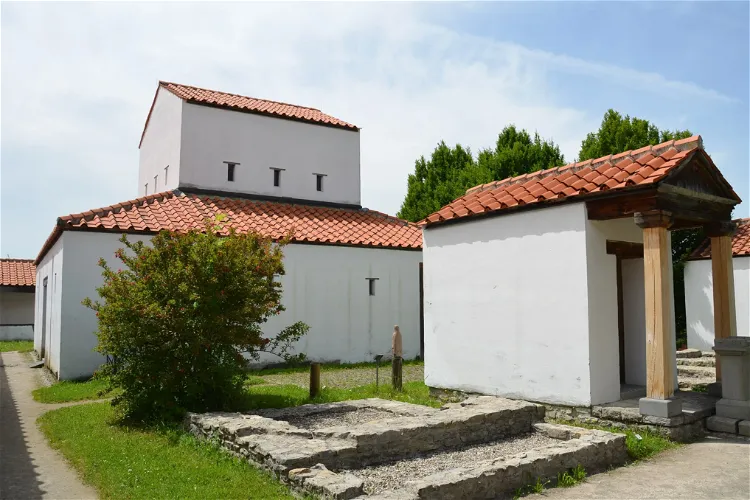
Cambodunum Archaeological Park
Kempten (Allgäu)The Cambodunum Archaeological Park in Kempten (Allgäu) is a significant historical site that offers a unique insight into the Roman-era town of Cambodunum during the time of Emperor Augustus. The park, which is an excavation site and museum, has been open to the public since 1983. It provides a fascinating glimpse into the past, allowing visitors to explore the remnants of a once-thriving Roman settlement.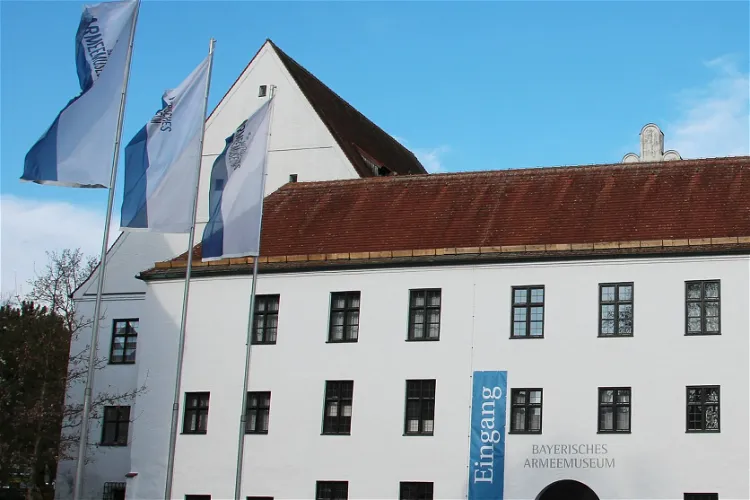
Bayerisches Armeemuseum
IngolstadtThe Bayerische Armeemuseum, located in Ingolstadt, is the military history museum of the Free State of Bavaria. It was founded in 1879 in Munich, at a time when Bavaria, which had joined the German Empire in 1871, still retained significant reserve rights, including its own army under the command of its monarch. The museum has been located in Ingolstadt since 1972, and its main collection is housed in the Neues Schloss.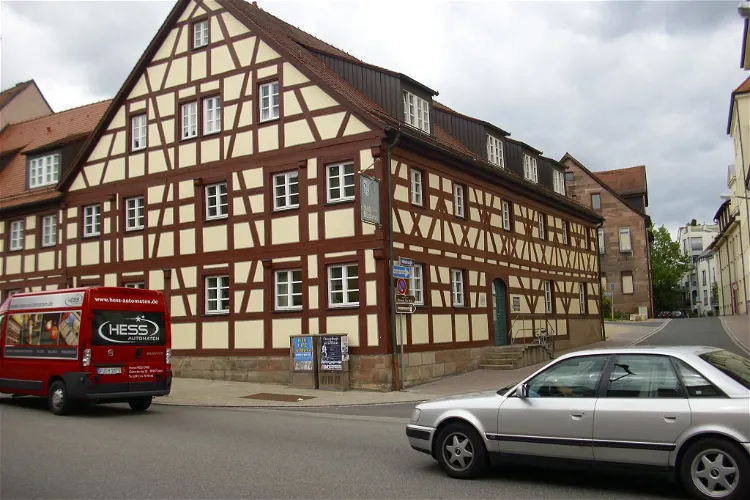
Heimatmuseum Stein-Mittelfranken
SteinThe Heimatmuseum Stein is a museum situated in the city of Stein, within the district of Fürth. This location is a significant part of the museum's identity, as it is deeply rooted in the history and culture of the region.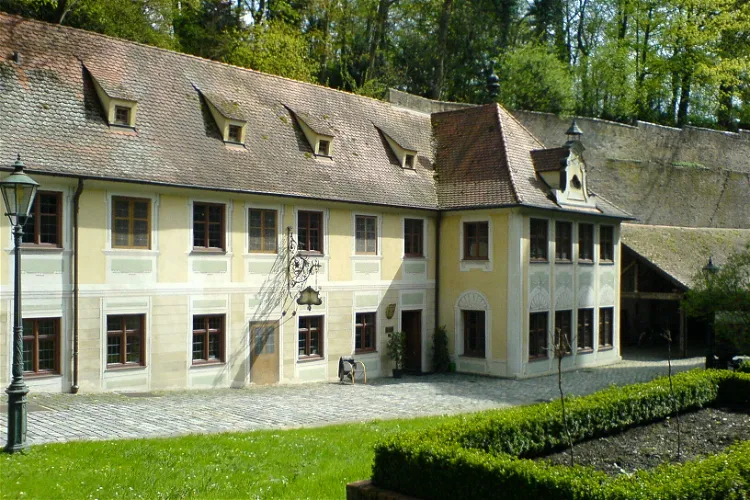
Swabian Crafts Museum
AugsburgThe Swabian Crafts Museum in Augsburg is a unique institution that offers a glimpse into the past. Operated by the Chamber of Crafts for Swabia, the museum showcases meticulously recreated workshops of old craft professions. Visitors can explore the intricacies of these professions and gain a deeper understanding of the region's rich craft history.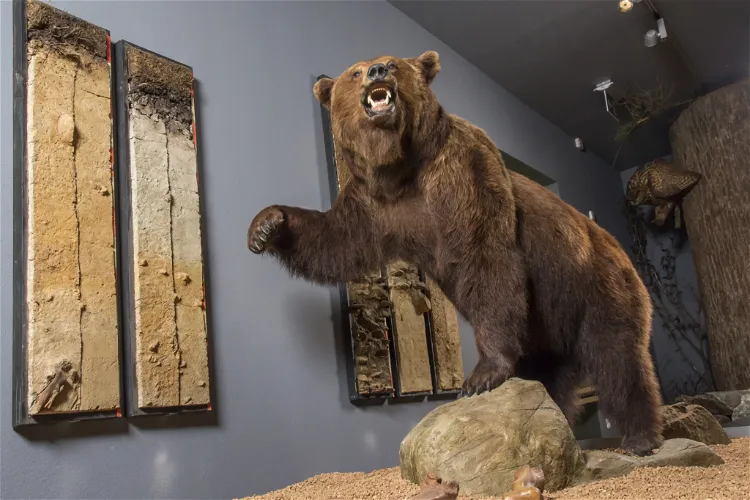
Zwiesel Forest Museum
ZwieselThe Zwiesel Forest Museum, located at Kirchplatz 3 in Zwiesel, is a cultural and natural history museum. It is situated in the Lower Bavarian district of Regen, offering visitors a unique insight into the region's rich cultural and natural history.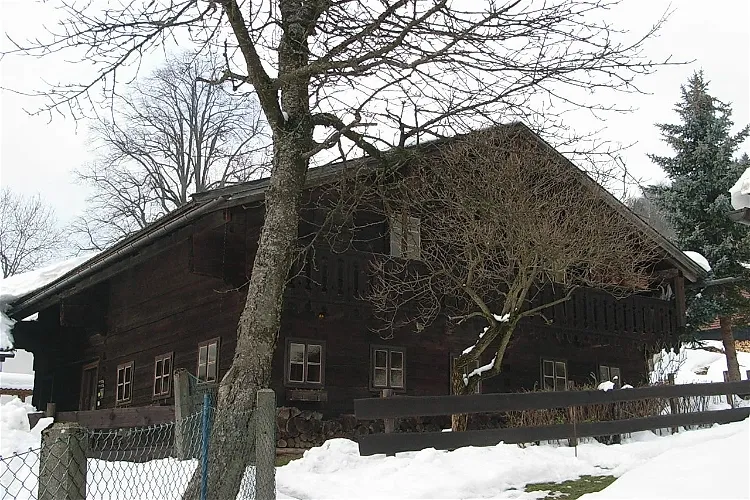
Bauernhausmuseum Lindberg
LehenThe Bauernhausmuseum, also known as the Farmhouse Museum, is an open-air museum situated in the quaint village of Lindberg, Germany. This unique museum offers a glimpse into the past, showcasing the traditional Bavarian way of life. It's a great place for tourists who are interested in history and culture.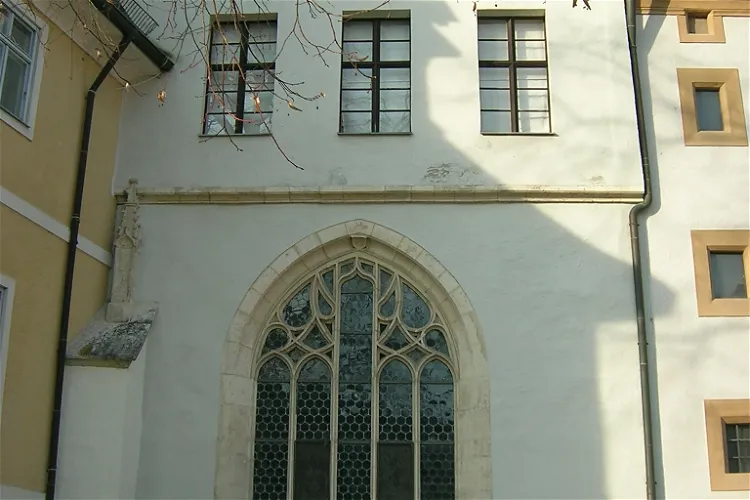
Domschatz- und Diözesanmuseum Eichstätt
EichstättThe Domschatz- und Diözesanmuseum Eichstätt, located in Eichstätt, is the diocesan museum of the Diocese of Eichstätt in Bavaria. This museum is a significant cultural institution in the region, showcasing the rich history and heritage of the diocese.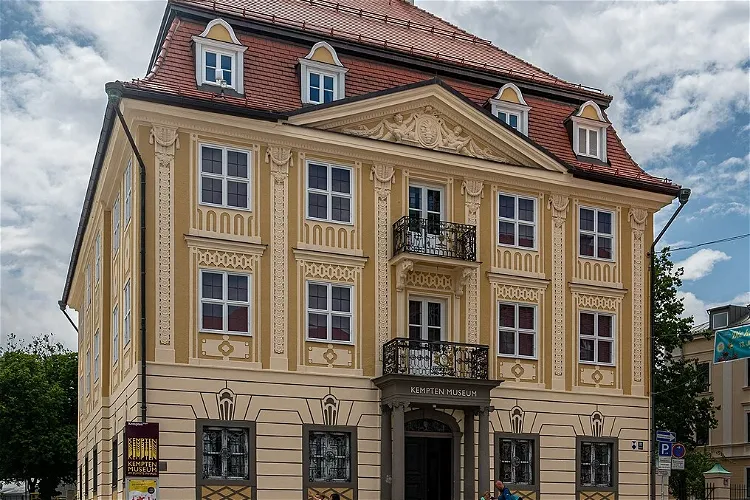
Kempten Museum in the Zumsteinhaus
Kempten (Allgäu)The Zumsteinhaus, located at Residenzplatz 31 in Kempten (Allgäu), is a monument protected by law. It was constructed in 1802 for the Zumstein de la Pierre family, who were merchants from Savoy. The building underwent restoration in 1959.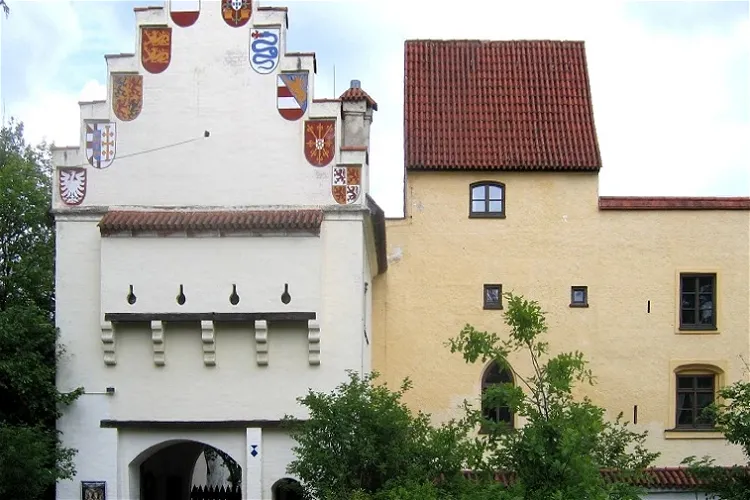
Burgmuseum Grünwald
GrünwaldThe Burgmuseum Grünwald provides detailed information about the history of Grünwald Castle, as well as the broader history of castles in Bavaria. This allows visitors to gain a comprehensive understanding of the region's past, from the specific context of Grünwald Castle to the wider historical landscape of Bavarian castles.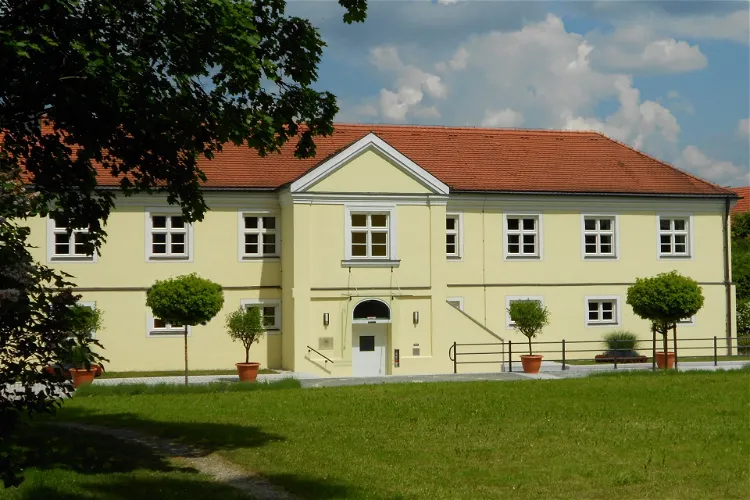
Ismaning Palace
IsmaningThe Ismaning Palace Museum is situated in the gardener's house of the palace in Ismaning, a district of Munich. It showcases a variety of objects, documents, and photographs that provide insight into the cultural history of the area and the palace complex. This museum offers a unique opportunity to delve into the rich history and culture of Ismaning and its palace.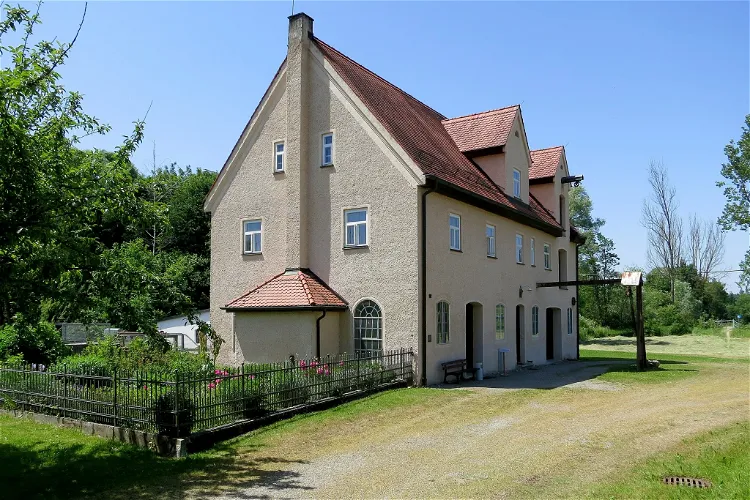
Museum Hammerschmiede und Stockerhof
Neuburg an der KammelThe Hammerschmiede Naichen, located in Naichen, a district of Neuburg an der Kammel in the Günzburg district in Bavaria, is a technical historical monument. Since 1990, it has been open to the public as a museum, offering visitors a glimpse into the past and the opportunity to learn about the history and technology of the time.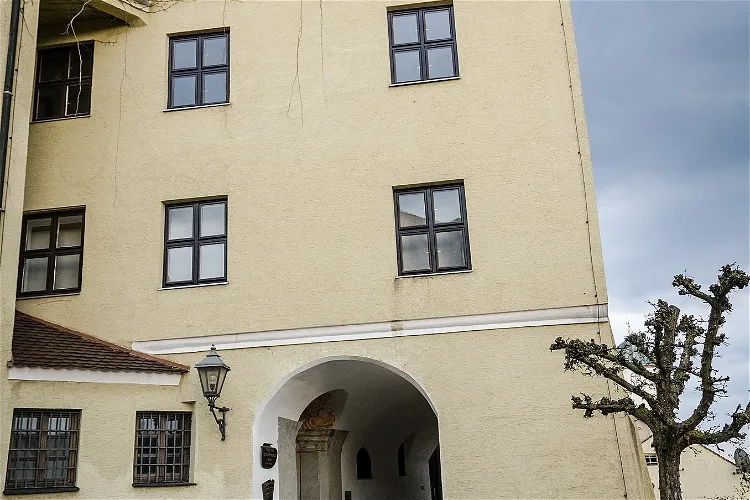
Stadt- und Hochstiftmuseum
Dillingen a.d.DonauThe Stadt- und Hochstiftmuseum, located in Dillingen an der Donau in Bavaria, is a museum that focuses on archaeology, cultural history, and city history. It provides a comprehensive overview of the region's past, making it a valuable destination for those interested in learning more about the area's rich history.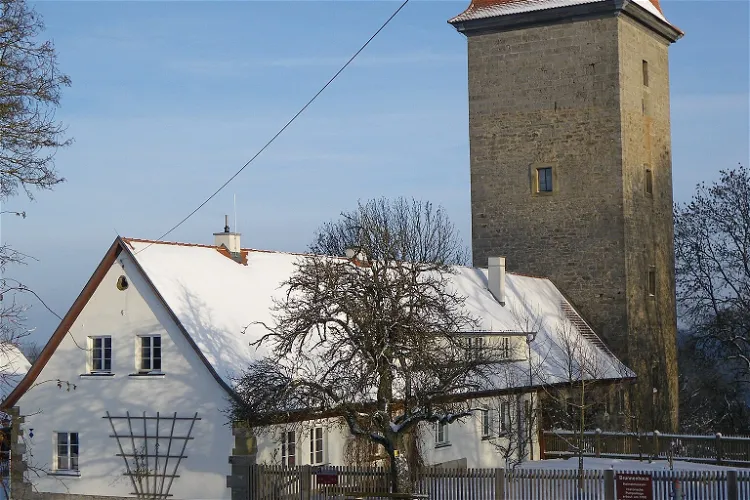
Brunnenhausmuseum
SchillingsfürstThe Brunnenhausmuseum in Schillingsfürst is a technical local history museum that houses a unique and functional ox-tread system. This system is considered one-of-a-kind in the German-speaking region due to its technology and state of preservation. Visitors to the museum can witness this remarkable piece of engineering firsthand, offering a glimpse into the past and the innovative solutions of the time.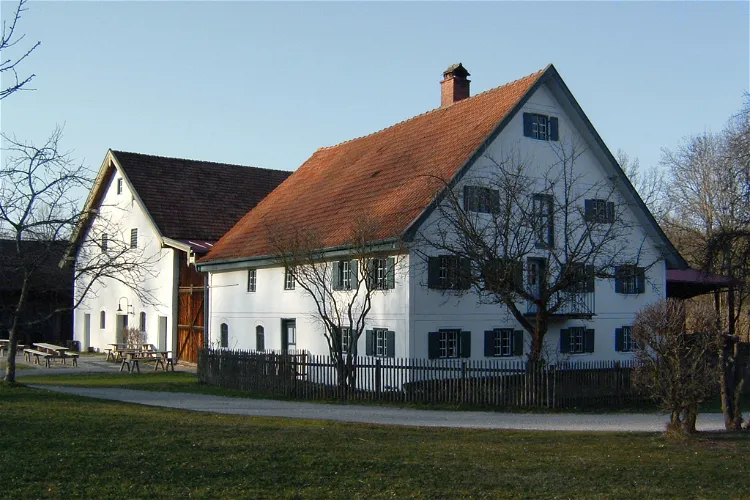
Bauernhofmuseum Jexhof
SchöngeisingThe Bauernhofmuseum Jexhof is a farm museum situated in the southern part of the Fürstenfeldbruck District, in Bavaria, Germany. It is approximately 700 meters southeast of the district road FFB 7, which runs from Schöngeising to Mauern. This location makes it easily accessible for tourists visiting the area.
Historical Museum Bamberg
BambergThe Historical Museum Bamberg is situated in the Renaissance buildings of the Old Court, which is in close proximity to the Kaiserdom. This location adds to the historical charm of the museum and provides a unique setting for the exhibits. Visitors can enjoy the architectural beauty of the Renaissance buildings while exploring the museum's collections.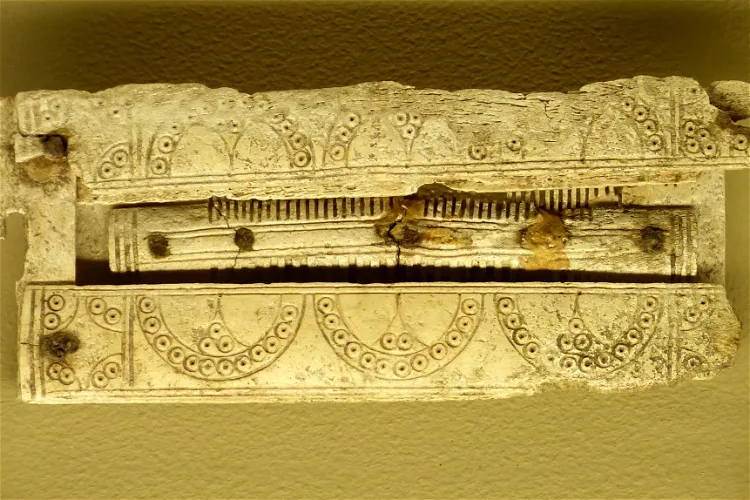
Archaeological Museum Kelheim
KelheimThe Archaeological Museum of the city of Kelheim is a dedicated institution that focuses on the archaeology and history of the Lower Bavarian city of Kelheim. It provides a comprehensive overview of the region's past, making it an ideal destination for those interested in history and archaeology.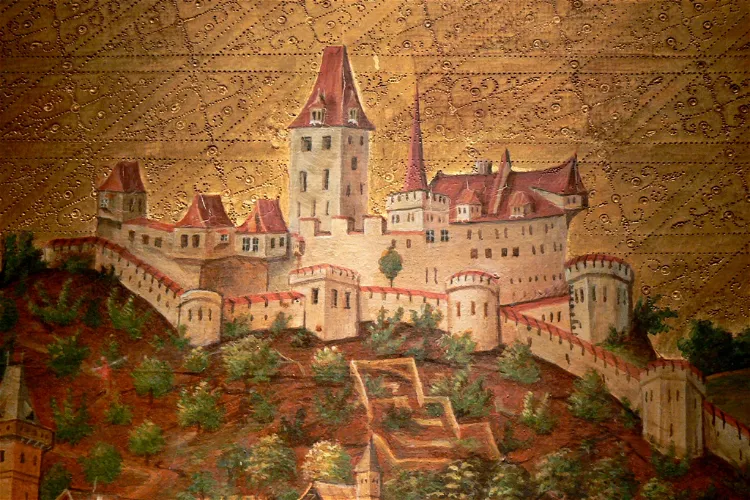
Oberhausmuseum
PassauThe Oberhausmuseum is situated in the Veste Oberhaus, one of the largest preserved castle complexes in Europe, located in the city of Passau. This unique location adds to the historical significance and charm of the museum, making it a fascinating destination for tourists interested in history and architecture.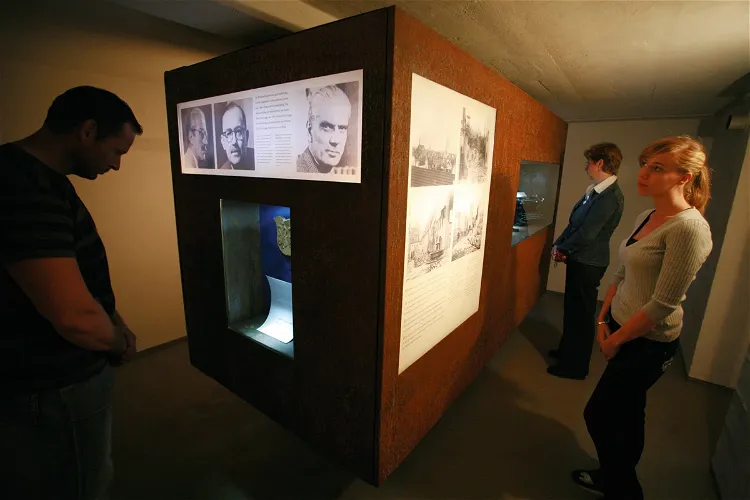
Fuggereimuseum
AugsburgThe Fuggereimuseum houses a permanent exhibition that showcases the history of the Fuggerei. Additionally, it features a historical museum apartment that provides a glimpse into life in the Fuggerei during the early 19th century. There is also a modern show apartment that offers a look at contemporary living in the Fuggerei.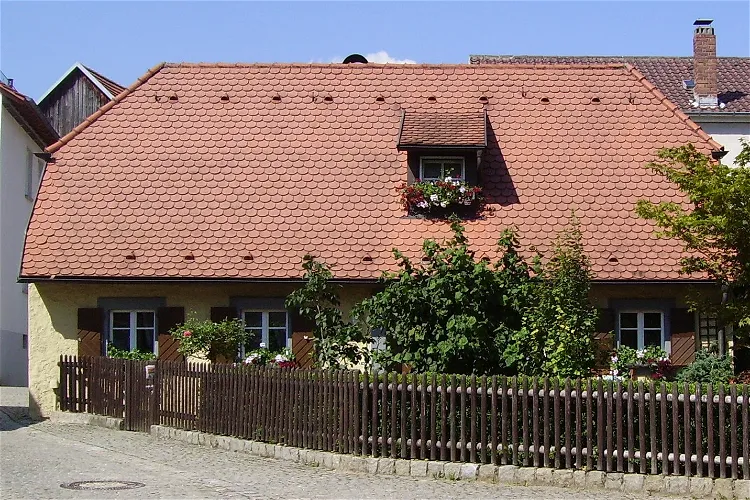
Museum Tropfhaus Sassanfahrt
HirschaidHistorically, Tropfhaus houses were small, with no more than 30 m² of living space. These houses were primarily occupied by day laborers, small craftsmen, and home workers. Despite the limited space, these workers often lived in these houses with their large families. The land on which a Tropfhaus was built was too small for self-sufficient agriculture.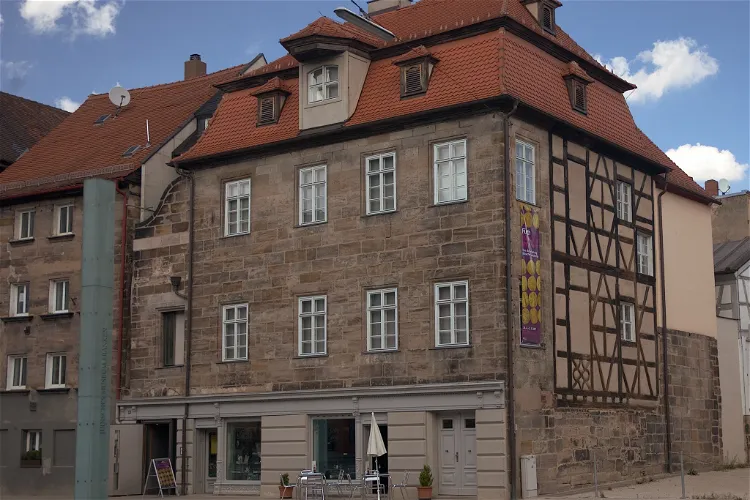
Jewish Museum Franken
SchnaittachThe Jewish Museum Franken is a unique institution that spans three locations in Fürth, Schnaittach, and Schwabach. Each of these locations is a historical monument, offering visitors a chance to explore the rich history of Jewish life in Franconia. The museum showcases the diversity of Franconian Jewish life from its beginnings to the present day.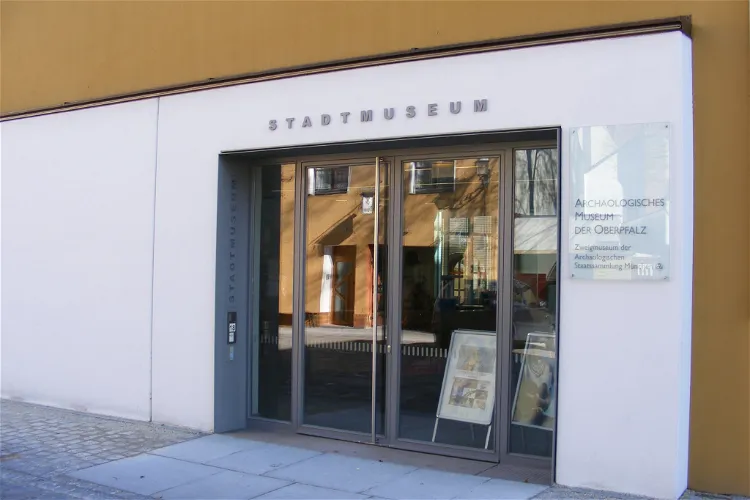
Stadtmuseum Amberg
AmbergThe Stadtmuseum Amberg, the city museum of Amberg, is located in the 'Baustadel', a warehouse dating back to the 15th/16th century. Since 1989, this historic building has been home to the museum, providing a unique setting for the exploration of the city's history and culture.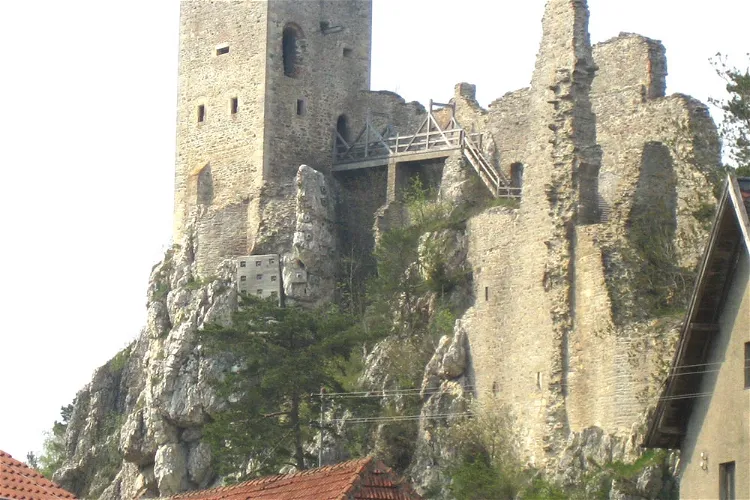
Weißenstein Castle
RegenWeißenstein Castle, also known as Burgruine Weißenstein in German, is a historical site located in the municipality of Weißenstein, in the borough of Regen, Bavaria. The castle is situated on a quartz ridge known as the Pfahl, at an elevation of 758 metres. Although it is now in ruins, the castle's rich history and unique location make it a fascinating destination for visitors.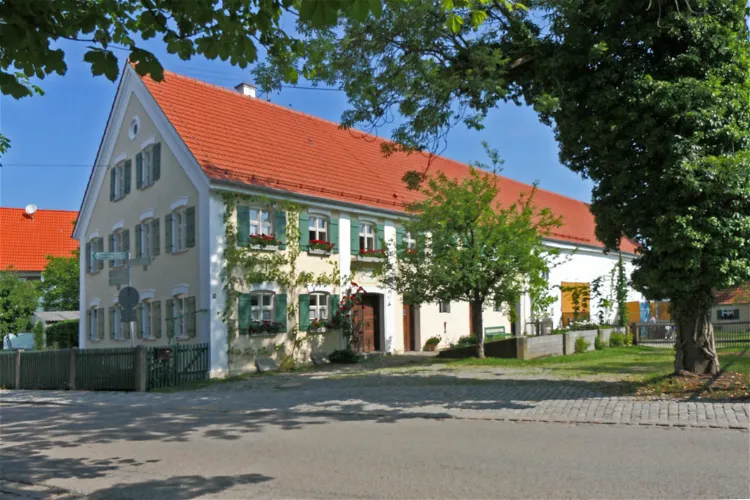
Kreisheimatstube Stoffenried
StoffenriedThe Kreisheimatstube Stoffenried is a quaint open-air museum nestled in the town of Stoffenried. It is conveniently located halfway between the towns of Krumbach and Günzburg, making it an accessible destination for tourists traveling in the region.
document Neupfarrplatz
RegensburgNeupfarrplatz and the eponymous Neupfarrkirche are located in the heart of Regensburg's old town, just south of the Regensburg Cathedral. This central location makes it an easily accessible and prominent spot for tourists visiting the city. The square and the church have a rich history that dates back to the expulsion of the Jewish population in 1519, which adds a historical depth to the site.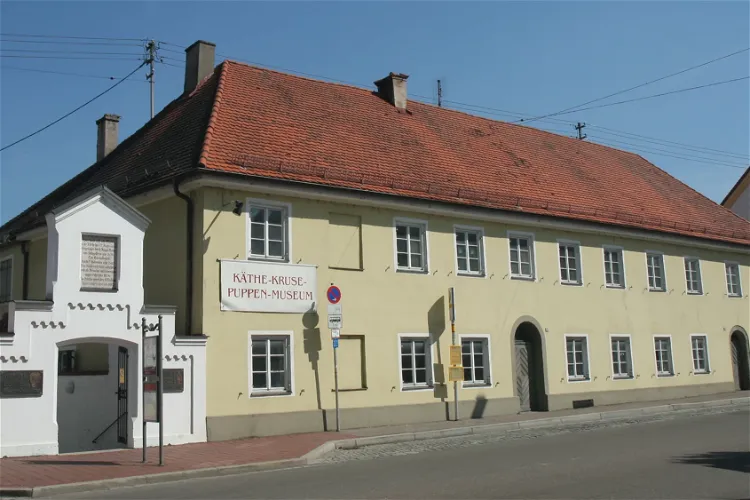
Käthe-Kruse-Puppen-Museum
DonauwörthThe Käthe-Kruse-Puppen-Museum is situated in the former Capuchin monastery in Donauwörth. This location adds a historical touch to the museum, making it not only a place to appreciate the art of doll making but also a site to experience a piece of Donauwörth's history.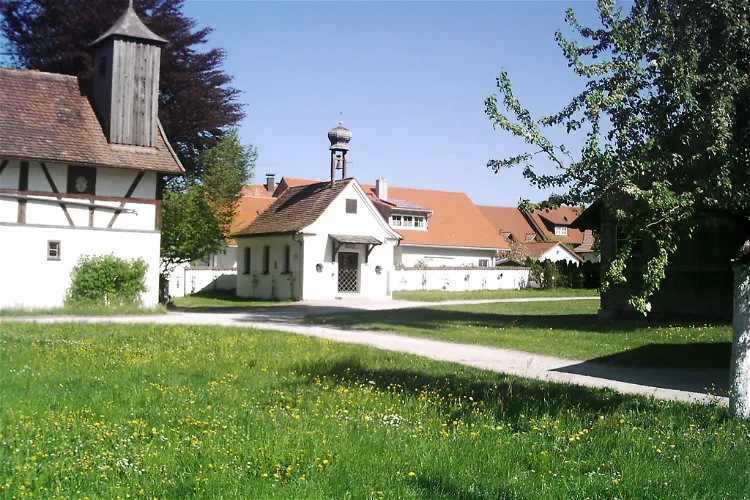
Schwäbisches Bauernhofmuseum Illerbeuren
IllerbeurenThe Schwäbische Bauernhofmuseum in Illerbeuren, a district of Kronburg in the Swabian district of Unterallgäu in Bavaria, is one of the older open-air museums in Germany. Established in 1955, it was the first of its kind in the south of the Federal Republic. This museum offers a unique opportunity to explore the history and culture of the region, making it a significant destination for tourists interested in history and culture.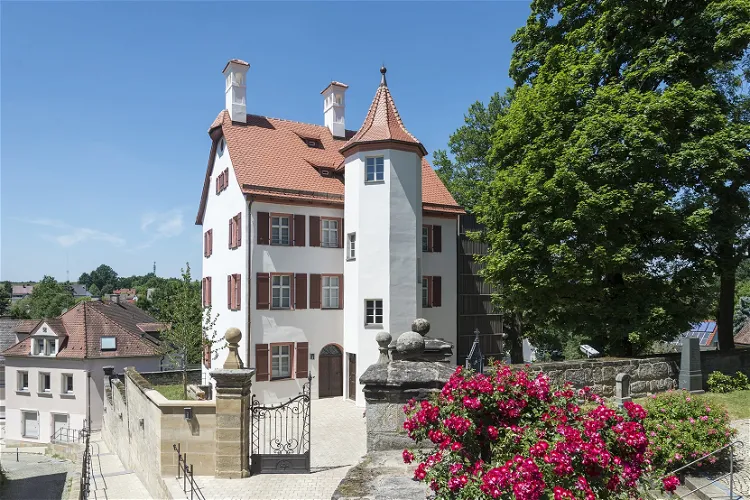
Weißes Schloß
HeroldsbergThe Weißes Schloss is one of the four castles in the Middle Franconian market town of Heroldsberg. It is a significant historical site that has been transformed into a museum and event venue. The castle was built by the Nuremberg patrician family Geuder and served the community as a town hall until 2005.
Oberhausmuseum Passau
PassauThe Oberhausmuseum is situated in the Veste Oberhaus, one of the largest preserved castle complexes in Europe, located in Passau. This unique location adds to the historical significance and charm of the museum, making it a fascinating destination for tourists interested in history and architecture.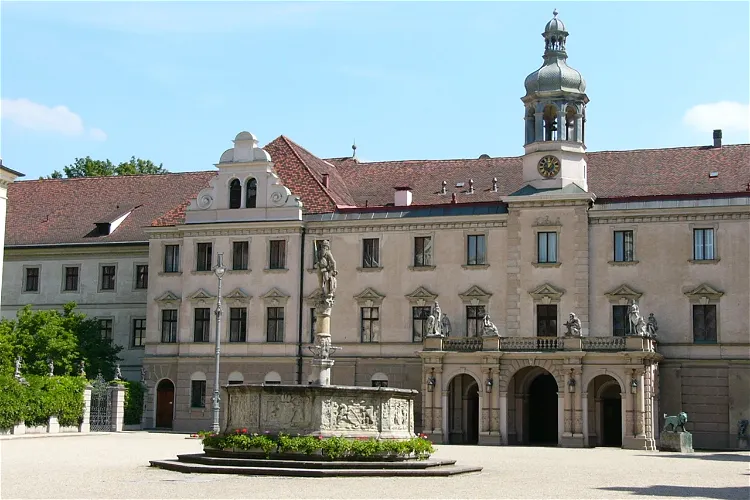
Palace Museum with Saint Emmeram Cloisters and Carriage Museum
RegensburgSlot Sankt Emmeram, also known as Slot Thurn und Taxis, is a significant historical site in Regensburg. It is the family castle of the Thurn und Taxis family, who had the right to deliver mail within the German lands and the Holy Roman Empire for centuries. Today, it serves as a residence for the family members and a museum for the public.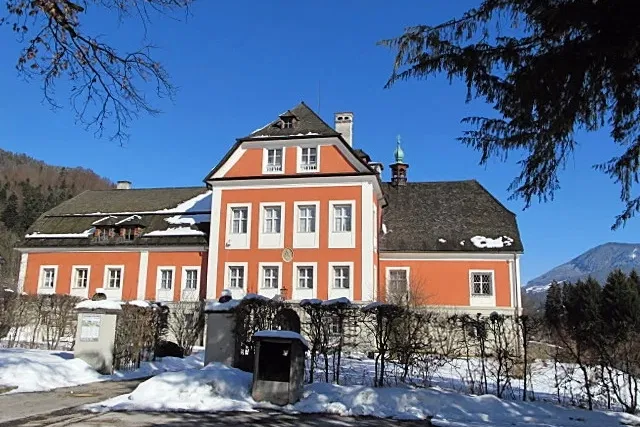
Museum Schloss Adelsheim
BerchtesgadenSchloss Adelsheim, located in Berchtesgaden, Bavaria, is a historic site that dates back to 1614. Since 1968, it has been home to the Museum Schloss Adelsheim. This museum showcases permanent and special exhibitions of historical objects related to Berchtesgaden on an exhibition area of up to 760 square meters.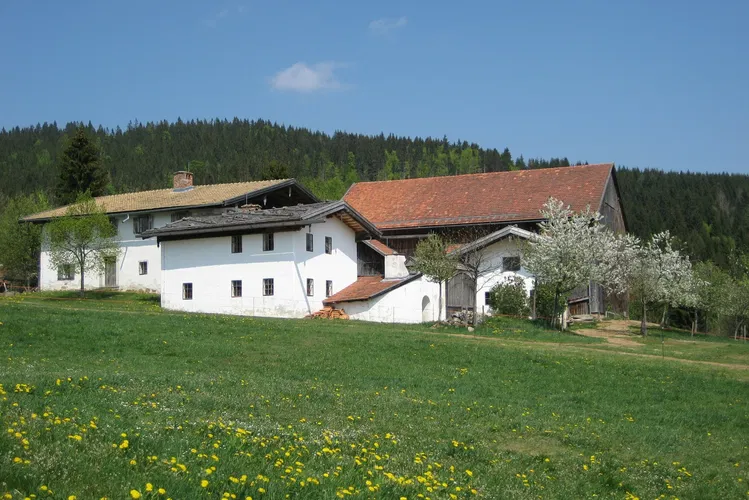
Lower Bavarian Open-Air Museums
FinsterauThe Finsterau Open-Air Museum, situated in the municipality of Mauth on the outskirts of the village of Finsterau in the Bavarian Forest near the Czech border, offers a rich display of rural architecture. The museum features farmhouses, complete farmsteads, a village smithy, and a roadside inn from across the Bavarian Forest. These exhibits provide a comprehensive view of the historical rural life in this region.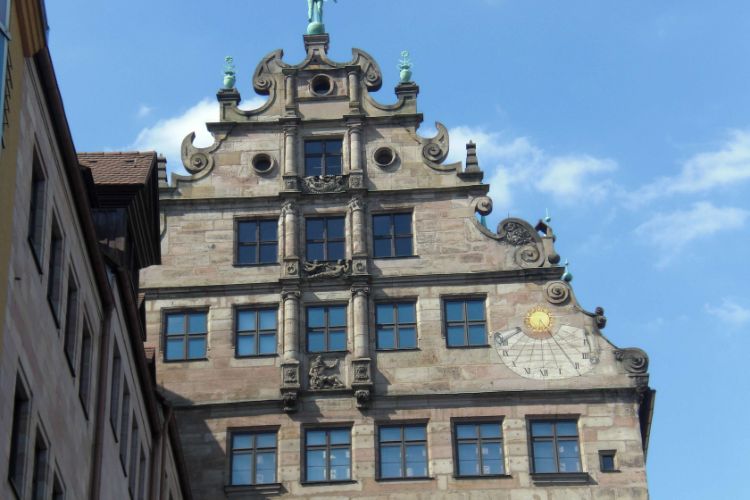
City Museum at Fembo House
NurembergThe Stadtmuseum Fembohaus (City Museum at Fembo House) is the city museum of Nuremberg that is dedicated to the history of Nuremberg that spans 950 years. The building that houses the City Museum is the Fembohaus, Nuremberg's only surviving large merchant's house of the late Renaissance. The museum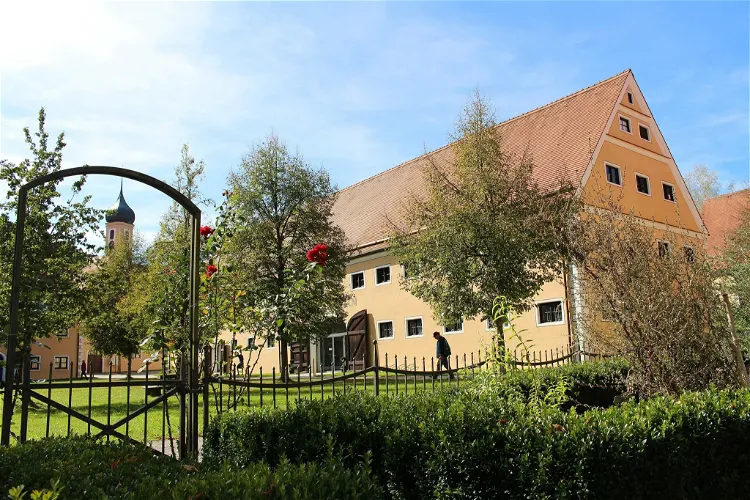
Museum Oberschönenfeld
MargertshausenThe Museum Oberschönenfeld, previously known as the Schwäbisches Volkskundemuseum Oberschönenfeld, is situated in the former protected economic buildings of the Cistercian Abbey Oberschönenfeld. The museum is nestled within the scenic Augsburg Nature Park - Western Forests, offering visitors a unique blend of cultural and natural attractions.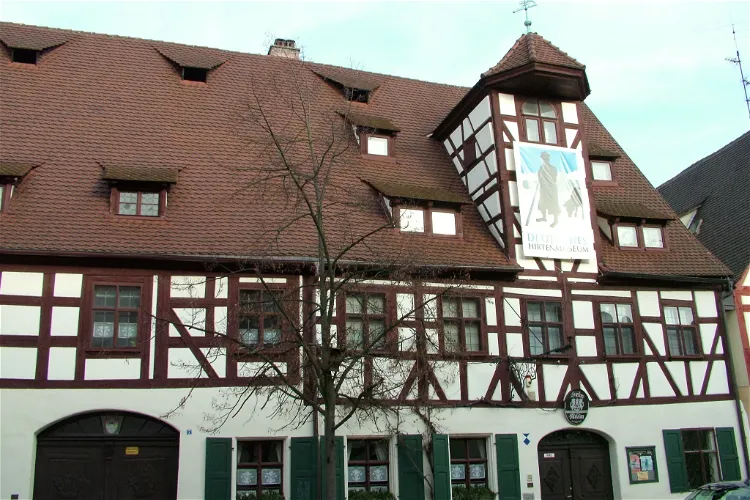
Deutsches Hirtenmuseum
HersbruckThe Deutsches Hirtenmuseum, located in the city of Hersbruck, was inaugurated in 1933. It is housed in a protected ensemble that includes a 16th-century farmer's house, a barn, and another building, all surrounding a large courtyard and garden. This setting provides a unique and historical backdrop for the museum's exhibits.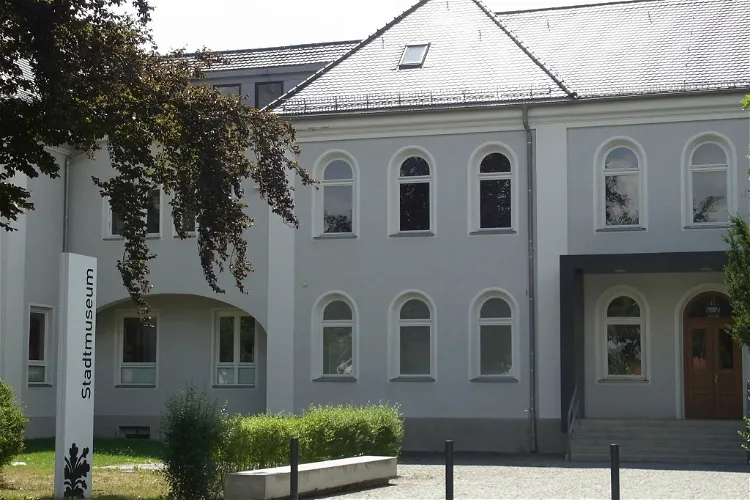
Stadtmuseum Aichach
AichachThe Stadtmuseum Aichach is a city and regional history museum located in the district of Aichach-Friedberg in the Bavarian administrative district of Swabia. It provides a comprehensive insight into the history and culture of the region, making it a worthwhile destination for those interested in local history.
Luftmuseum Amberg
AmbergThe Luftmuseum in Amberg is a unique cultural history museum that has been dedicated to the exploration of the art and culture of air and pneumatics since 2006. It offers a unique perspective on the role of air in our lives, from the technical to the artistic. The museum is privately owned and operated, ensuring a unique and personal touch to the exhibits and programs.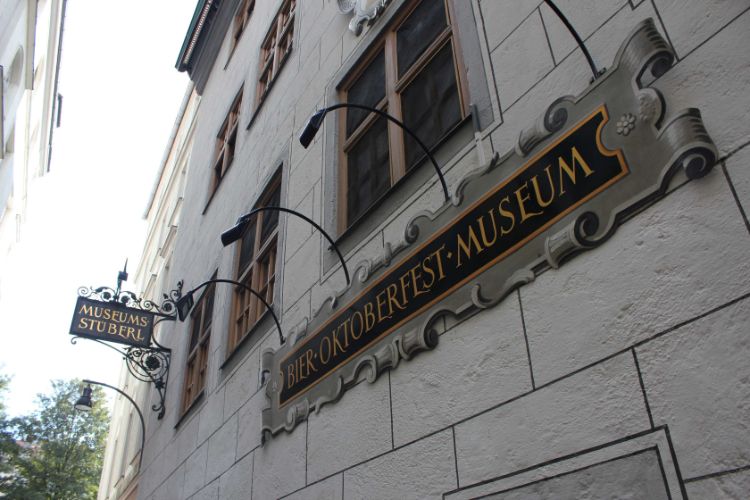
Beer and Oktoberfest Museum
MunichThe Beer and Oktoberfest Museum (The Bier- und Oktoberfestmuseum) is a museum in Munich devoted to the history of beer (on the ground floor) and Oktoberfest (on the upper floors). This beer museum in Munch is housed in an old building that dates from 1327. The museum includes various exhibitions inh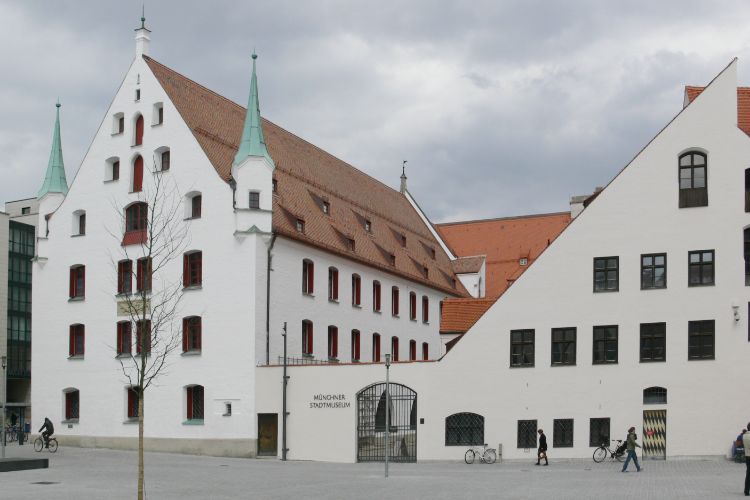
Munich Municipal Museum
MunichThe Munich Municipal Museum (Munich Stadtmuseum) is the city's main museum that houses various exhibitions on topics related to Munich on three floors, with focus on the culture. The museum is housed in the former municipal arsenal and stables, both of the late Gothic period. The museum features var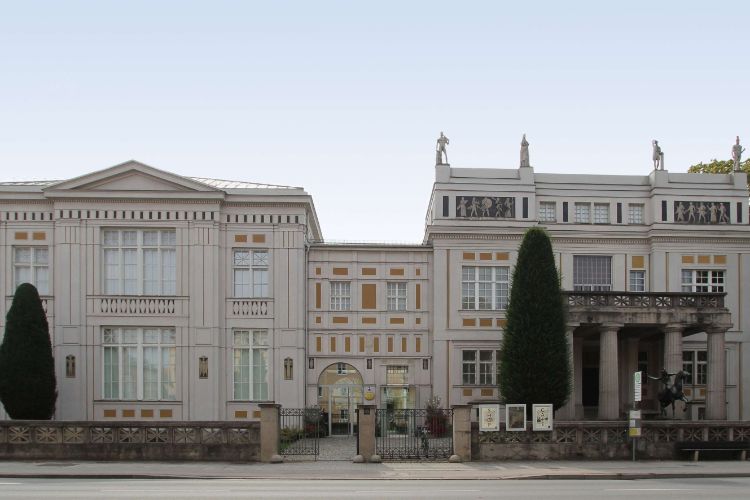
Stuck Villa (Jugendstil Museum)
MunichStuck Villa (Jugendstil Museum) is a villa in Munich designed and built by the painter Franz von Stuck for his personal use between 1897 and 1898. In 1968 it was transformed to house the Museum Villa Stuck dedicated to Art Nouveau. The interior presents some of the artist's paintings and retains the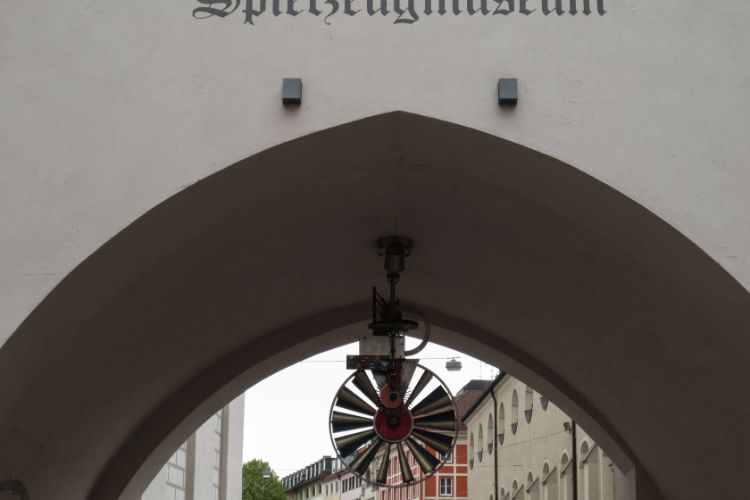
Toy Museum
MunichThe Toy Museum in Munich opened in 1983 and features the numerous collection of toys of Ivan Steiger. Located in a Gothic tower next to the Marienplatz, the museum boasts four floors packed full of toys, from old teddy bears to trains.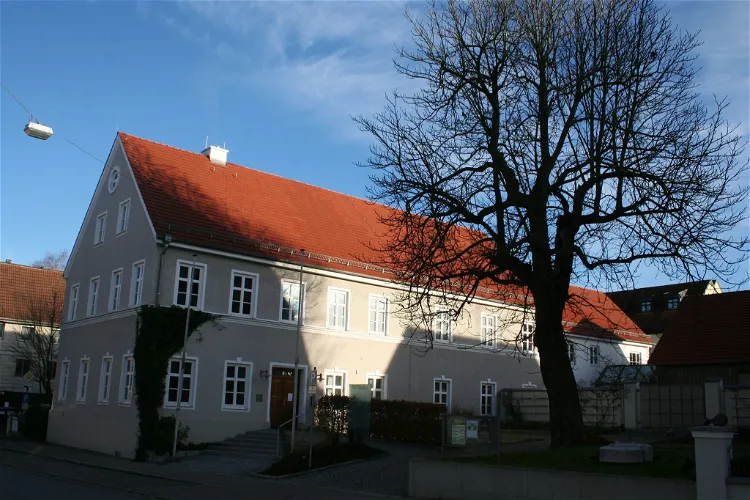
Mittelschwäbisches Heimatmuseum
Krumbach (Schwaben)The Mittelschwäbische Heimatmuseum, founded in 1908, is centrally located in Krumbach (Schwaben) since 1950. This museum is a significant part of the town's history and culture, offering visitors a chance to explore the region's past.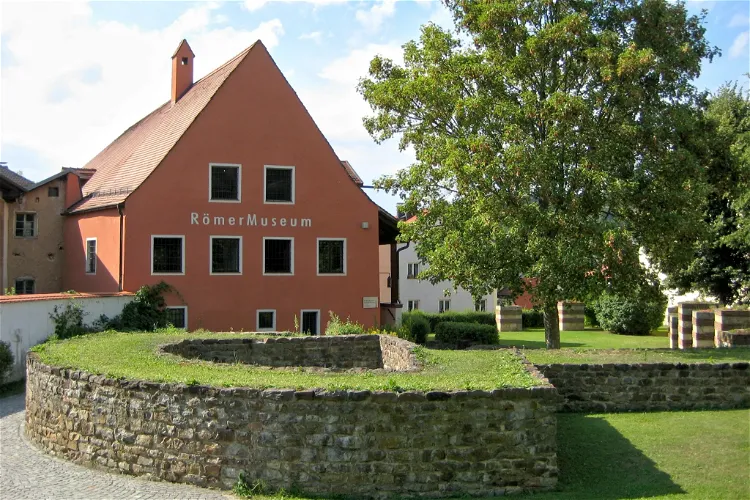
Roman Museum Castle Boiotro
PassauThe Roman Museum Castle Boiotro, situated in the Innstadt district of Passau, was inaugurated in 1982. This museum is a significant historical site that offers visitors a glimpse into the past of this region. It is located on the foundations of the late Roman Castle Boiotro, remnants of which can be seen in the museum's outdoor area.
MEWO Kunsthalle
MemmingenThe MEWO Kunsthalle is a city exhibition house located in the city of Memmingen. It is dedicated to showcasing contemporary art as well as art from the 19th and 20th centuries. This makes it a significant destination for art enthusiasts and tourists interested in these periods of art history.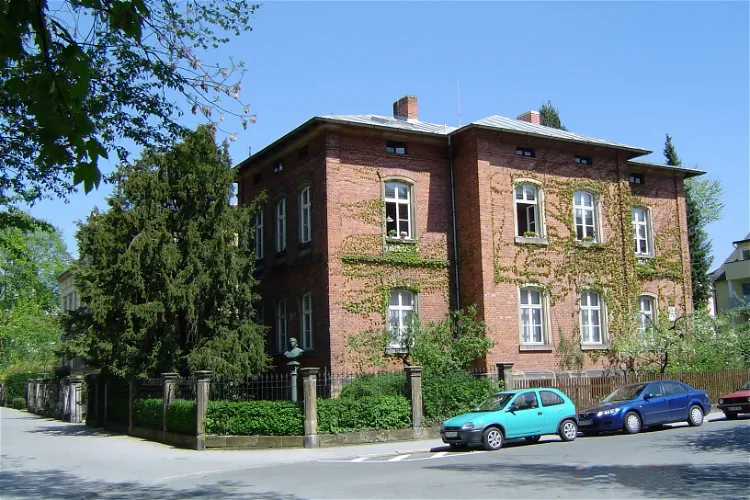
Franz-Liszt-Museum
BayreuthThe Franz-Liszt-Museum in Bayreuth is a tribute to the life and work of the renowned pianist, conductor, and composer Franz Liszt. The museum provides an in-depth look into Liszt's life, showcasing his contributions to music and his personal life.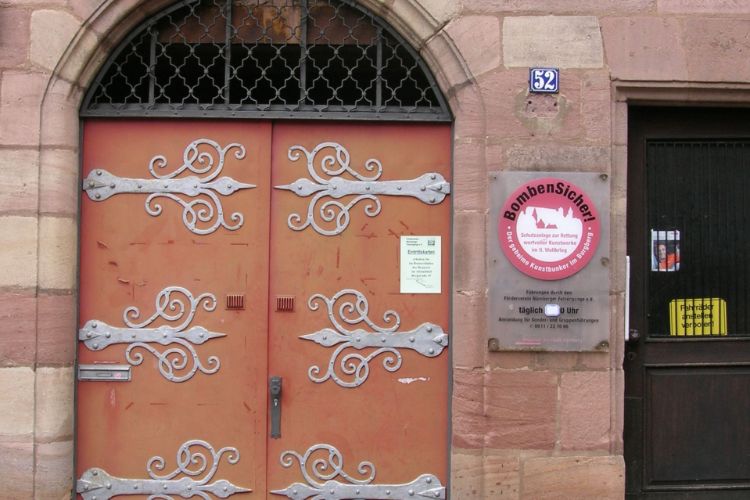
Kunstbunker
NurembergThe Historische Kunstbunker (Historic art bunker) is a tunnel complex under the Nuremberg Castle in Nuremberg. Visitors can participate in discovery tours to take a look at Nuremberg from a completely different side and discover places that have existed for many centuries but are hidden under the st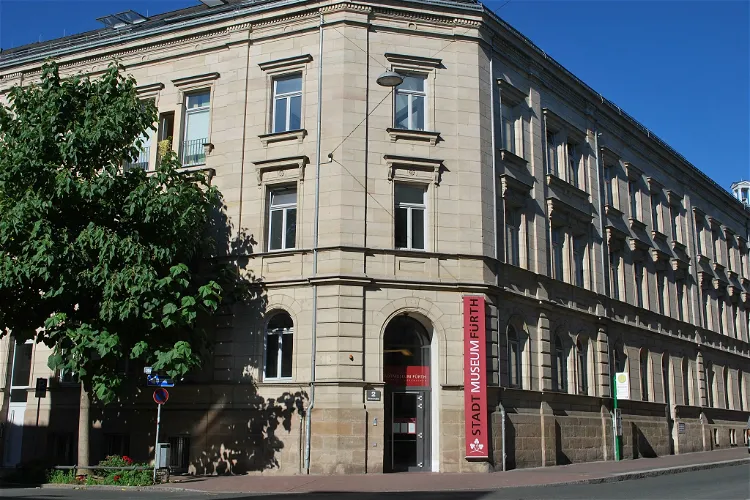
Stadtmuseum Fürth
FürthThe Stadtmuseum Fürth is a museum that presents the city and economic history of the Franconian city of Fürth. It provides a comprehensive overview of the city's development, from its early beginnings to the present day. The museum's collection includes exhibits that span from the Bronze Age to the present day, offering a deep dive into the city's rich history.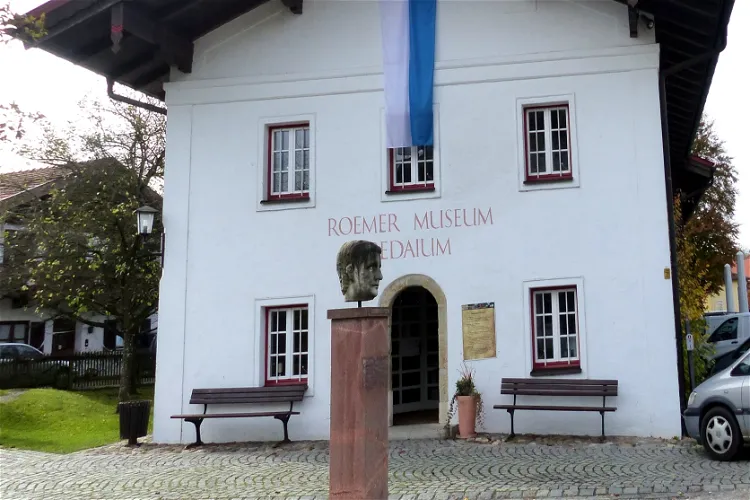
Römermuseum Bedaium Seebruck
Seeon-SeebruckThe Römermuseum Bedaium in Seebruck on the Chiemsee is a municipal museum that houses around 500 exhibits. This museum is managed by the municipality of Seeon-Seebruck, offering visitors a chance to explore a wide range of artifacts.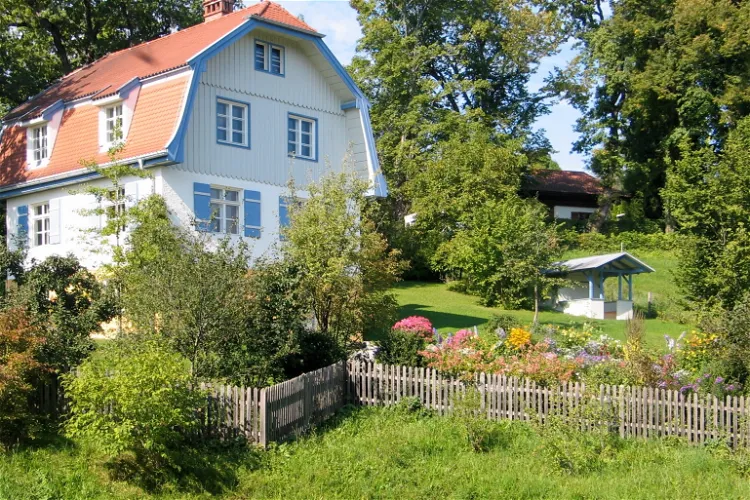
Münter-Haus
Murnau am StaffelseeThe Münter-Haus in Murnau am Staffelsee holds a significant place in the history of art as it was the home of the artist Gabriele Münter. She lived here from 1909 to 1914 with Wassily Kandinsky, and from 1931 with Johannes Eichner until her death in 1962. This house was a hub of artistic activity and creativity during these periods.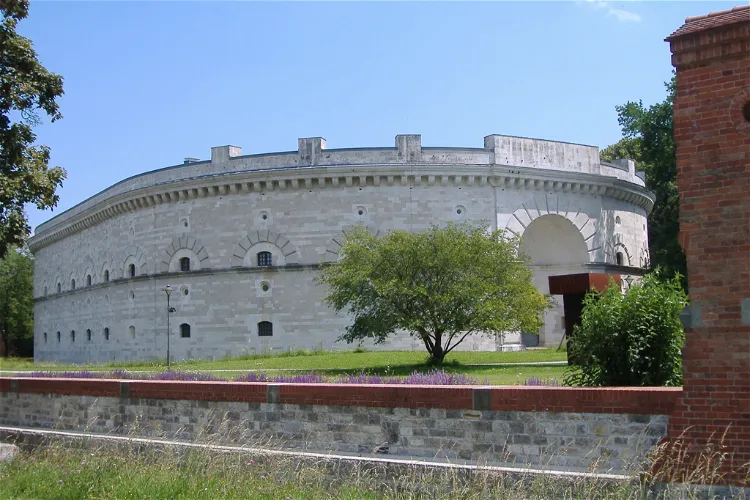
Bavarian Police Museum
IngolstadtThe Bavarian Police Museum, located in the historic Triva Tower in Klenzepark, Ingolstadt, serves as the central museum for the Bavarian police. This location not only offers a unique insight into the history and development of the police force in Bavaria but also provides a picturesque setting for visitors to enjoy.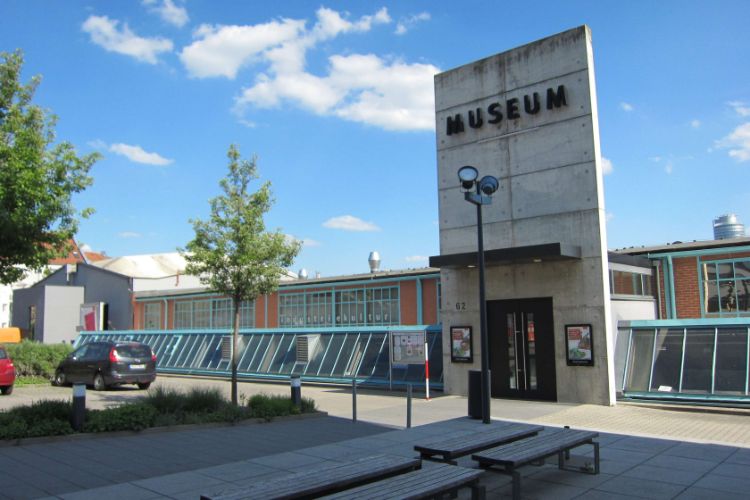
Museum for Industrial Culture
NurembergThe Museum of Industrial Culture in Nuremberg is a museum of technology, culture and social history that documents the history of industrialization, focusing on examples of Nuremberg. The museum is housed in a hall of the former ironworks Julius Tafel (Tafelwerk) and covers around 6,000 m² of exhibi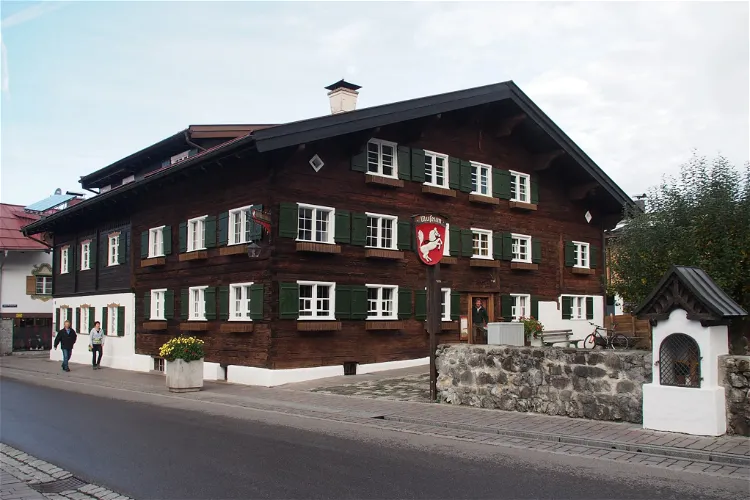
Heimatmuseum Oberstdorf
OberstdorfThe Heimatmuseum in Oberstdorf is housed in the Köcherlerhaus, a farmhouse that was built in 1620. This building is one of the few in the town center that survived a major fire in 1865. This historical context adds a layer of intrigue and resilience to the museum, making it a fascinating place to visit for those interested in local history.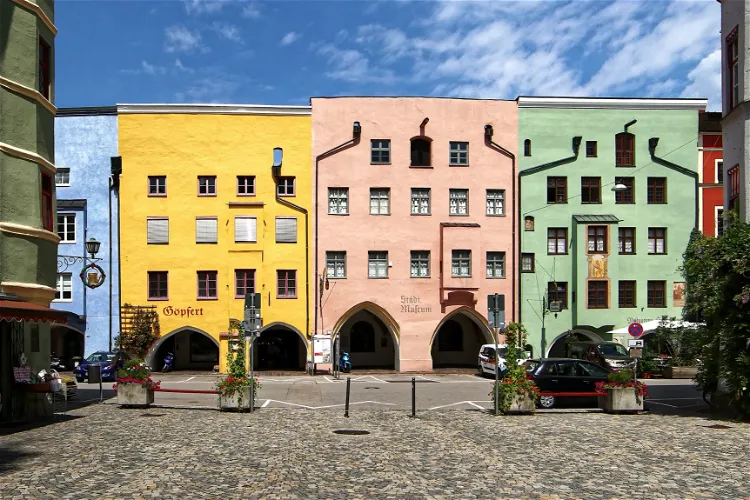
Museum Wasserburg
Wasserburg am InnThe Museum Wasserburg offers a comprehensive overview of the city's history, spanning from prehistoric times to the early 20th century. Visitors can explore various exhibits that delve into different periods and aspects of the city's past, providing a rich and detailed understanding of its evolution over time.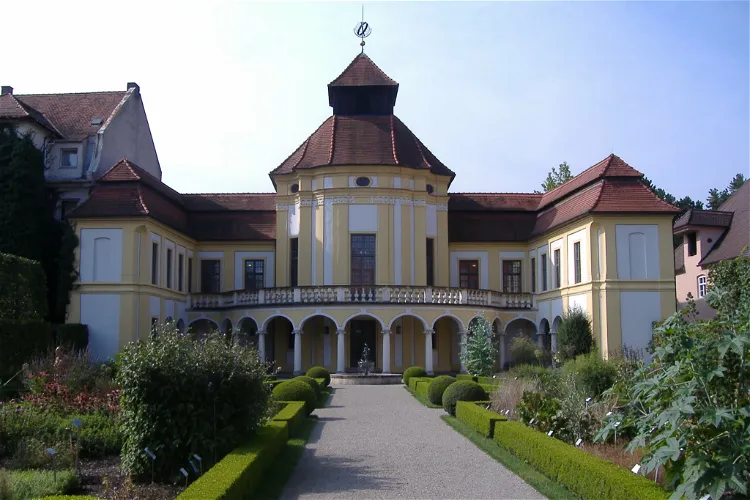
German Museum of Medicine History
IngolstadtThe German Museum of Medicine History (DMM) in Ingolstadt is a comprehensive repository of medical history, tracing the evolution of medicine from antiquity to the present day. Visitors can explore the rich tapestry of medical advancements and practices through the ages, providing a unique perspective on the development of healthcare and medical sciences.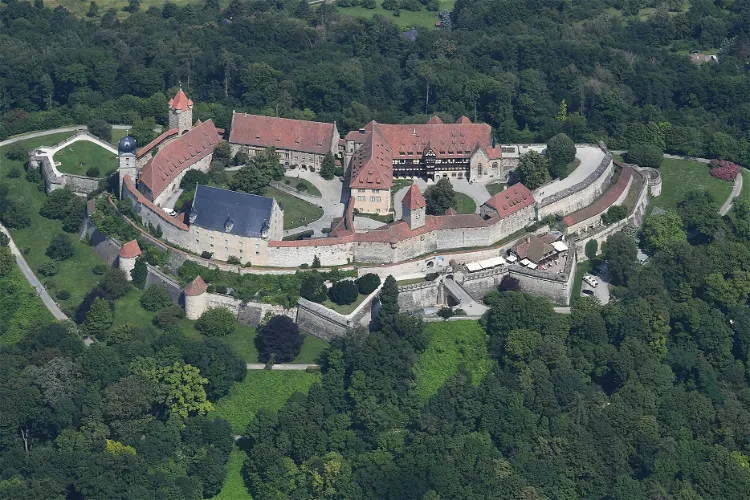
Veste Coburg
CoburgVeste Coburg, often referred to as the 'Franconian Crown', is a significant historical site in Germany. It is one of the largest and best-preserved castles in the country. The castle is strategically located on a hill, providing a panoramic view of the city of Coburg. It is situated on the border of Bavaria and Thuringia, adding to its historical and geographical significance.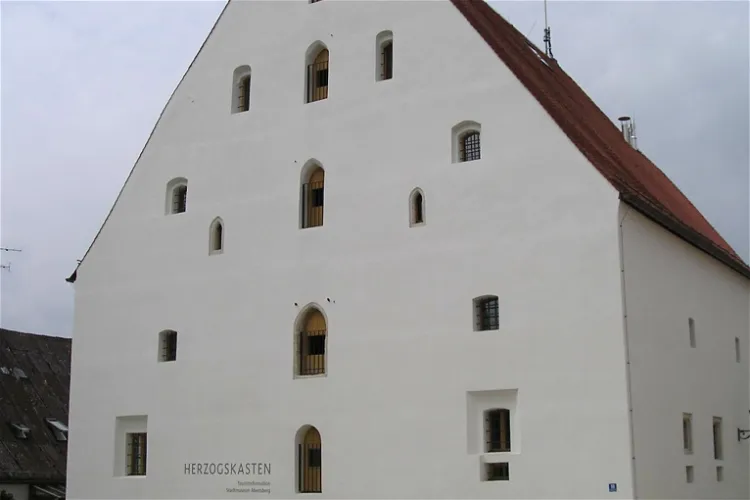
Herzogskasten Stadtmuseum Abensberg
AbensbergThe Herzogskasten in Abensberg is a significant historical site that has been repurposed for modern use. This Gothic secular building, which was originally used as a grain store and warehouse, now houses the Stadtmuseum Abensberg and the tourist information center. Located at Dollingerstraße 18, it offers visitors a glimpse into the city's past while providing useful information for their stay.
Fritz-Winter-Atelier
Dießen am AmmerseeThe Fritz Winter Atelier is located in the market town of Dießen am Ammersee, in the Upper Bavarian district of Landsberg am Lech. This studio house, which was built in 1961/62, was the workspace of the renowned painter Fritz Winter. It's a significant part of the town's cultural and historical heritage.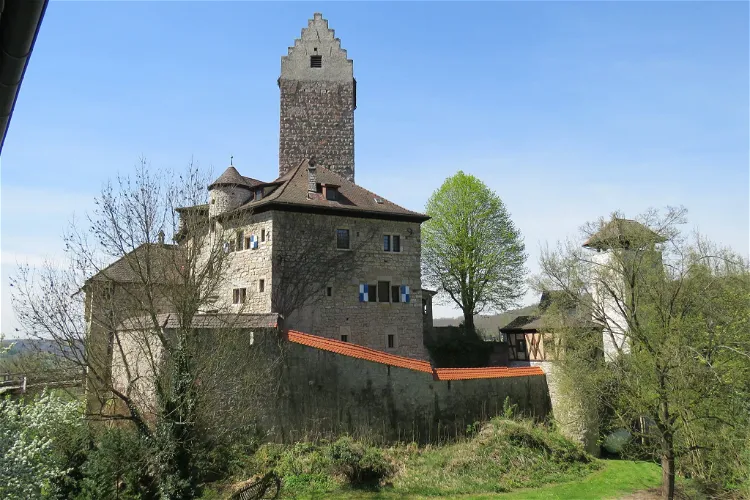
Römer und Bajuwaren Museum
KipfenbergThe Römer und Bajuwaren Museum Burg Kipfenberg is an archaeological, folkloric, and local history museum. It is situated in Kipfenberg, a market town in the Upper Bavarian district of Eichstätt. The museum is housed in a former economic building of Burg Kipfenberg, adding a touch of historical charm to the overall experience.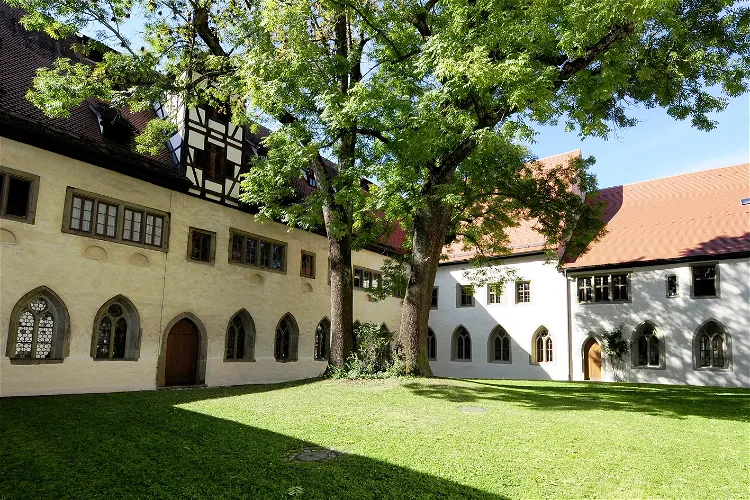
RothenburgMuseum
Rothenburg ob der TauberThe RothenburgMuseum, previously known as the Reichsstadtmuseum until 2019, is dedicated to the history of the city of Rothenburg ob der Tauber. It provides a comprehensive overview of the city's past, making it an essential stop for those interested in understanding the historical context of Rothenburg ob der Tauber.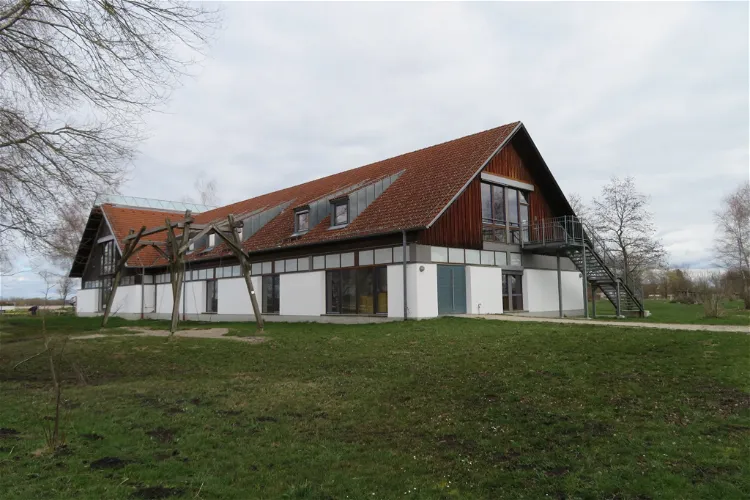
Haus im Moos
KleinhohenriedThe Haus im Moos in Kleinhohenried is a unique combination of a museum, educational center, and conference facility. Opened in 1998, it offers a rich insight into the history and culture of the Donaumoos region. The museum documents the struggle of the colonists for the drainage and cultivation of the moor, which began in the late 18th century. It is an ideal destination for those interested in history, culture, and nature.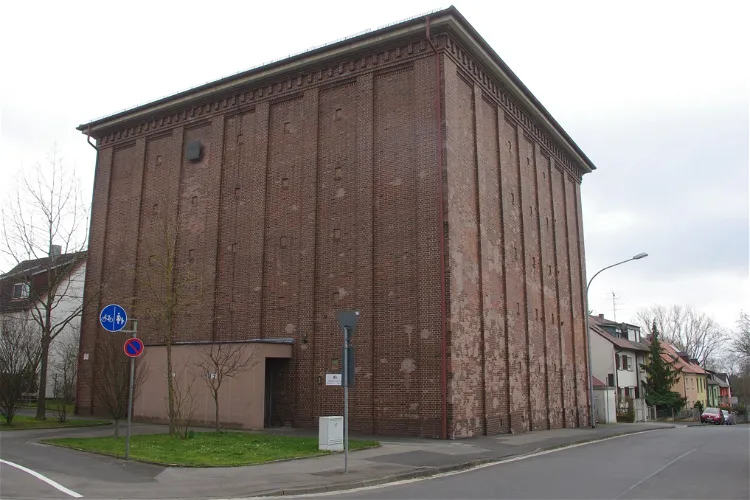
Deutsches Bunkermuseum
SchweinfurtThe Deutsches Bunkermuseum in Schweinfurt is a museum dedicated to the air and civil defense during World War II. It was opened in 2014 and provides a comprehensive look into the strategies and measures taken for protection during the war. The museum is housed in the Fichtel-and-Sachs bunker, originally known as Hochbunker A8.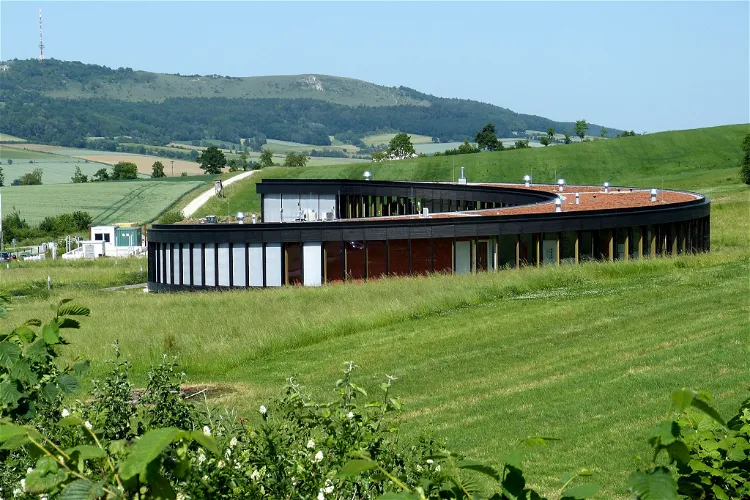
Limeseum Ruffenhofen
IrsingenThe Limeseum is an archaeological museum located in Römerpark Ruffenhofen in the Ansbach district. It was established in 2012 and provides a wealth of information about the Roman era. The museum is designed as a round building that blends into its landscape just below the Hesselberg.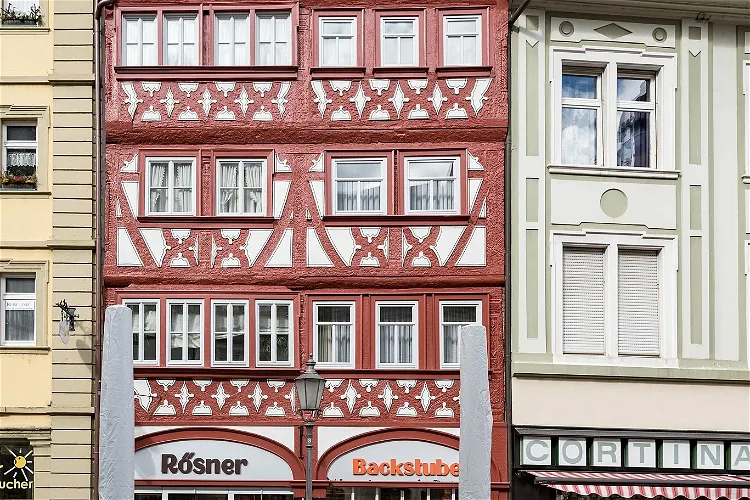
Conditorei Museum Kitzingen
KitzingenThe Conditorei Museum in Kitzingen is a unique institution dedicated to the bakery and confectionery crafts. It provides a deep dive into the history and evolution of these crafts, offering a unique perspective on the city's culinary heritage.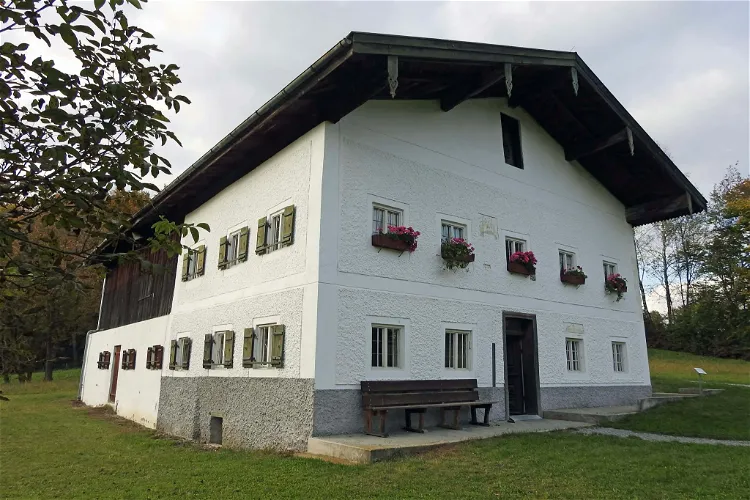
Bauernhausmuseum Amerang
AmerangThe Bauernhausmuseum Amerang is an open-air museum situated in the scenic Chiemgau region of Upper Bavaria, on the outskirts of the town of Amerang. This location offers visitors a unique opportunity to explore the rich history and culture of the region in a picturesque setting.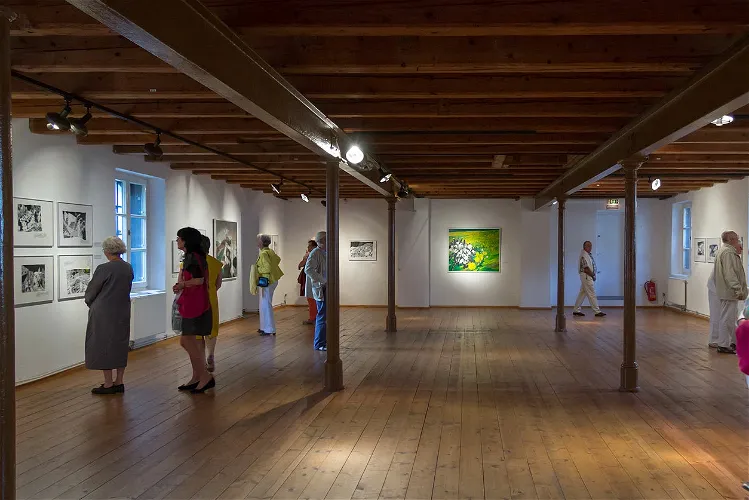
Museum Fürstenfeldbruck
FürstenfeldbruckThe Museum Fürstenfeldbruck, located in the former monastery brewery in the Cistercian monastery Fürstenfeld, is the city's art and cultural history museum. It offers a unique insight into the history and art of the Fürstenfeld monastery and its relationship with the Wittelsbach rulers.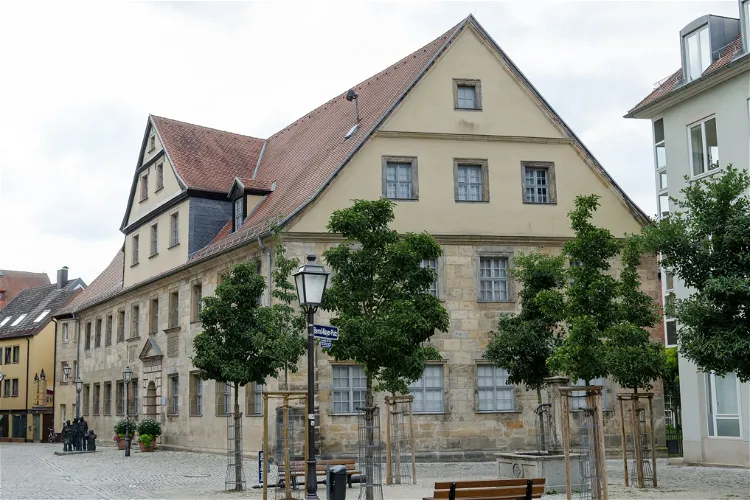
Historisches Museum Bayreuth
BayreuthThe Historisches Museum Bayreuth, initially known as the "Stadtmuseum", holds the distinction of being the oldest museum in the Upper Franconian city of Bayreuth. This museum has a rich history, with its primary goal being the preservation and public display of local and regional cultural heritage.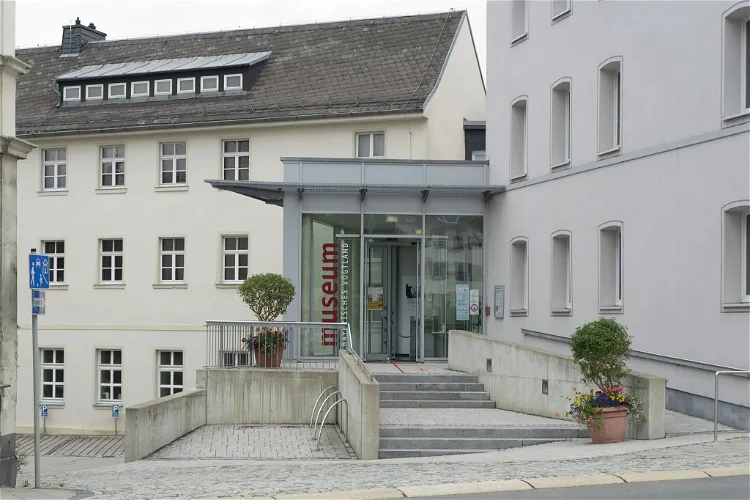
Museum Bayerisches Vogtland
HofThe Museum Bayerisches Vogtland, located in Hof (Saale), is a cultural and natural history museum. It offers a rich collection of exhibits that cover a wide range of historical themes, from traditional crafts to the era of industrialization, with a particular emphasis on textile production, which was of great regional importance.
Fränkisches Museum Feuchtwangen
FeuchtwangenThe Fränkisches Museum Feuchtwangen is a significant cultural institution located in the city of Feuchtwangen in the Middle Franconian district of Ansbach. The museum boasts an extensive exhibition area of over 2000 m², making it a spacious venue for visitors to explore and learn about the region's history and culture.
Museum Penzberg
PenzbergThe Museum Penzberg – Sammlung Campendonk, previously known as Stadtmuseum Penzberg, is an art and city museum situated in the town of Penzberg, within the district of Weilheim-Schongau in Upper Bavaria. This museum is a part of the MuSeenLandschaft Expressionismus, along with other notable museums such as the Museum der Phantasie in Bernried am Starnberger See, the Franz Marc Museum in Kochel am See, and the Schloßmuseum Murnau.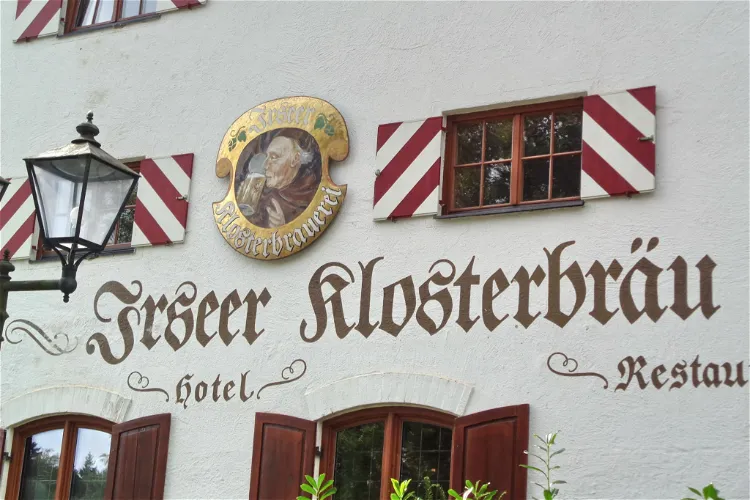
Brauereimuseum Irsee
IrseeThe Klosterbrauerei Irsee GmbH is a South Bavarian brewery that offers more than just beer. It has an attached brewery museum where visitors can learn about the history and process of beer making. The brewery also has a restaurant and a hotel, making it a comprehensive destination for those interested in Bavarian beer culture.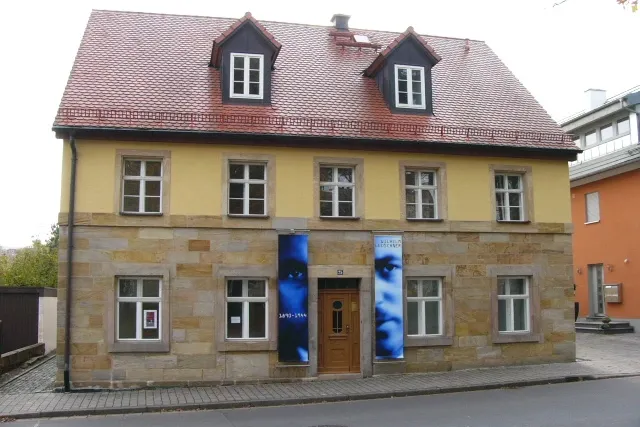
Wilhelm-Leuschner-Gedenkstätte
BayreuthThe Wilhelm-Leuschner-Memorial is a museum in Bayreuth that pays tribute to the life and work of Wilhelm Leuschner, a trade unionist and social democrat who resisted National Socialism. This museum provides an opportunity to learn about a significant figure in German history and his fight against oppressive regimes.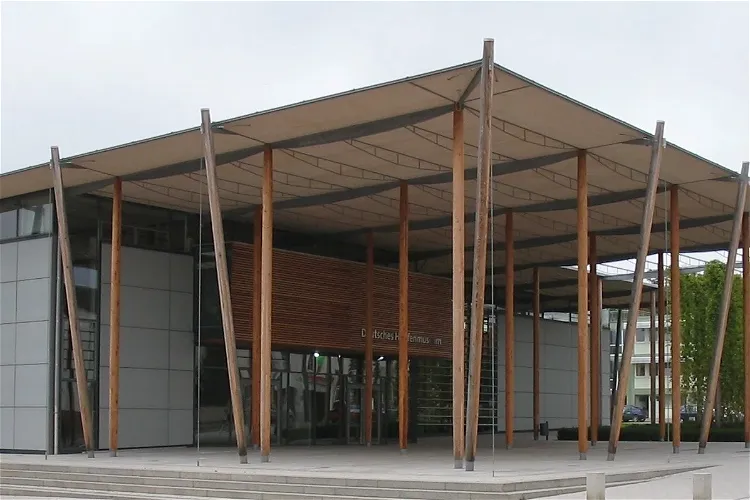
Deutsches Hopfenmuseum
WolnzachThe Deutsches Hopfenmuseum, located in Wolnzach, Hallertau, Bavaria, was established in 2002. The museum was set up by the Förderverein Deutsches Hopfenmuseum on the site of a former fire station. This historical context adds a unique charm to the museum, making it an interesting destination for tourists.
Meißener Porzellan-Sammlung Stiftung Ernst Schneider
OberschleißheimThe Meißener Porzellan-Sammlung Stiftung Ernst Schneider is a significant destination for those interested in porcelain artistry. It houses the second largest collection of 18th century Meissen porcelain in the world, surpassed only by the collection in Dresden. This makes it a unique place to explore the rich history and craftsmanship of Meissen porcelain.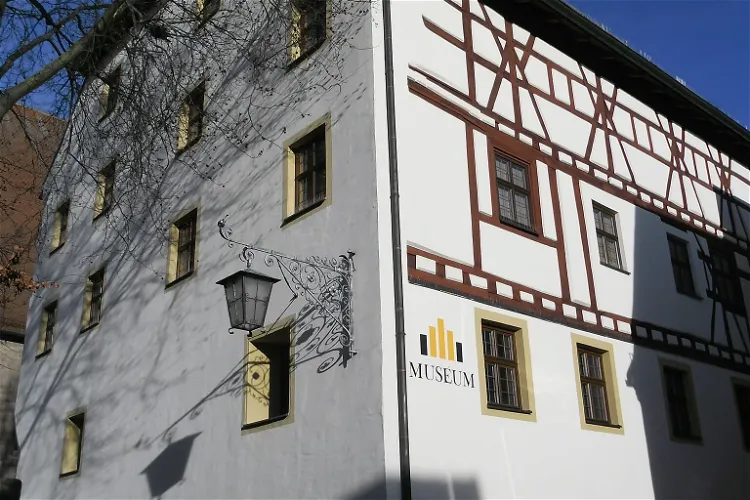
Stadtmuseum Herzogenaurach
HerzogenaurachThe Stadtmuseum in Herzogenaurach is a place where visitors can delve into the city's rich 1000-year history. It also provides an insight into the history of major corporations such as adidas, Puma, and the Schaeffler Group, all of which have their headquarters in the city. This unique combination of local and corporate history makes the museum a fascinating destination for those interested in understanding the city's past and its economic development.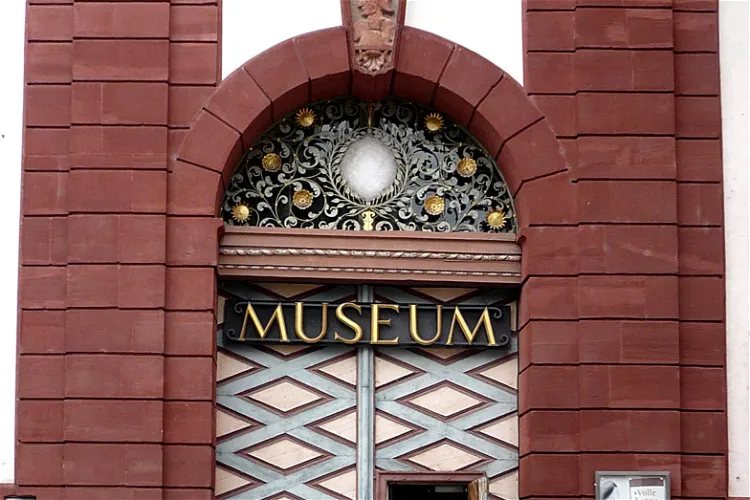
Museum für Franken & Staatliches Museum für Kunst- und Kulturgeschichte
WürzburgThe Museum für Franken, previously known as the Mainfränkisches Museum, is situated within the Marienberg Fortress in Würzburg. It is recognized as one of the largest art collections in Bavaria. The museum houses a vast array of high-value works from Franconian artists, making it a significant international museum in Germany.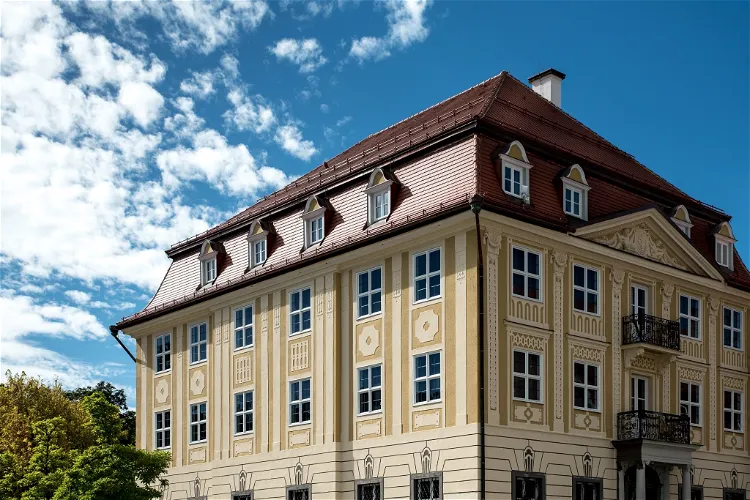
Kunsthalle Kempten
Kempten (Allgäu)The Kempten Museum, situated in the historic Zumsteinhaus, is a relatively new addition to the city's cultural scene, having opened its doors in 2019. The museum is dedicated to the history and culture of Kempten, one of the oldest cities in Germany. It offers a comprehensive overview of the city's past, spanning over 2000 years, from its ancient origins to the present day.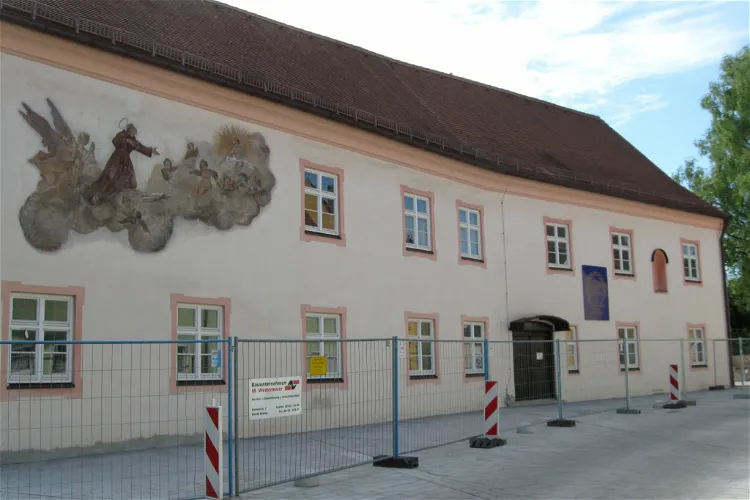
Museum Erding
ErdingThe Museum Erding, located in Erding, is a local history museum that was established in 1856 by Anton Bachmair, a shoemaker. With over 160 years of collection history, it is one of the oldest municipal museums in Bavaria. The museum's collection began with musician uniforms, weapons, and other items.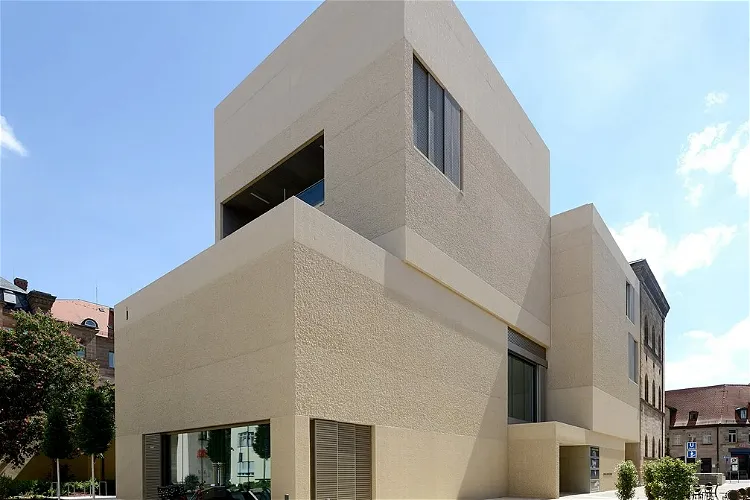
Ludwig Erhard Zentrum
FürthThe Ludwig Erhard Zentrum (LEZ) in Fürth is a unique institution in Germany. It serves as an exhibition, documentation, meeting, and research center dedicated to Ludwig Erhard and his concept of the Social Market Economy. The center is located in Erhard's birthplace, making it a significant location for those interested in understanding the life and work of this influential figure.
Schlossmuseum
AschaffenburgThe Schlossmuseum in Aschaffenburg is a significant cultural institution that houses a vast collection of artworks and historical artifacts spanning six centuries. It is located in the historic Schloss Johannisburg, adding to the overall historical and cultural experience for visitors.
Kallmann-Museum
IsmaningThe Kallmann Museum, situated in the Ismaning Castle Park in Ismaning near Munich, is a destination for those interested in modern and contemporary art. The museum's location offers a serene environment that complements the artistic experience within its walls.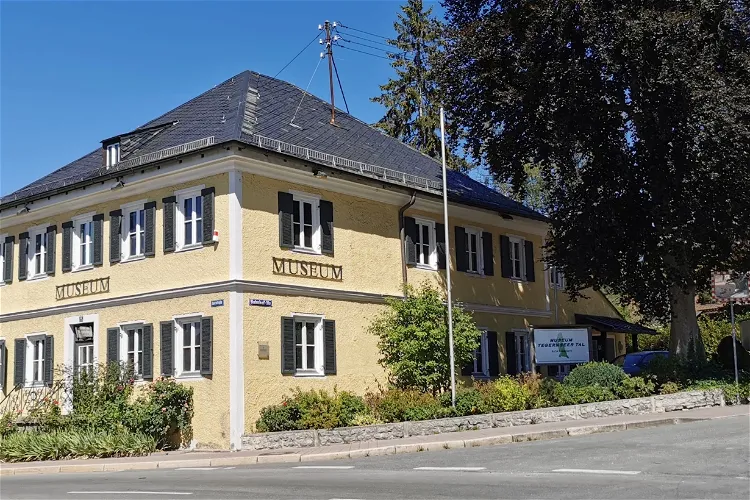
Museum Tegernseer Tal Kultur und Geschichte
TegernseeThe Museum Tegernseer Tal boasts a collection of approximately 850 exhibits, displayed across 17 rooms. These exhibits span a broad timeline, from the 14th century to the present, offering visitors a comprehensive look at the region's history and evolution over the centuries.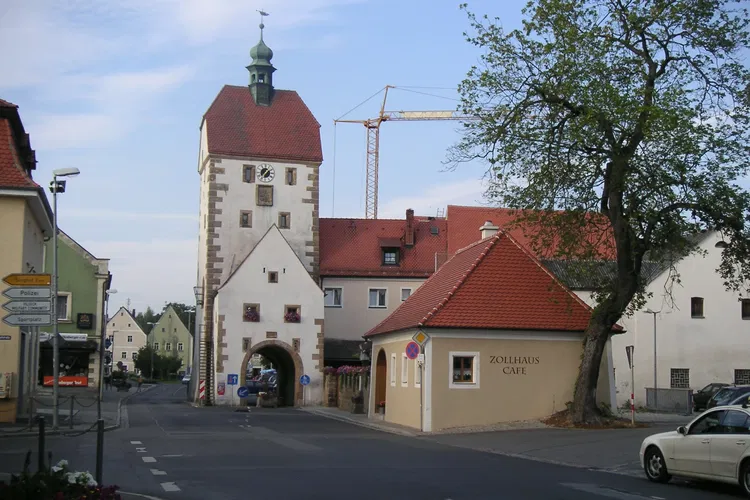
Erstes Deutsches Türmermuseum
VilseckThe Türmermuseum Vilseck, located in the Vogelturm of the Upper Palatinate city of Vilseck in the Amberg-Sulzbach district of Bavaria, is the first of its kind in Germany. This unique museum is situated at Marktplatz 23, making it easily accessible for tourists visiting the city.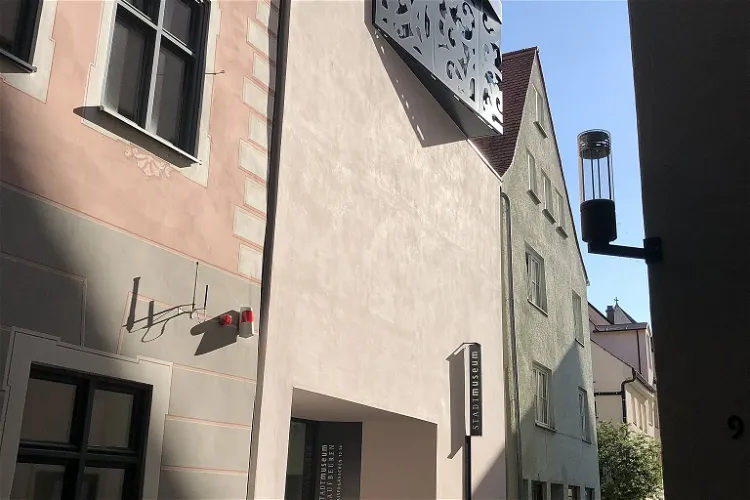
Stadtmuseum Kaufbeuren
KaufbeurenThe Stadtmuseum Kaufbeuren is a cultural history museum located in the city of Kaufbeuren. The museum focuses on the history of the city, presenting a permanent exhibition that illuminates the history of the Imperial City of Kaufbeuren with all its interconnections into economic and social history.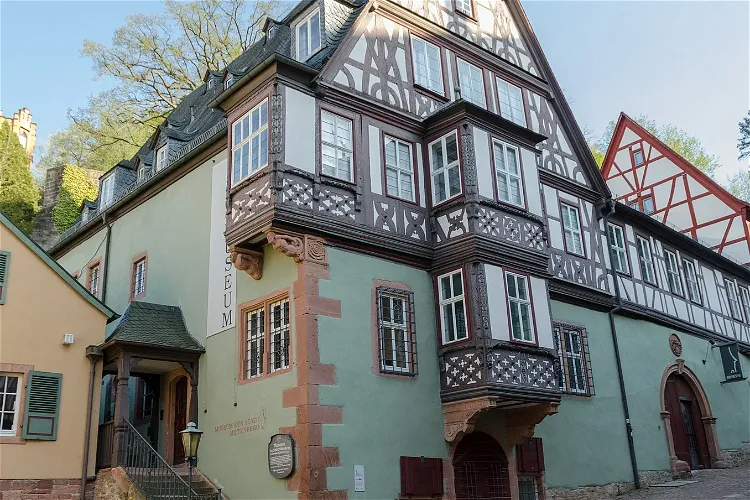
Miltenberg City Museum
MiltenbergThe Museum Stadt Miltenberg is housed in the 'Haus Miltenberg', a building characterized by its richly decorated Renaissance bay windows. This building is located at the Schnatterloch in Miltenberg, adding to the historical charm of the museum.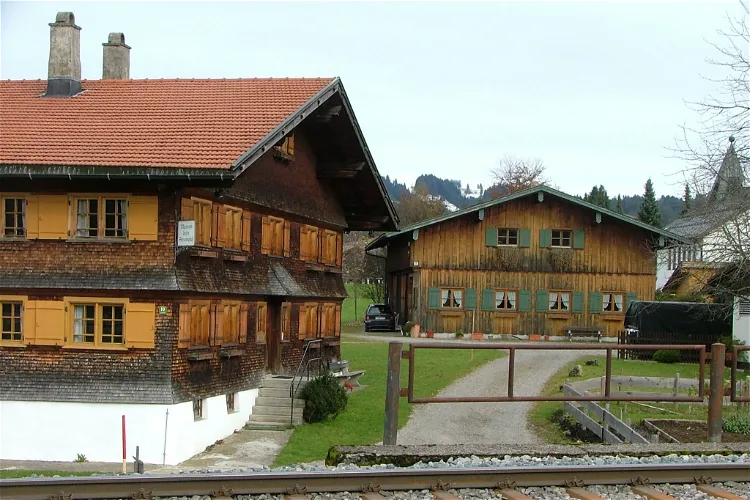
Heimatmuseum Beim Strumpfar
OberstaufenThe Heimatmuseum beim Strumpfar in Oberstaufen is housed in the Strumpfarhaus, a restored 18th-century Allgäu farmhouse. This historical building, built in 1788, has been preserved in its original state, offering visitors a glimpse into the past.
Tückelhausen Charterhouse
OchsenfurtTückelhausen Charterhouse, located in Ochsenfurt, Bavaria, Germany, is a former Carthusian monastery. This historical site offers a glimpse into the monastic life of the Carthusians, a religious order that has played a significant role in the region's history.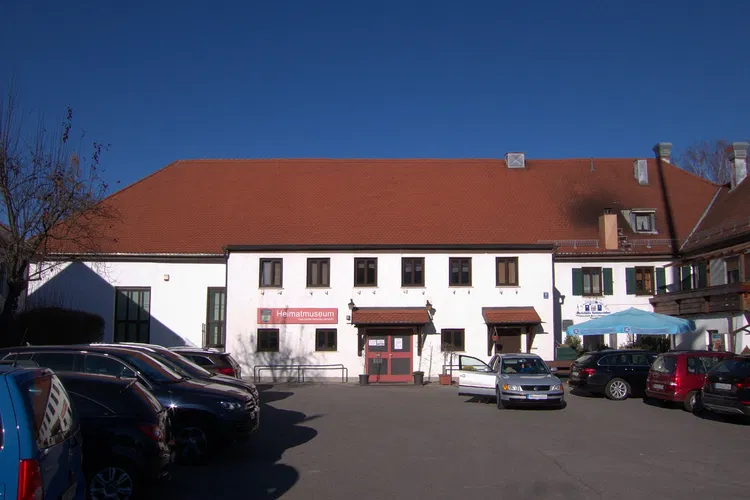
Heimatmuseum Unterhaching
UnterhachingThe Heimatmuseum Unterhaching is a museum located in the Upper Bavarian municipality of Unterhaching. It is dedicated to showcasing the evidence of human existence in the Unterhaching municipality area, a history that spans over 4500 years. This makes it a significant destination for those interested in history and archaeology.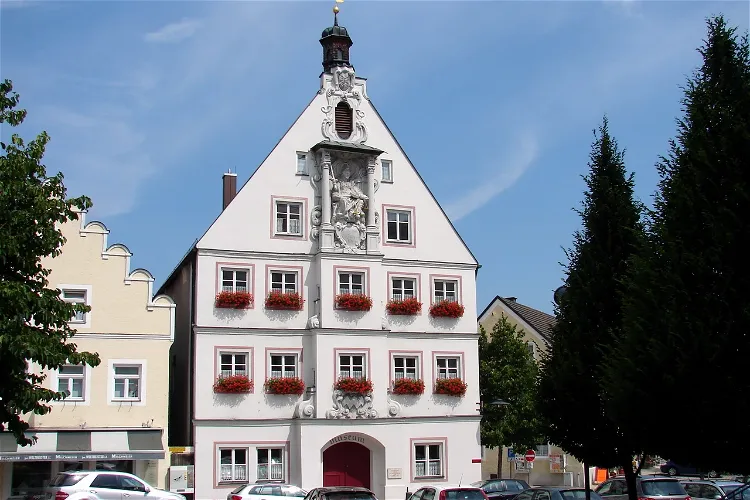
Hallertauer Hopfen- und Heimatmuseum
GeisenfeldThe Hallertauer Hopfen- und Heimatmuseum is a local museum located in Geisenfeld, a town in the Hallertau region of Bavaria. This museum provides a comprehensive overview of the history and culture of the region, making it an interesting destination for those interested in learning more about Bavarian history and culture.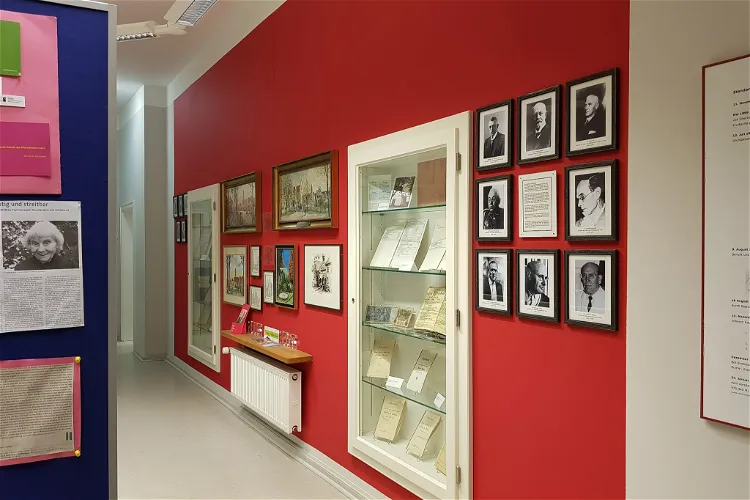
Psychiatriemuseum
HaarThe Psychiatriemuseum Haar is a unique institution that provides a comprehensive look into the history of the hospital and psychiatry in Haar, a town located near Munich. This museum offers a deep dive into the evolution of psychiatric care and treatment, making it an interesting destination for those interested in medical history.
Heimatmuseum Vilsbiburg
VilsbiburgThe Heimatmuseum Vilsbiburg is a folk museum that is situated in the former Holy Spirit Hospital, a building that dates back to the 15th century. The museum also extends to an adjacent neighboring house. The museum was established with the support of the city of Vilsbiburg, reflecting the city's commitment to preserving and showcasing its rich cultural heritage.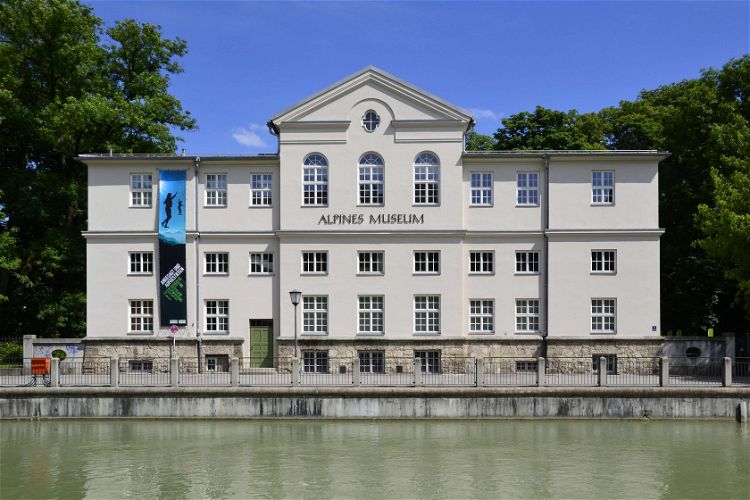
Alpines Museum
MunichThe Alpines Museum (Museum of the Alps and the Mountain) is a museum in Munich that is located on the southern part of the Praterinsel, one of the islands of the Isar. The building dates back to the 19th century and was donated to the Austrian-German mountaineering society. The museum illustrates th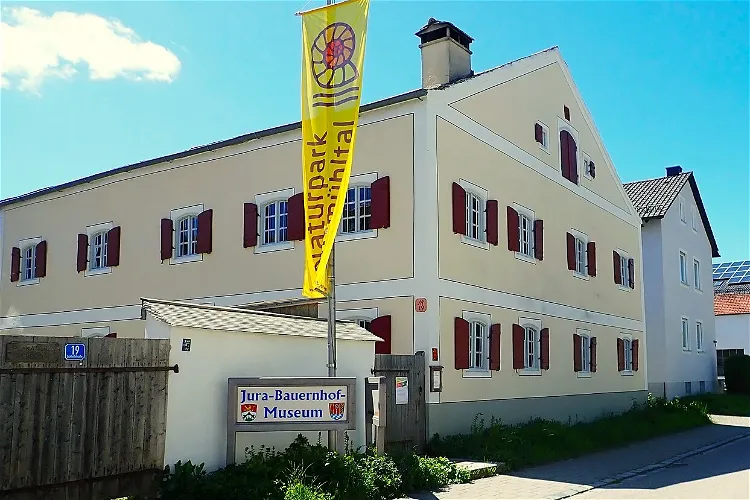
Jura-Bauernhof-Museum
HofstettenThe Jura-Bauernhof-Museum is a farmhouse museum situated in the scenic locale of Hofstetten, within the municipality of Hitzhofen. It is nestled in the Altmühltal Nature Park in Bavaria, offering visitors a unique blend of cultural history and natural beauty.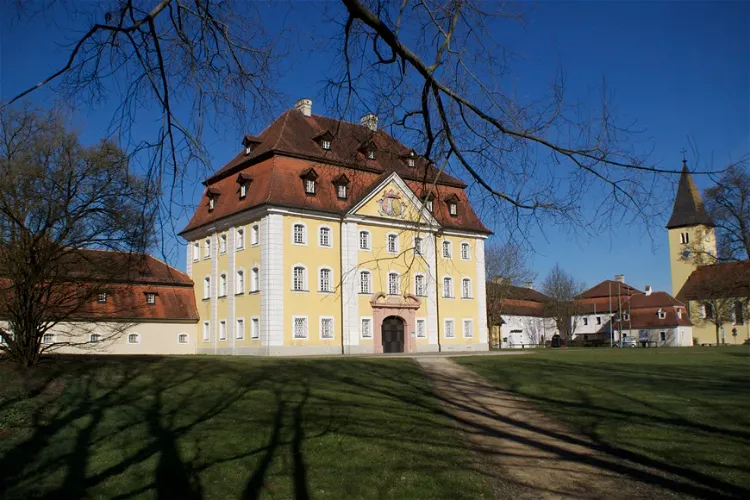
Bergbau- und Industriemuseum Ostbayern
TheuernThe Bergbau- und Industriemuseum Ostbayern in Theuern is a museum of regional significance that delves into the mining and industry of the entire eastern Bavarian region. It provides a comprehensive overview of the region's industrial history, making it an informative destination for those interested in understanding the area's past.
Borstei Museum
MunichThe Borstei Museum is a museum in Munich that holds a collection related to German architect, contractor and senator honorary Bernhard Borst and the Borstei, a listed housing estate in the Munich district Moosach, which was built between 1924 and 1929 by Bernhard Borst. The museum holds a collection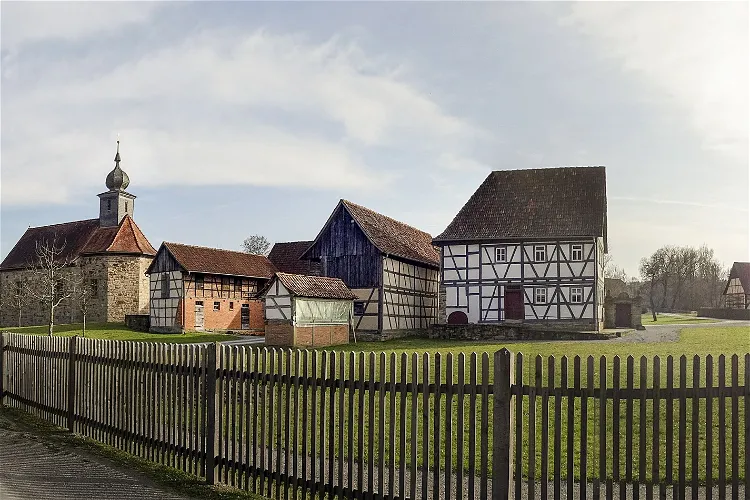
Fränkisches Freilandmuseum Fladungen
FladungenThe Fränkisches Freilandmuseum Fladungen is an open-air museum located in Fladungen, Unterfranken. It is dedicated to preserving and documenting the rural architecture, living conditions, and economy of the past. The museum provides a glimpse into the life of the rural population in earlier times, complete with historical and social contexts.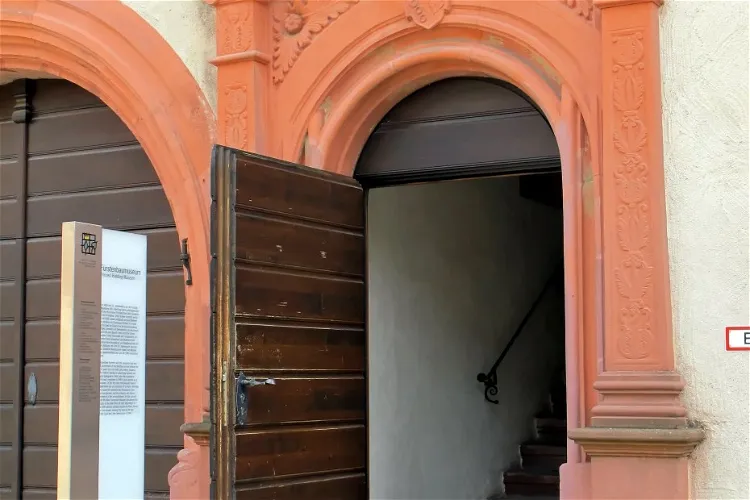
Fürstenbaumuseum
WürzburgThe Fürstenbaumuseum is a component of the Museum for Franconia. It is situated in the eastern wing, known as the Fürstenbau, of the Marienberg Fortress which is located above the city of Würzburg. This location provides a unique setting for the museum and offers visitors a chance to explore the fortress as well.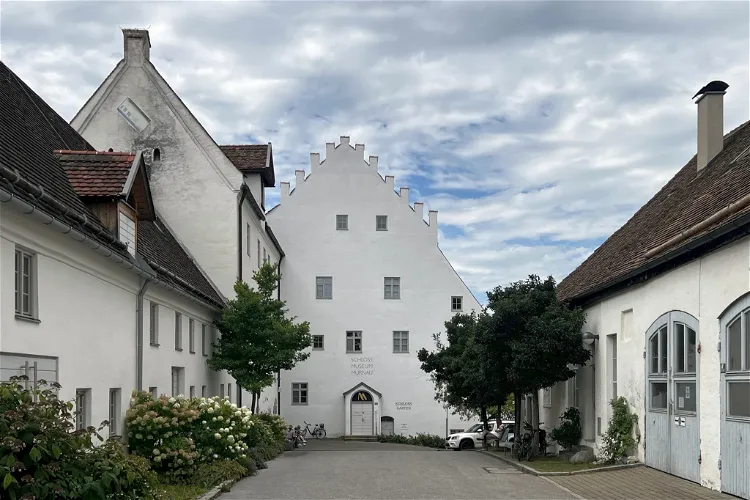
Schlossmuseum Murnau
Murnau am StaffelseeThe Schlossmuseum Murnau is a museum situated in the Bavarian town of Murnau am Staffelsee. It is housed in the Murnau Castle, a structure with a rich history dating back to the Middle Ages. The museum is part of the MuSeenLandschaft Expressionismus, a network of museums dedicated to the Expressionist art movement.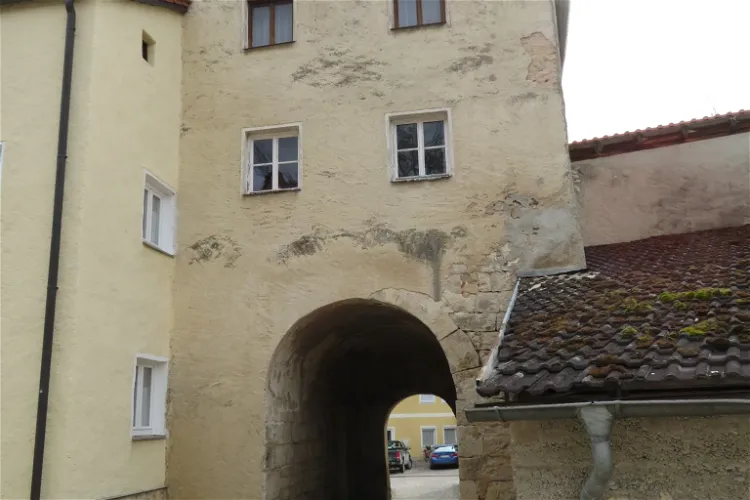
Altmühlzentrum
DollnsteinThe Altmühlzentrum is a museum situated within parts of the Dollnstein Castle and its adjoining open-air area. The museum is dedicated to the history of the location and the surrounding landscape, providing visitors with a comprehensive understanding of the region's past. The museum is accessible through the lower castle courtyard, which is enclosed by a ring wall, and entry is only possible through a medieval gate tower.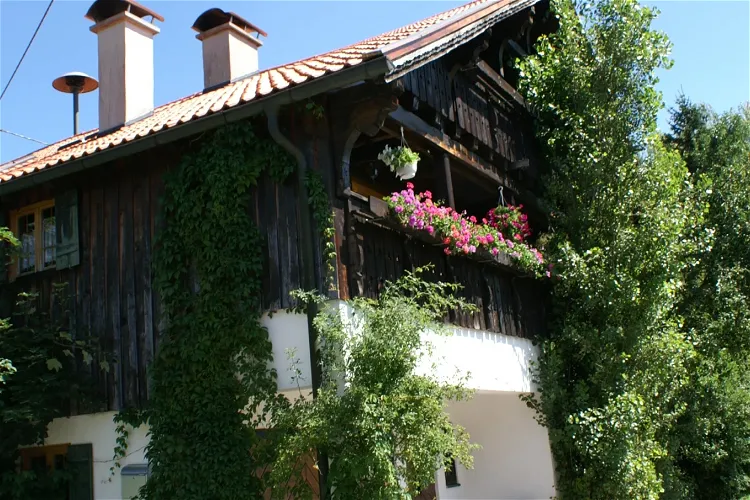
Puppenmuseum Rieden
Rieden am ForggenseeThe Puppenmuseum Rieden am Forggensee is a unique doll museum situated in the municipality of Rieden am Forggensee, in the Swabian district of Ostallgäu. This location offers a serene and picturesque environment that enhances the overall museum experience.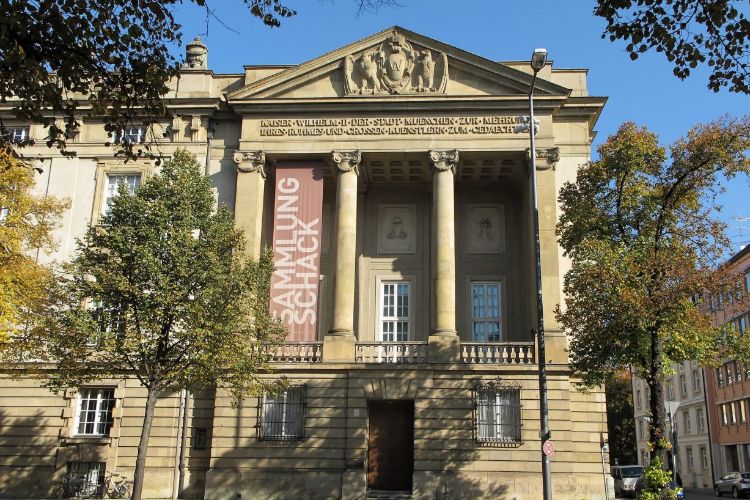
Sammlung Schack
MunichThe Schackgalerie in munich contains the Sammlung Schack, the art collection of Count Adolf Friedrich von Schack. Von Schack was a patron who at the time supported the Munich art world. The building that houses the museum was originally designed by Adolf von Hildebrand. The collection mainly contain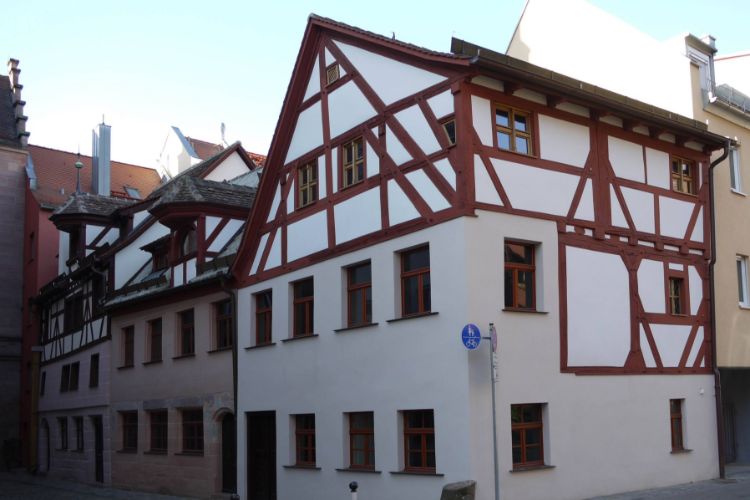
Museum 22 20 18 Kuhnertsgasse
NurembergThe Handwerkerhäuser Kühnertsgasse are three listed former craft houses in Nuremberg, at Kühnertsgasse 18, 20 and 22. The oldest house number 22 was originally built in 1377 as a two-storey half-timbered house. The other two houses were built until 1434. The inhabitants rebuilt the houses several ti
Princely Treasury Thurn und Taxis
RegensburgThe Princely Treasury Thurn und Taxis, which was inaugurated in 1998, is a branch of the Bavarian National Museum. This museum is located in the former Marstall of the St. Emmeram Castle in Regensburg. It was established to preserve and display the significant art objects of the Thurn und Taxis house, which were acquired by the Free State of Bavaria in 1993 as a way to settle inheritance taxes.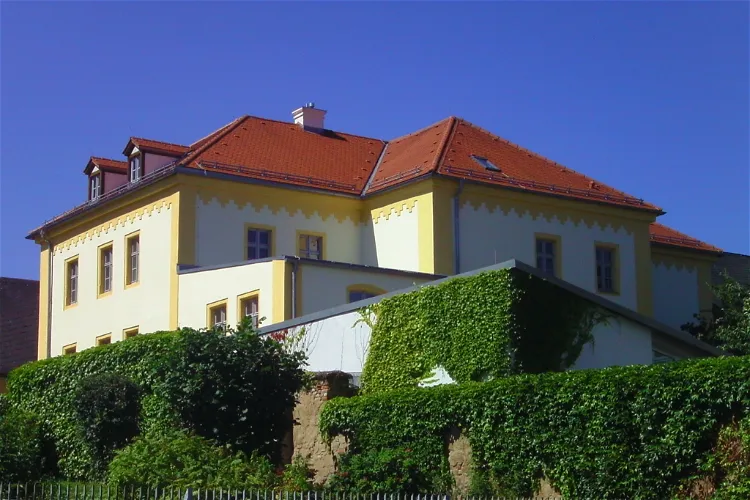
Museumsquartier Tirschenreuth
TirschenreuthThe Museumsquartier Tirschenreuth is a quaint museum nestled in the former monastery of the city of Tirschenreuth. The monastery was renovated to house the museum, providing a unique blend of history and culture for visitors to explore.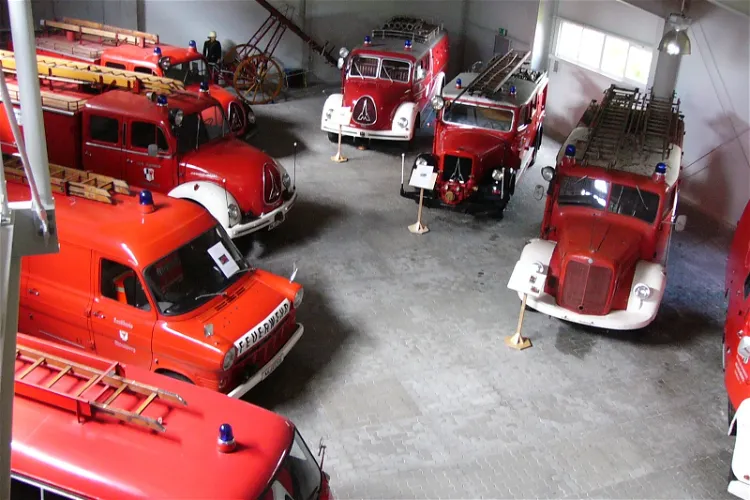
Oberfränkisches Feuerwehrmuseum
SchauensteinThe Oberfränkisches Feuerwehrmuseum is situated in the Schauenstein Castle in the small town of Schauenstein in Upper Franconia. This location provides a unique setting for the museum, combining historical architecture with the rich history of firefighting in the region.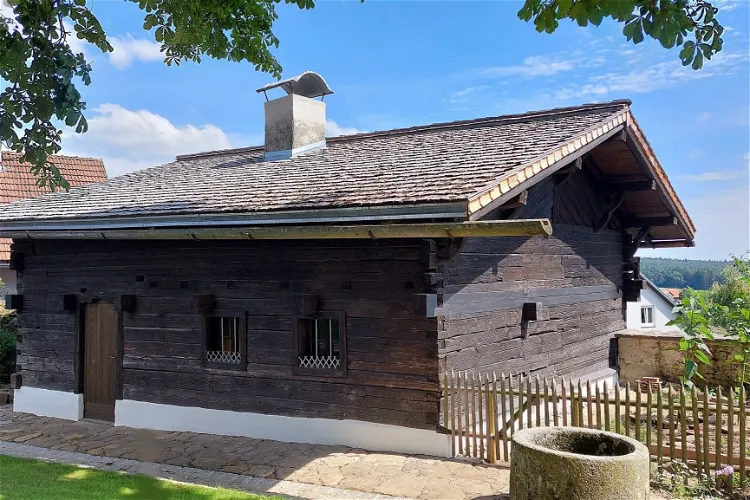
Schulmuseum Fronau
RodingThe Schulmuseum Fronau is a significant historical site, housed in an 18th-century Waldlerhaus, a traditional block construction typical of the Bavarian Forest. This building served as a schoolhouse in Fronau, a district of the city of Roding, until 1851. This offers visitors a unique opportunity to explore a piece of Bavarian history and architecture.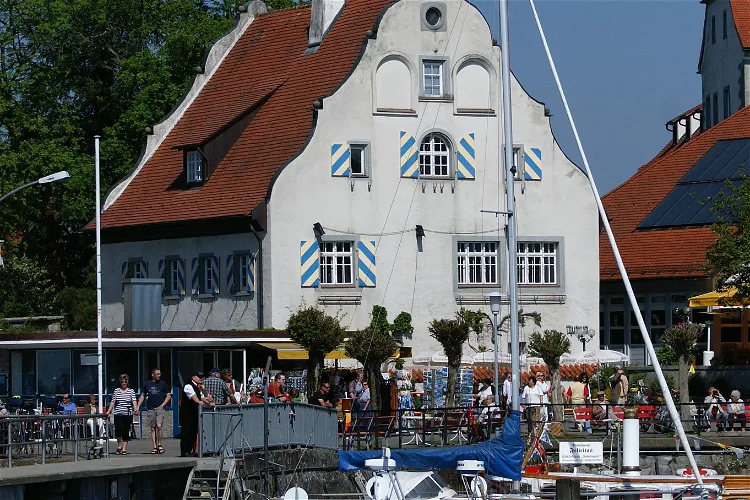
MiM Museum im Malhaus
Wasserburg (Bodensee)The Museum im Malhaus is a local and writer's museum situated on the shore of the Wasserburg peninsula, in the municipality of Wasserburg (Bodensee). It is conveniently located near the harbor and landing stage of the Bodensee shipping companies, making it easily accessible for tourists traveling by boat.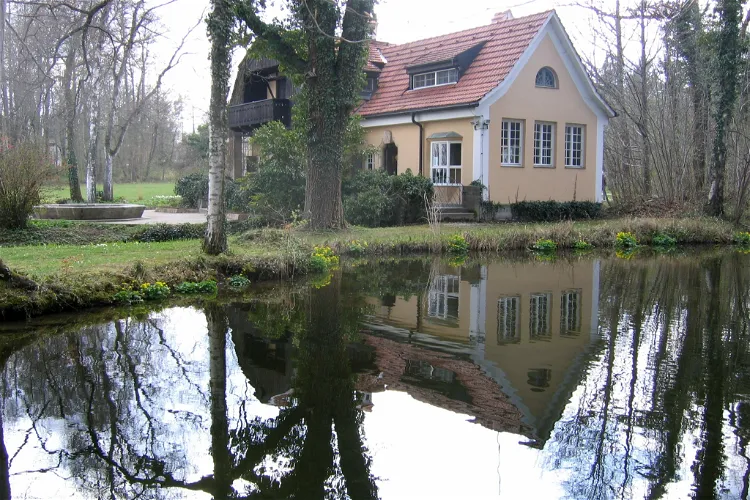
Künstlerhaus Gasteiger
Utting am AmmerseeKünstlerhaus Gasteiger is an artist's residence located in Holzhausen in the Upper Bavarian district of Landsberg am Lech. It is situated on the western shore of the Ammersee and is currently owned by the Bavarian Palace Department. The house is surrounded by a landscape park and is open to the public.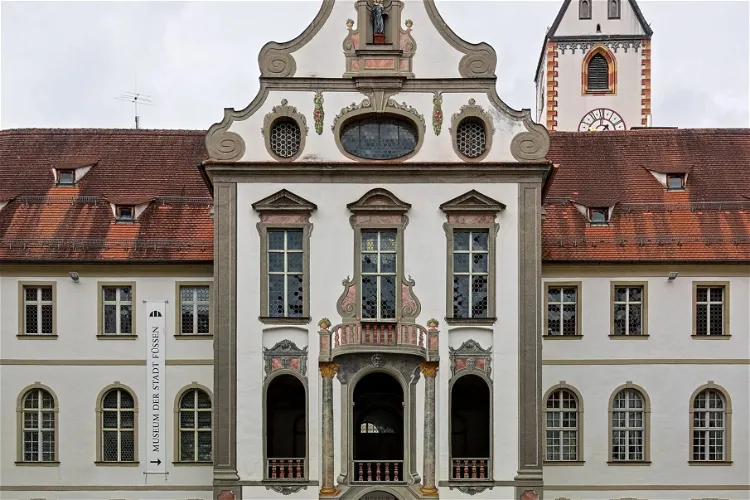
Füssen Heritage Museum
FüssenThe Füssen City Museum, located in a part of the former St. Mang Monastery, offers a rich insight into the city's history, the history of the monastery, and the tradition of lute and violin making in Füssen. Visitors can explore various exhibitions that shed light on these aspects, providing a comprehensive understanding of the city's cultural and historical background.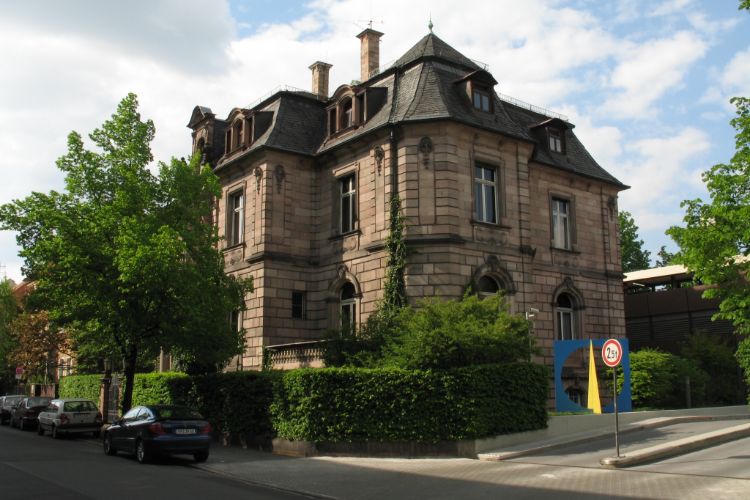
Kunstvilla Nürnberg
NurembergThe Kunstvilla Nürnberg is a municipal museum in Nuremberg that focuses on regional art. The museum is located in a listed neo-baroque merchant villa in the Marienvorstadt and is part of the KunstKulturQuartier. The total exhibition area is approximately 600 square meters. The permanent exhibition f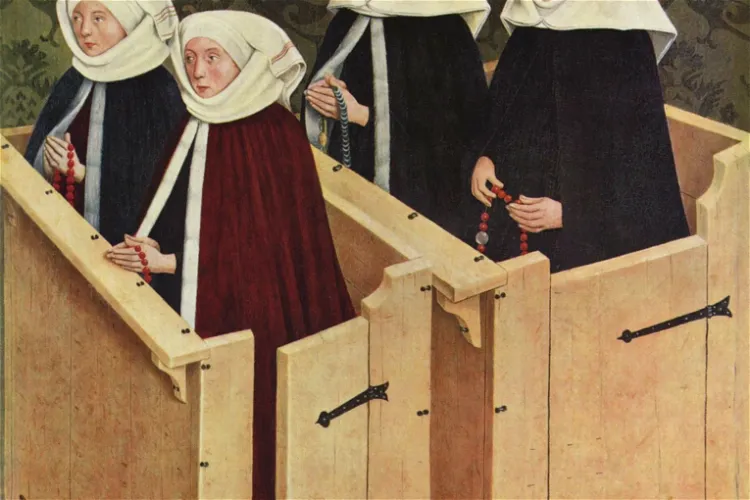
Stadtmuseum Nördlingen
NördlingenThe Stadtmuseum Nördlingen is a museum that provides a comprehensive insight into the history of the former Free Imperial City of Nördlingen. It is an ideal place for tourists who are interested in learning about the city's past and its significance in history.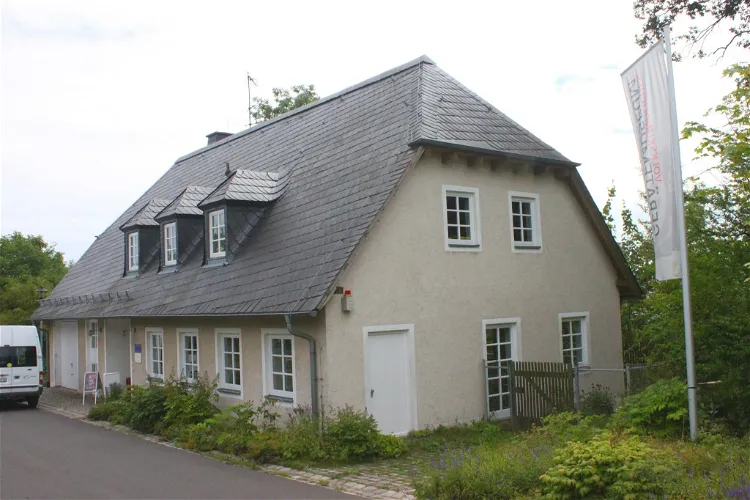
Volkskundliches Gerätemuseum Bergnersreuth
ArzbergThe Volkskundliche Gerätemuseum Bergnersreuth is an open-air museum situated in Bergnersreuth, a part of Arzberg in the Upper Franconian district of Wunsiedel in the Fichtelgebirge. This location offers a unique cultural experience, allowing visitors to immerse themselves in the local history and traditions of the region.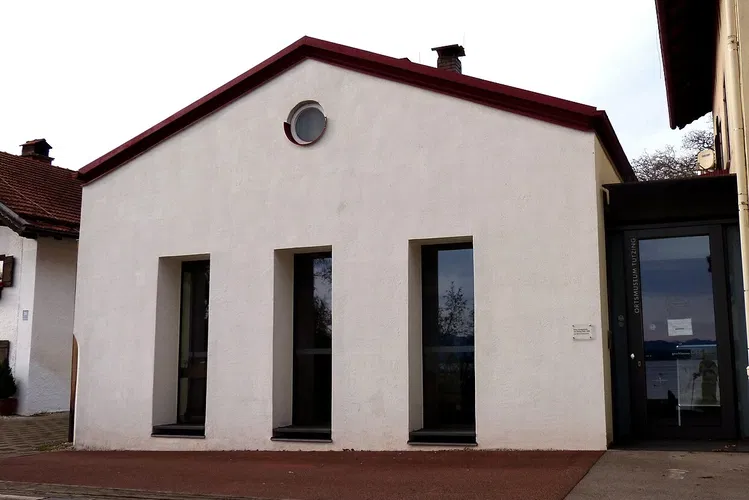
Ortsmuseum Tutzing
TutzingThe Ortsmuseum Tutzing is a museum dedicated to the local history of the community of Tutzing on Lake Starnberg. It is situated in the former schoolhouse of the community at Thomaplatz. This location adds a unique historical charm to the museum, making it a fascinating place for tourists interested in local history and architecture.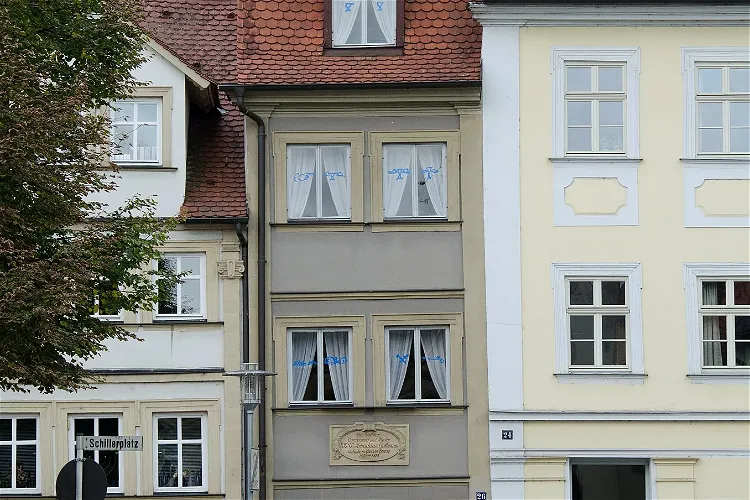
E.T.A. Hoffmann-Haus
BambergThe E.T.A. Hoffmann-Haus in Bamberg is a memorial site dedicated to the life and work of the German writer, composer, and artist E. T. A. Hoffmann. Hoffmann spent nearly five years of his life in Bamberg, from September 1, 1808, to April 21, 1813. The museum was established by a group of Hoffmann enthusiasts and has been open to the public since April 6, 1930.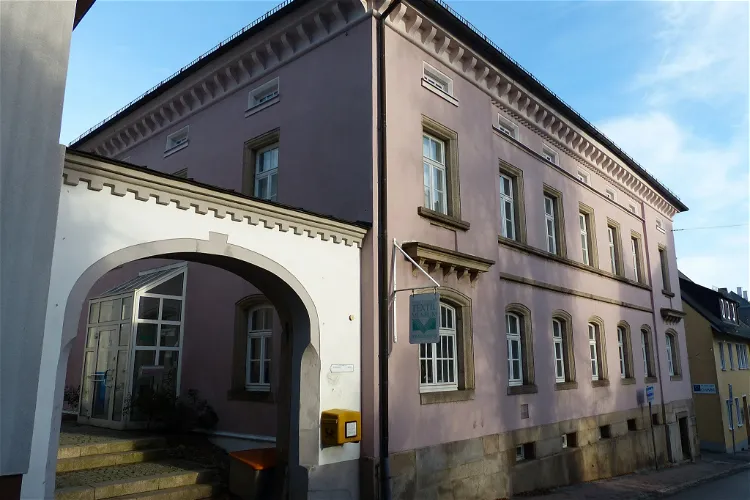
Oberfränkisches Textilmuseum Helmbrechts
HelmbrechtsThe Oberfränkisches Textilmuseum provides a comprehensive overview of the region's textile manufacturing history, which spans centuries. From the hand weaving of linen, wool, and cotton in pre-industrial times to the modern textile industry, the museum showcases the evolution of textile production techniques.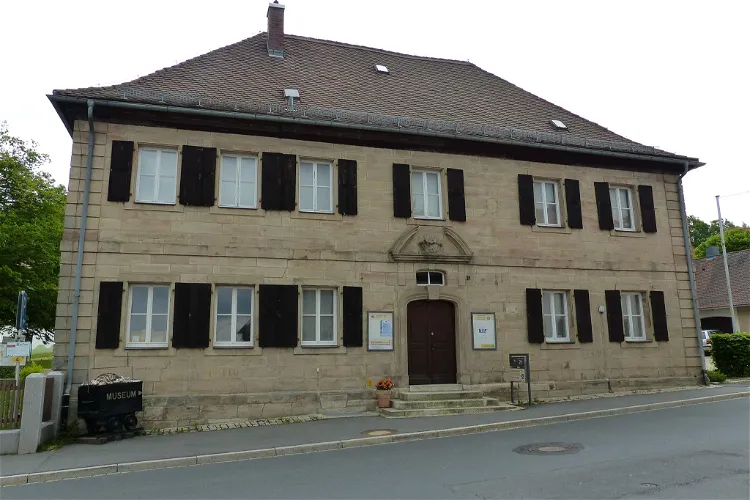
Goldbergbau Museum Goldkronach
GoldkronachThe Goldbergbau Museum Goldkronach is a specialized mining museum that primarily focuses on the history and techniques of gold extraction in the immediate vicinity of the Upper Franconian city of Goldkronach. The museum is housed in a former forestry house, which was built in 1740 by Colonel August von Wallenroth and was once the residence of Alexander von Humboldt between 1792 and 1795. The building is a protected monument.- 164
Farmhouse Museum of the district Erding
ErdingThe Farmhouse Museum of the district Erding is dedicated to showcasing the historical rural economy and lifestyle of the district Erding in Upper Bavaria. It provides a unique insight into the past, allowing visitors to understand the agricultural practices and living conditions of the 19th and early 20th centuries. 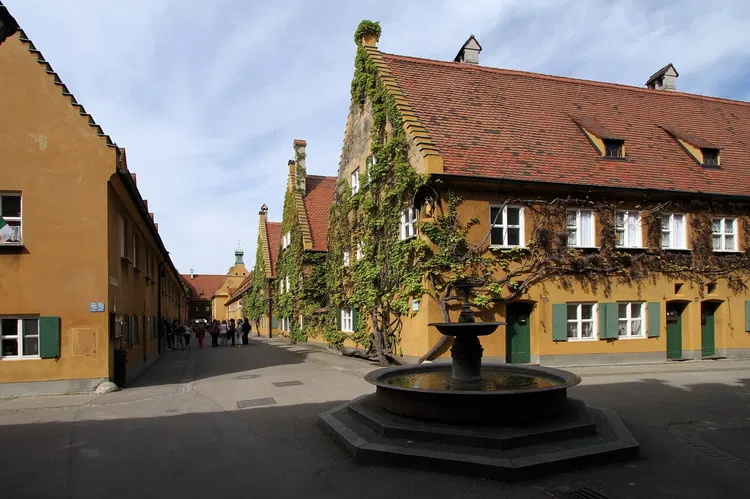
Fuggerei
AugsburgThe Fuggerei, located in Augsburg, Bavaria, holds the distinction of being the world's oldest public housing complex that is still in use today. It was established in 1516 by Jakob Fugger the Younger, also known as 'Jakob Fugger the Rich'. This historical significance makes it a unique destination for tourists interested in history and architecture.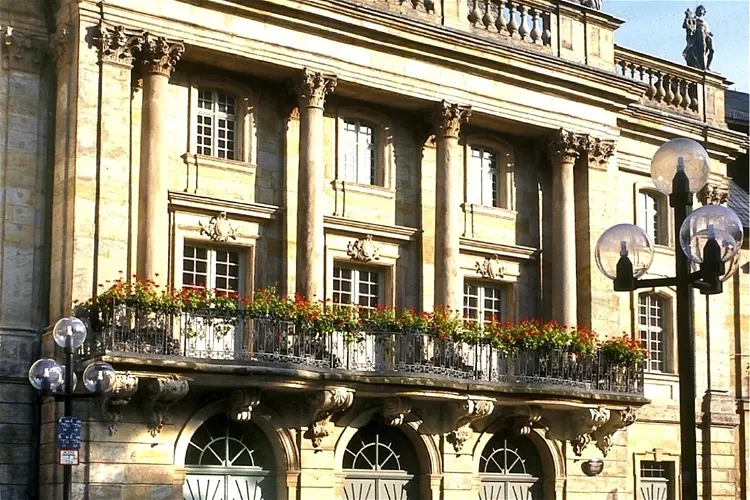
Margravial Opera House: World Heritage & Museum
BayreuthThe Margravial Opera House, located in Bayreuth, Germany, is a significant example of Baroque architecture. Constructed between 1745 and 1750, this opera house stands as a testament to the architectural prowess of the period. Its historical significance and architectural beauty make it a noteworthy site for tourists interested in history and architecture.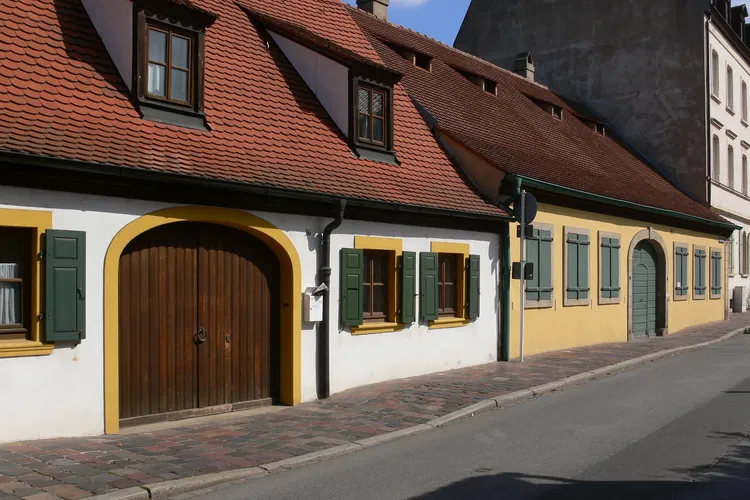
Gärtner- und Häckermuseum
BambergThe Gärtner- und Häckermuseum, which was inaugurated in 1979, is a museum that focuses on the history and culture of the gardeners and winemakers of Bamberg. It provides a unique insight into the traditions and practices of these two important professions in the region.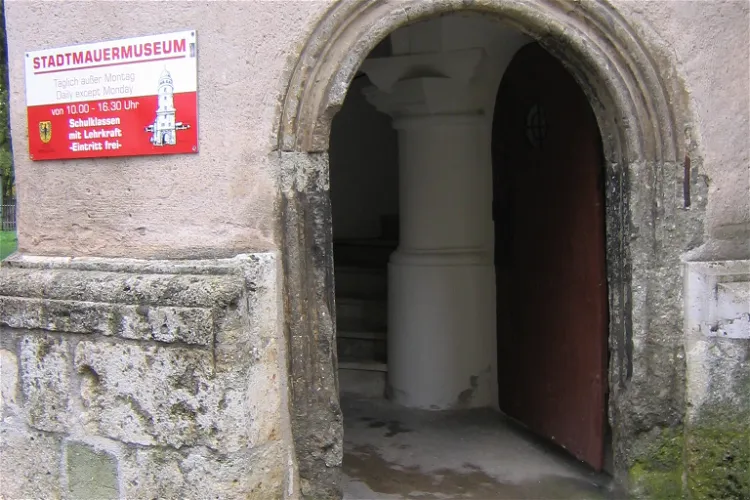
Stadtmauermuseum (Nördlingen)
NördlingenThe Stadtmauermuseum in Nördlingen is a museum dedicated to documenting the history of the Nördlingen city fortification. It provides a comprehensive overview of the city's defensive structures and their historical significance.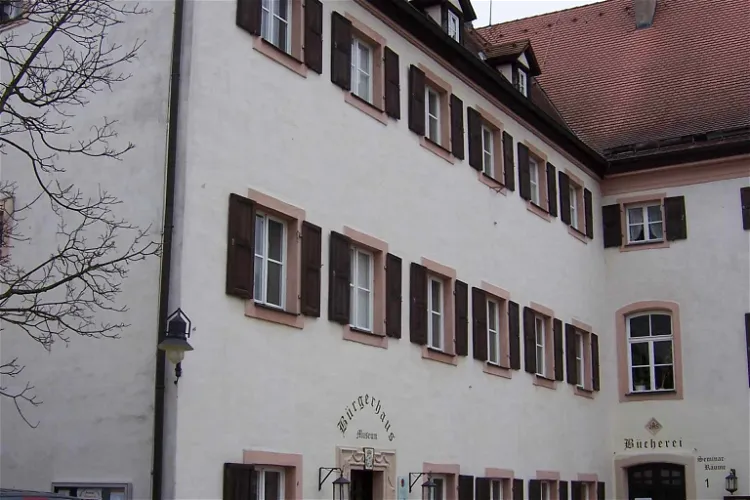
Heimat- und Brauereimuseum Pleinfeld
PleinfeldThe Heimat- und Brauereimuseum is housed in the historic Old Vogteischloss, a significant architectural landmark in Pleinfeld. The museum is also notable for containing the first brewery museum in Middle Franconia, making it a unique destination for those interested in the history of brewing.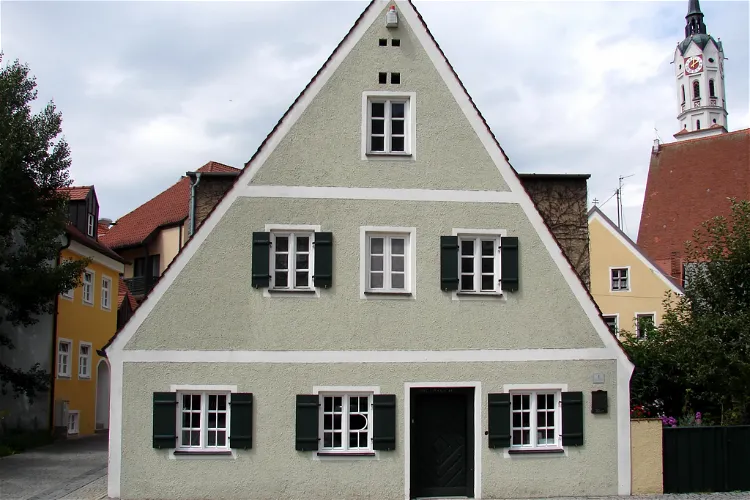
Zeiselmairhaus
SchrobenhausenThe Zeiselmairhaus, located in Schrobenhausen, a city in the Upper Bavarian district of Neuburg-Schrobenhausen, is a historical building that dates back to 1478. This gives the building a rich history and a unique architectural style that reflects the period in which it was built.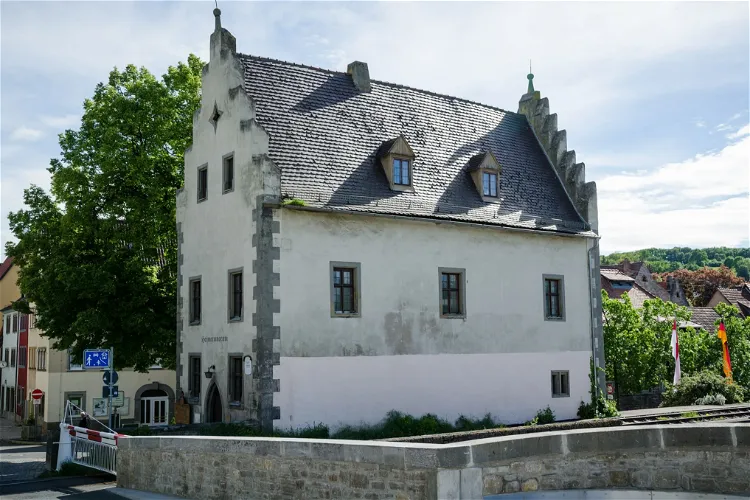
Heimatmuseum Ochsenfurt
OchsenfurtThe Heimatmuseum of the city of Ochsenfurt is situated in the Schlösschen, a charming location that adds to the overall experience of the visit. The museum presents various topics related to the city's history, providing visitors with a comprehensive understanding of Ochsenfurt's past.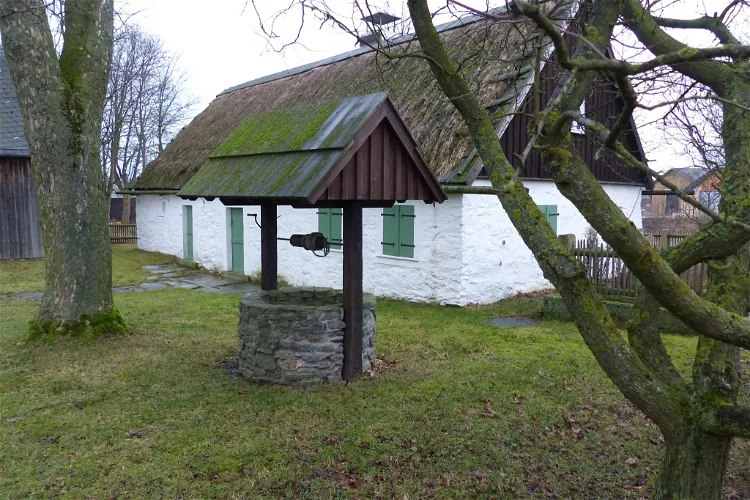
Weberhaus Neudorf
SchauensteinThe Weberhausmuseum Neudorf, located in Neudorf, Bavaria, is a significant representation of the historical weaving industry in the Franconian Forest. This former weaver's house provides a glimpse into the past, showcasing the life and work of the weavers who once resided here. It's a unique opportunity for tourists to learn about the region's history and the importance of the weaving industry.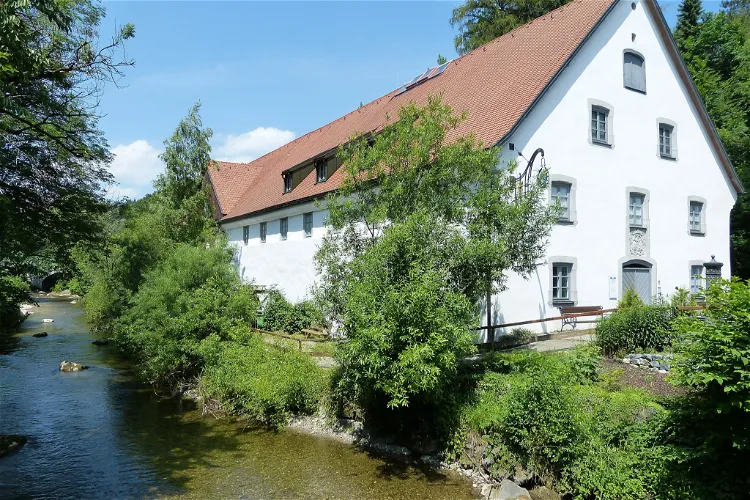
Museum Hofmühle
Immenstadt im AllgäuThe Museum Hofmühle in Immenstadt is a cultural history museum that was established in 1990. It focuses on the city's history and serves as a regional focal point for the Upper Allgäu. This museum provides a deep dive into the rich history and culture of the region, making it a worthwhile visit for those interested in understanding the past and present of Immenstadt and the Upper Allgäu.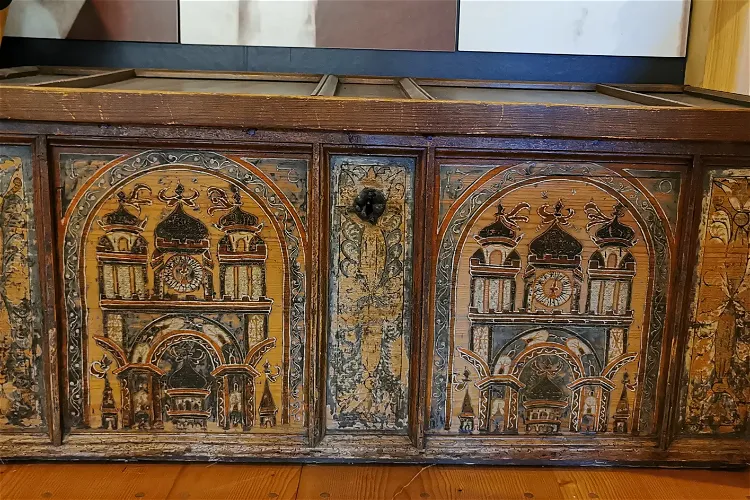
Prientalmuseum im Schloss Hohenaschau
Aschau im ChiemgauThe Priental Museum, situated in Hohenaschau Castle in Chiemgau, is a local history museum. It provides a unique opportunity for visitors to delve into the rich history of the region. The castle itself is a significant historical site, adding to the overall experience of the museum visit.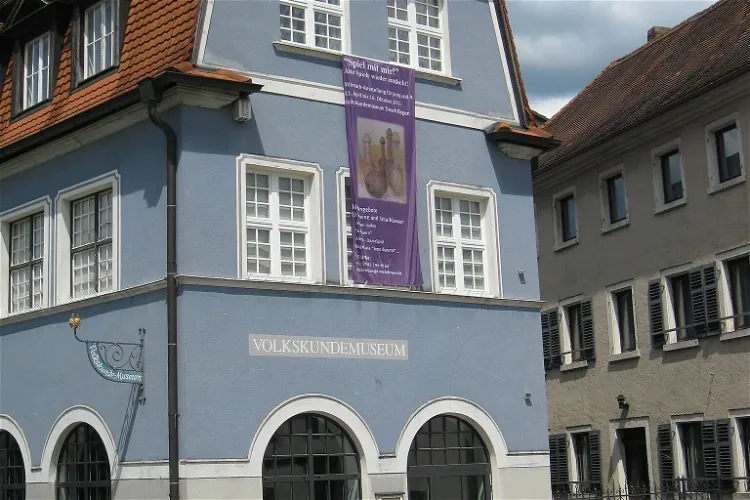
Museum Treuchtlingen
TreuchtlingenMuseum Treuchtlingen, situated in the Middle Franconian district of Weißenburg-Gunzenhausen, is recognized as one of the largest folk museums in Bavaria. The museum boasts a vast collection of more than 30,000 objects, offering a comprehensive insight into the region's cultural and historical heritage.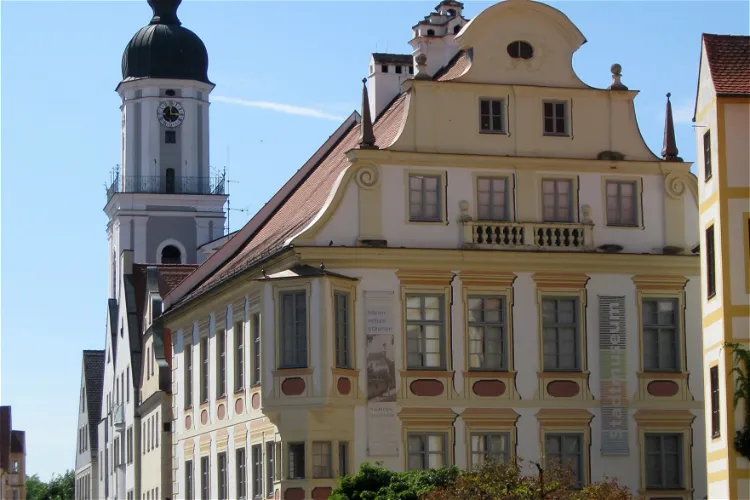
Stadtmuseum
Neuburg an der DonauSince 2005, the Weveldhaus has been home to the Neuburger Stadtmuseum, which is managed by the Historical Association of Neuburg. Located at Amalienstraße A 19, the museum offers a comprehensive insight into the city's history, making it a worthwhile destination for those interested in learning more about Neuburg an der Donau.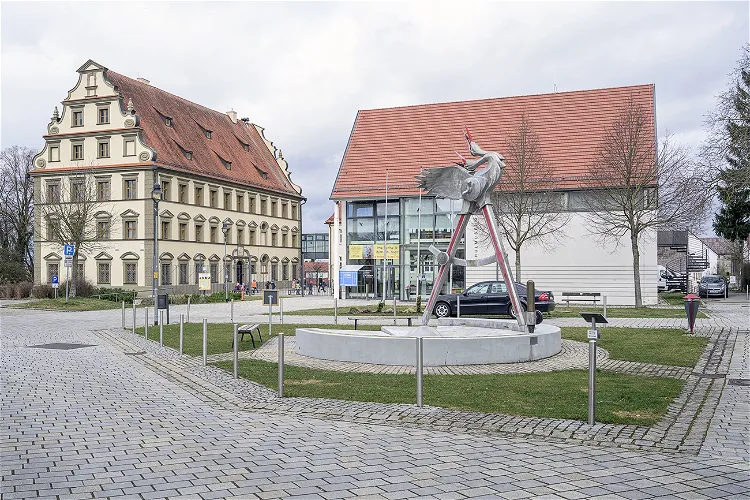
Bayerisches Schulmuseum Ichenhausen
IchenhausenThe Bayerisches Schulmuseum Ichenhausen is a branch of the Bayerisches Nationalmuseum and is situated in the Lower Castle in Ichenhausen. This location adds a historical charm to the museum, making it an interesting destination for tourists who appreciate history and architecture.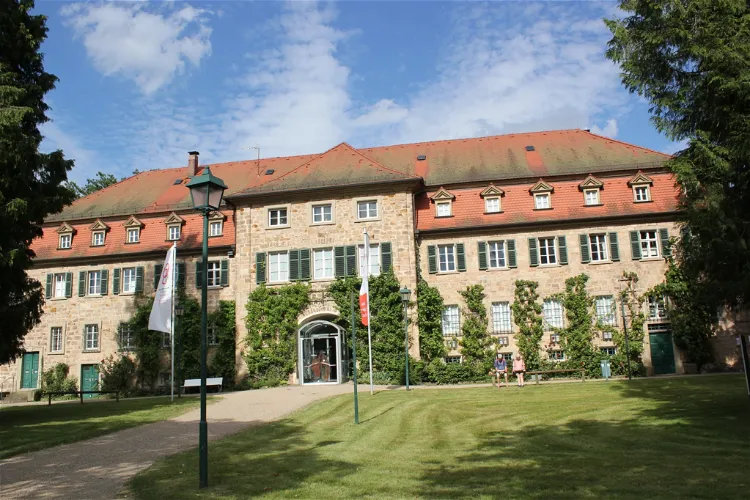
Museum Obere Saline
Bad KissingenThe Museum Obere Saline (MOS) is a cultural institution situated in the Hausen district of Bad Kissingen. The museum is housed in the Obere Saline building and is divided into several departments: the Bismarck Museum, Salt and Salt Production, Spa Kissingen, World Spa Kissingen, and Toy World. Each department offers a unique insight into different aspects of the region's history and culture.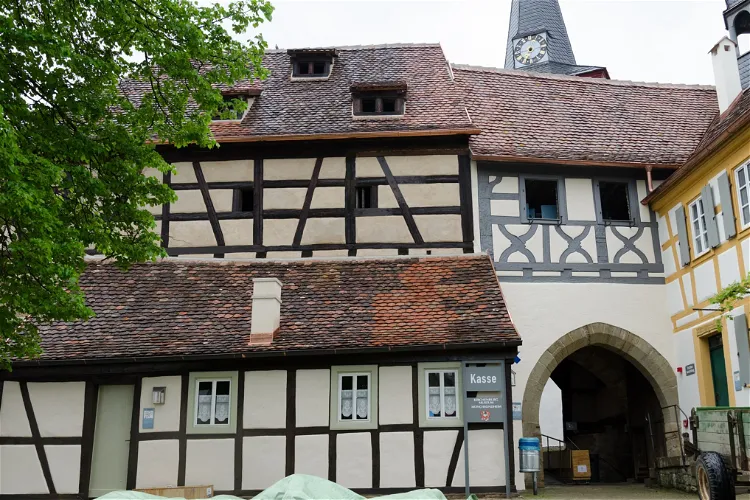
Freilandmuseum Kirchenburg Mönchsondheim
IphofenThe Kirchenburg Museum is an open-air museum situated in the charming town of Mönchsondheim, nestled in the southeastern part of the Kitzingen district in the Steigerwald foothills. This location offers a unique blend of cultural heritage and natural beauty, making it an ideal destination for those interested in history, architecture, and nature.
Gilardihaus
AllersbergThe Gilardihaus in Allersberg, a quaint market town located in the Middle Franconian district of Roth in Bavaria, is a historical building that dates back to the early 18th century. Constructed between 1723 and 1728, this former manor house was the work of the renowned architect Gabriel de Gabrieli. Its architectural significance and historical value make it a point of interest for tourists visiting the region.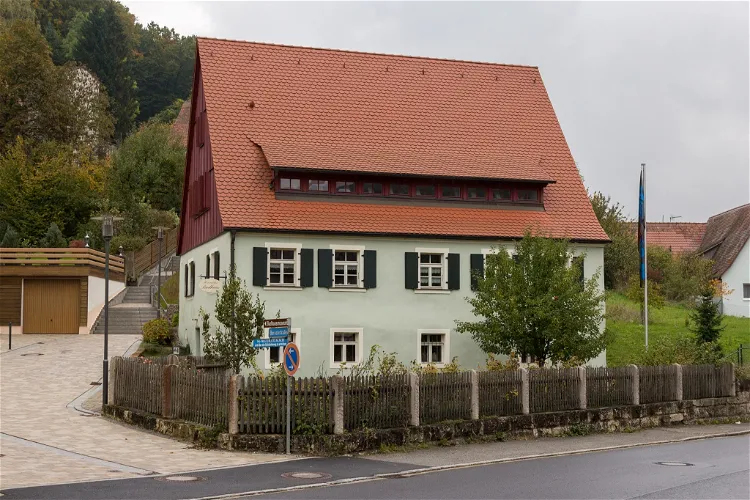
Badhaus Pommelsbrunn
PommelsbrunnThe Badhaus in Pommelsbrunn, located at Dorschstraße 2, is not just a historical building, but also a protected monument. This status ensures its preservation and offers tourists an authentic experience of the region's history.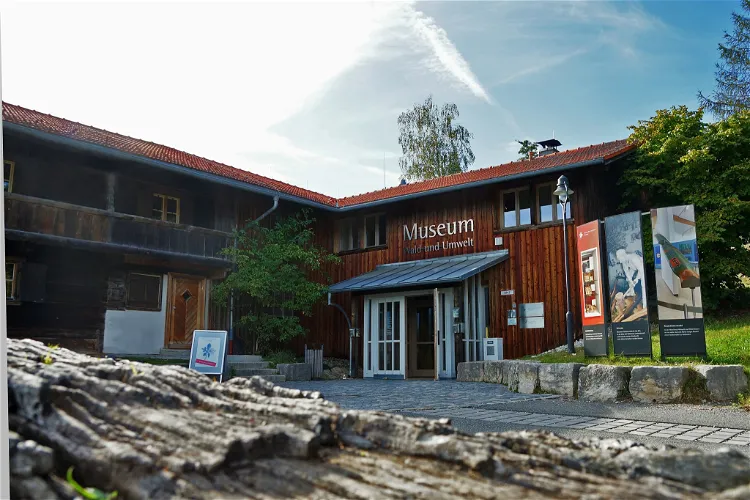
Museum Wald und Umwelt
EbersbergThe Museum Wald und Umwelt is a natural science educational institution located on the Ludwigshöhe, on the edge of the Ebersberg Forest. This location offers visitors a unique opportunity to learn about the natural environment and its history in a picturesque setting.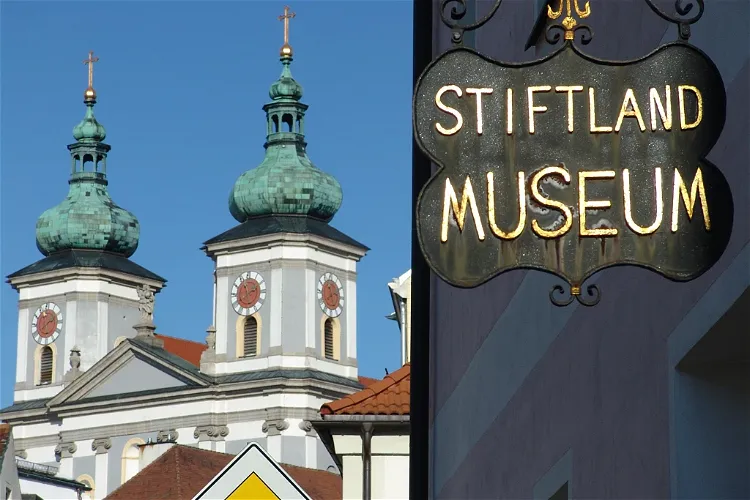
Stiftlandmuseum
WaldsassenThe Stiftlandmuseum Waldsassen, opened in 1975, is located in the old town hall of Waldsassen. The museum is dedicated to the history of the Stiftland region, providing visitors with a deep understanding of the area's past.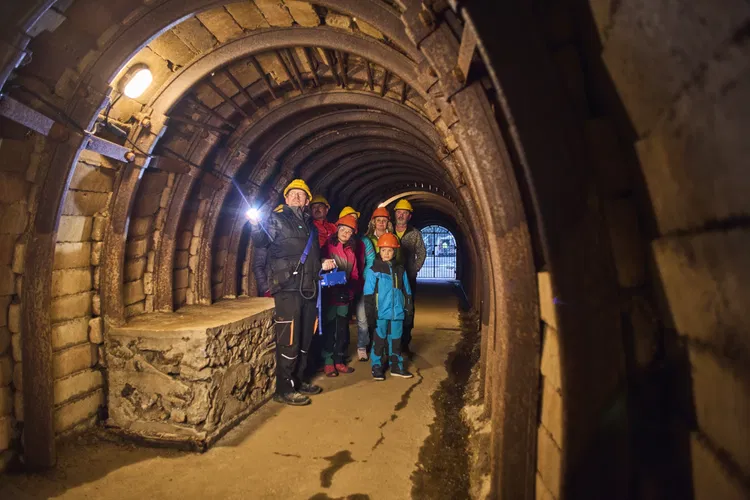
Besucherbergwerk Fürstenzeche
BuchetThe Fürstenzeche visitor mine is a historic silver and fluorspar mine and is considered to be the oldest in the Bavarian Forest. Follow us down into the depths of the Osser Mountains and experience pure mining. Surrounded by the adventurous magic of 500 years of silver mining, your visit to the "Für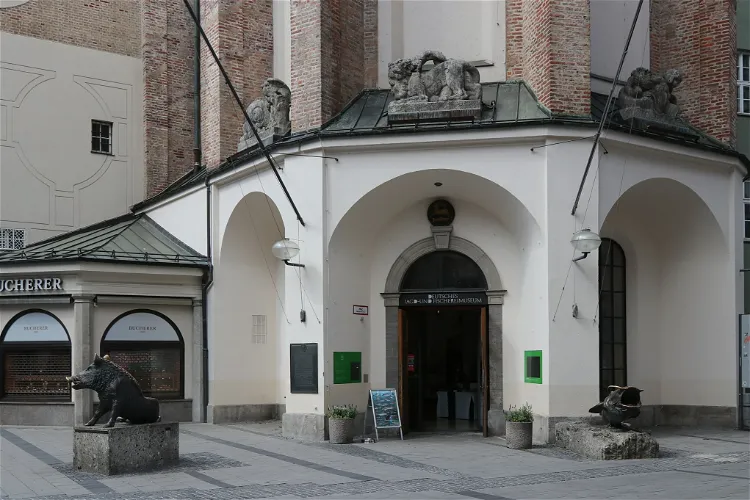
German Hunting and Fishing Museum
NeuhausThe German Hunting and Fishing Museum, located in Munich, is a significant institution dedicated to the history of hunting and fishing. It is recognized globally among hunting museums for its extensive collection and historical significance.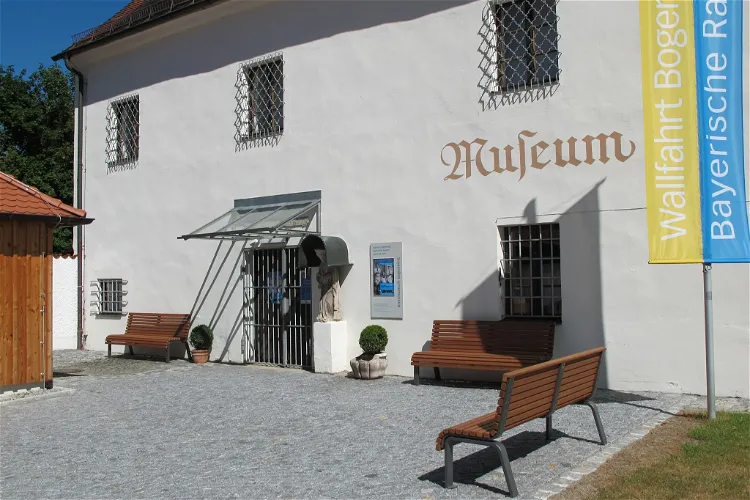
Kreismuseum Bogenberg-Heimatmuseum
BogenThe Kreismuseum Bogenberg is situated in a prominent location above the city of Bogen, on the summit of Bogenberg. This location offers a stunning view of the surrounding area and is directly opposite the Bogenberg pilgrimage church, adding to the historical and cultural significance of the site.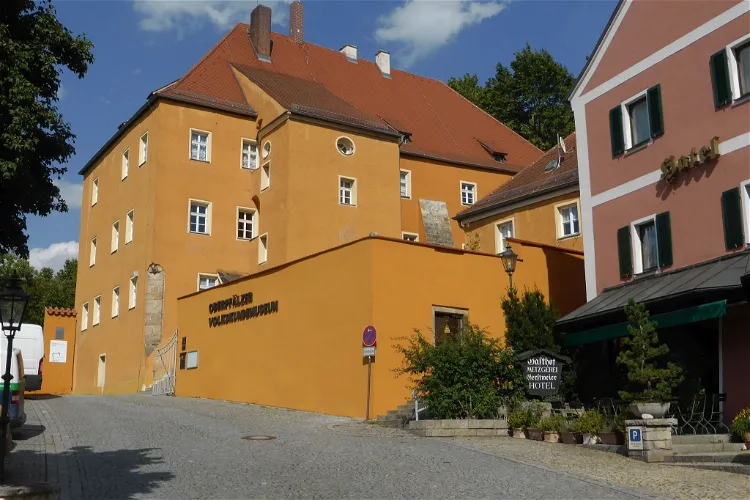
Oberpfälzer Volkskundemuseum
BurglengenfeldThe Oberpfälzer Volkskundemuseum is situated in the city of Burglengenfeld. It is housed in the monument-protected former Pfleghaus, also known as the "Große Kanzlei" of the castle of Burglengenfeld. This location adds a historical charm to the museum, making it an interesting destination for tourists who appreciate history and architecture.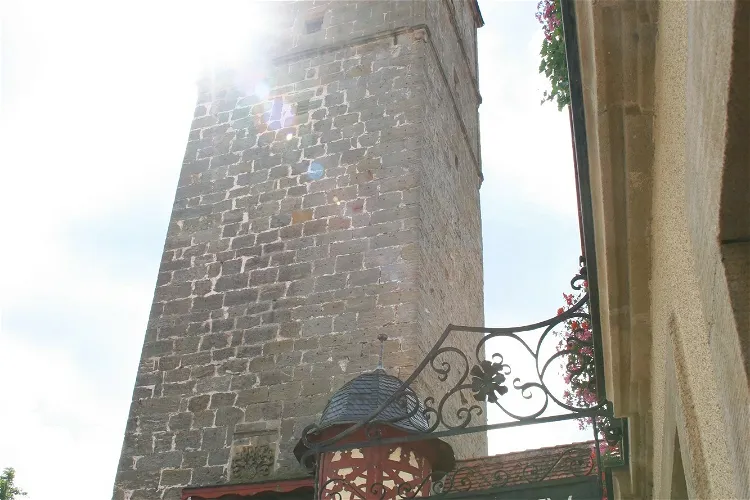
Heimatmuseum Ebern
EbernThe Heimatmuseum Ebern, situated at the Grauturm, is a local history museum in Ebern. It was established in 1965 by the Ebern Citizens' Association. The museum is housed in a former savings bank building provided by the city of Ebern, next to the 'Grauturm'.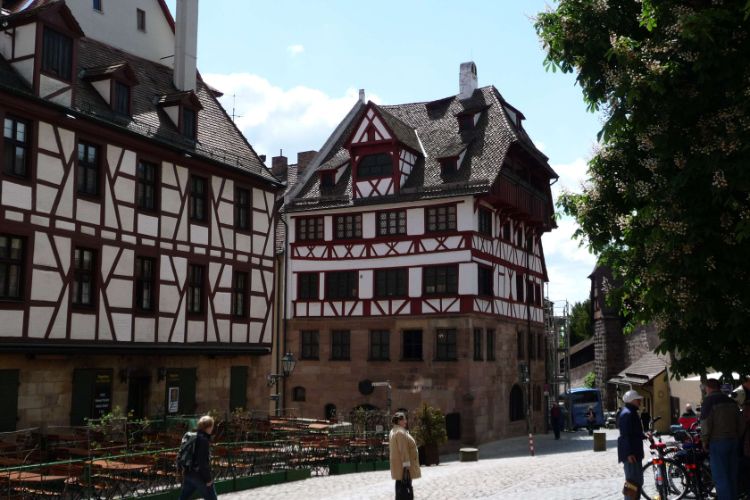
Albrecht Dürer's House
NurembergThe Albrecht Dürer's House (Albrecht-Dürer-Haus) is a Nuremberg Fachwerkhaus and the home of painter, printmaker, and theorist of the German Renaissance Albrecht Dürer from 1509 to his death in 1528. The house was built around 1420 and has five stories functioning as a museum dedicated to Dürer's li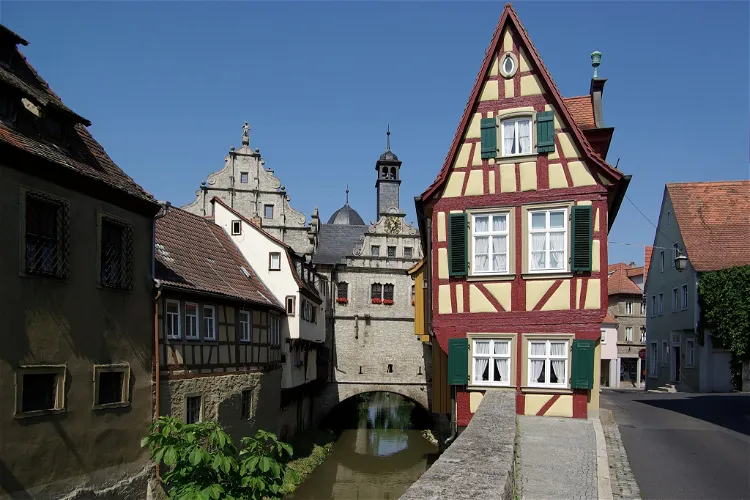
Museum Malerwinkelhaus
MarktbreitThe Museum Malerwinkelhaus Marktbreit is a city museum situated in the Malerwinkelhaus, a historic building in the old town of Marktbreit. This location adds to the charm and historical significance of the museum, making it an interesting destination for tourists interested in history and culture.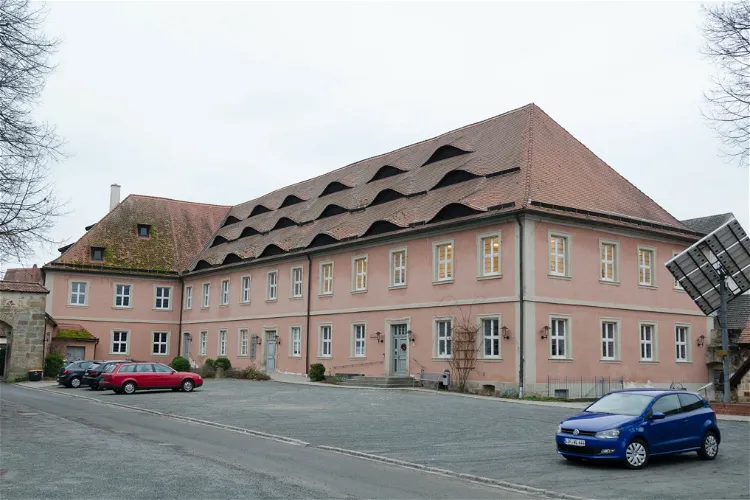
Nordjura Museum
WeismainThe NordJURA Museum is situated in the Franconian city of Weismain, within the Lichtenfels district. This location is steeped in history and culture, making it an interesting destination for tourists who are keen on exploring the rich heritage of the region.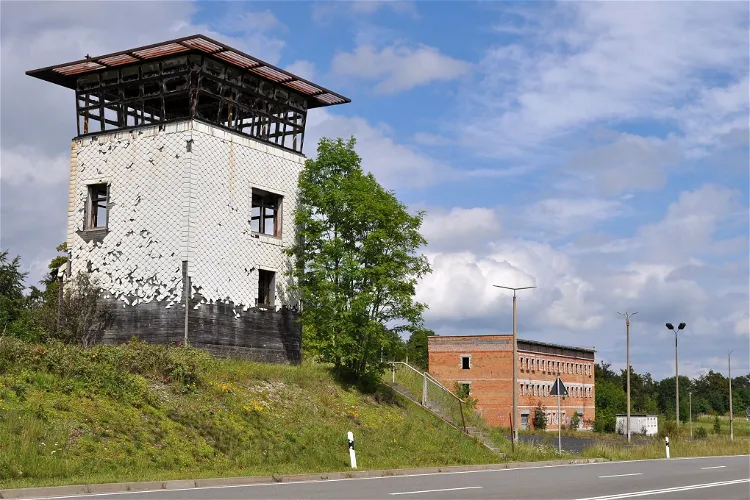
Grenzmuseum Eußenhausen
MellrichstadtThe Grenzmuseum Eußenhausen in Mellrichstadt is located at the site of the former border crossing Eußenhausen/Meiningen. This border crossing was operational from 1973 to 1990 and was situated on the then Federal Highway 19, now known as ST2445. The crossing was between the Federal Republic of Germany and the German Democratic Republic (GDR), specifically between Eußenhausen near Mellrichstadt in Bavaria and Henneberg near Meiningen in Thuringia.- 193
Walchensee Museum
Kochel am SeeThe Walchensee Museum, located in Urfeld am Walchensee, is dedicated to showcasing the art, culture, and history of the regions of Kochelsee, Walchensee, Jachenau, and Herzogstand. This museum provides a comprehensive understanding of these areas, making it an ideal destination for those interested in local history and culture. - 194
Henker Haus
NurembergThe Henker Haus is a museum in Nuremberg that used to be the official residence of the most famous hangman in the city, Franz Schmidt. Visitors can learn more about the local life and crime around 1600 through his diaries. and the exhibited objects. - 195
Staatsarchiv Würzburg
WürzburgThe Staatsarchiv Würzburg is the Bavarian state archive responsible for the Lower Franconia administrative district. This means that it holds significant historical documents and records pertaining to this region. For tourists interested in the history of Bavaria, particularly Lower Franconia, a visit to the Staatsarchiv Würzburg can provide a wealth of information. - 196
Cultural and Military Museum
GrafenwöhrThe cultural exhibition at the museum primarily focuses on the history of the city of Grafenwöhr. It traces the city's development through the establishment and expansion of the military training area. This provides a unique perspective on how military presence can influence the growth and evolution of a city, making it an intriguing exploration for history enthusiasts. - 197
Schulmuseum
NurembergThe Schulmuseum is a museum in Nuremberg that is full of interesting things about the history of school.